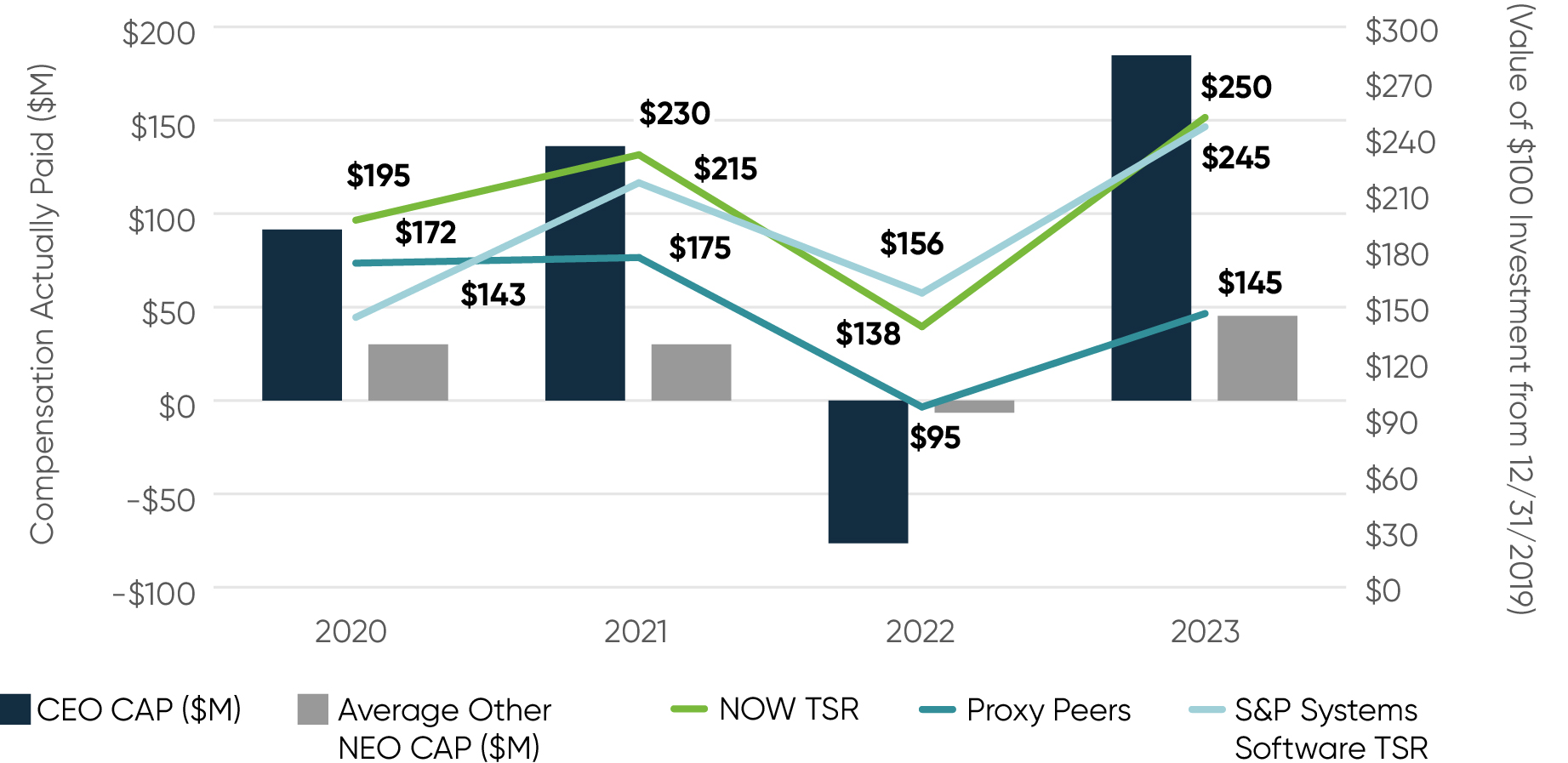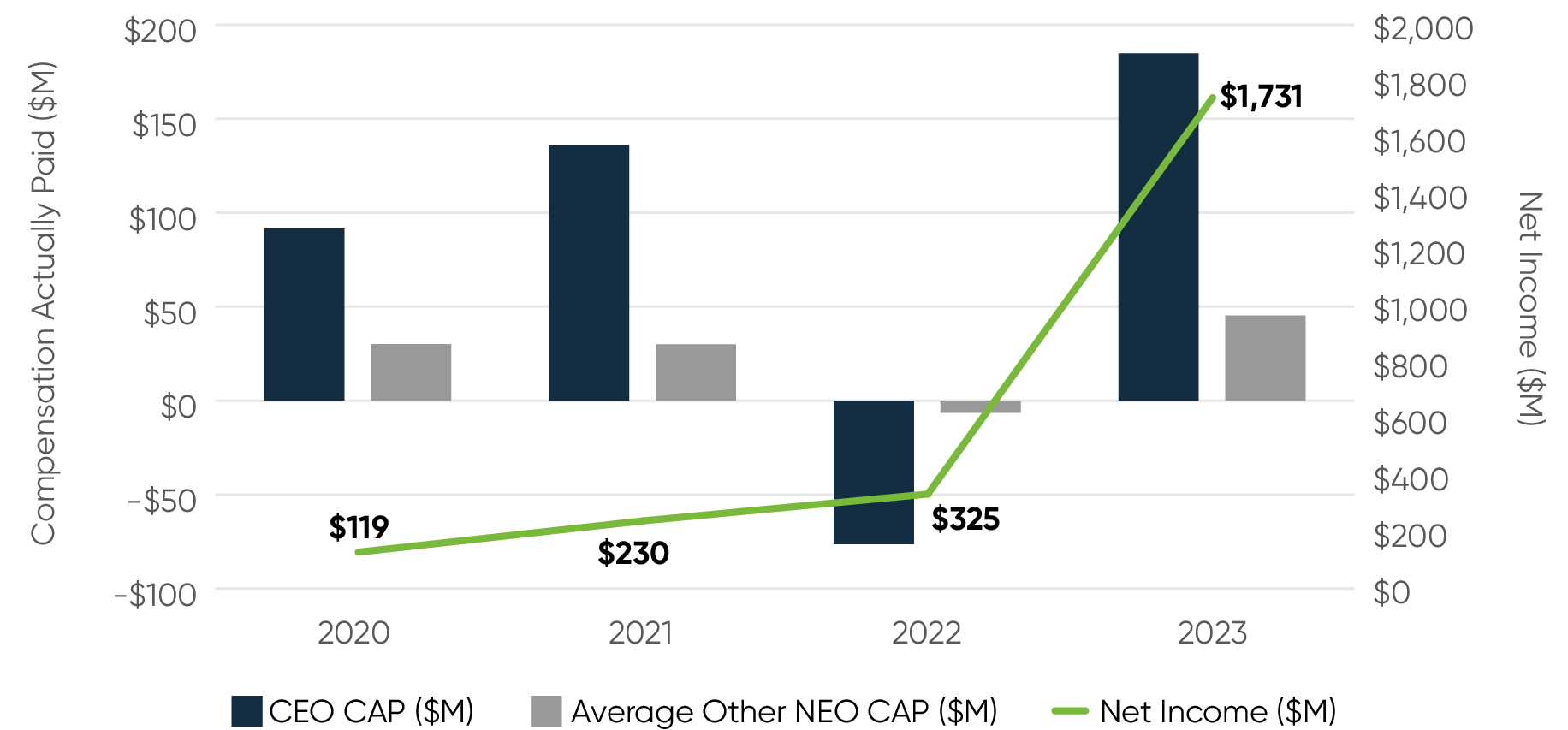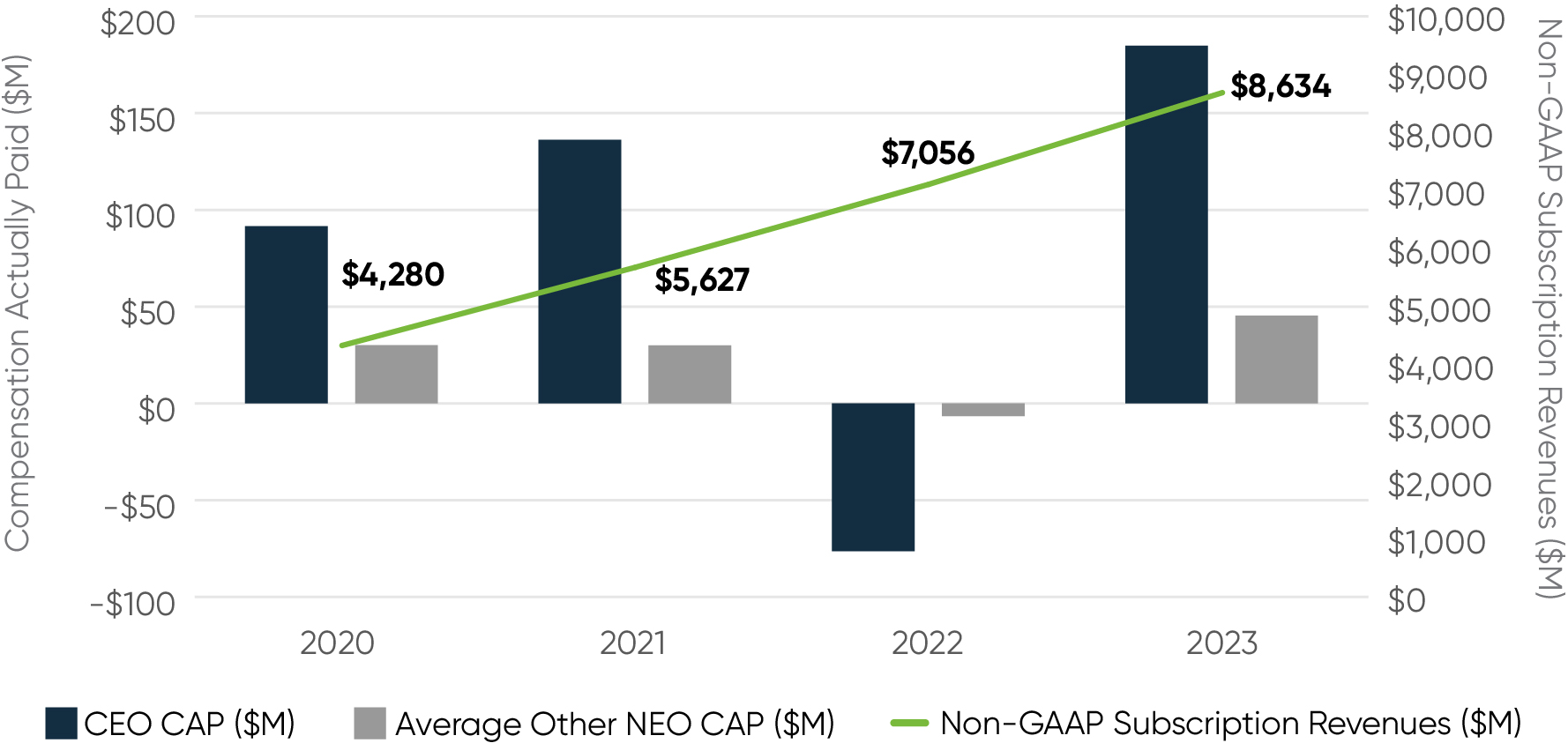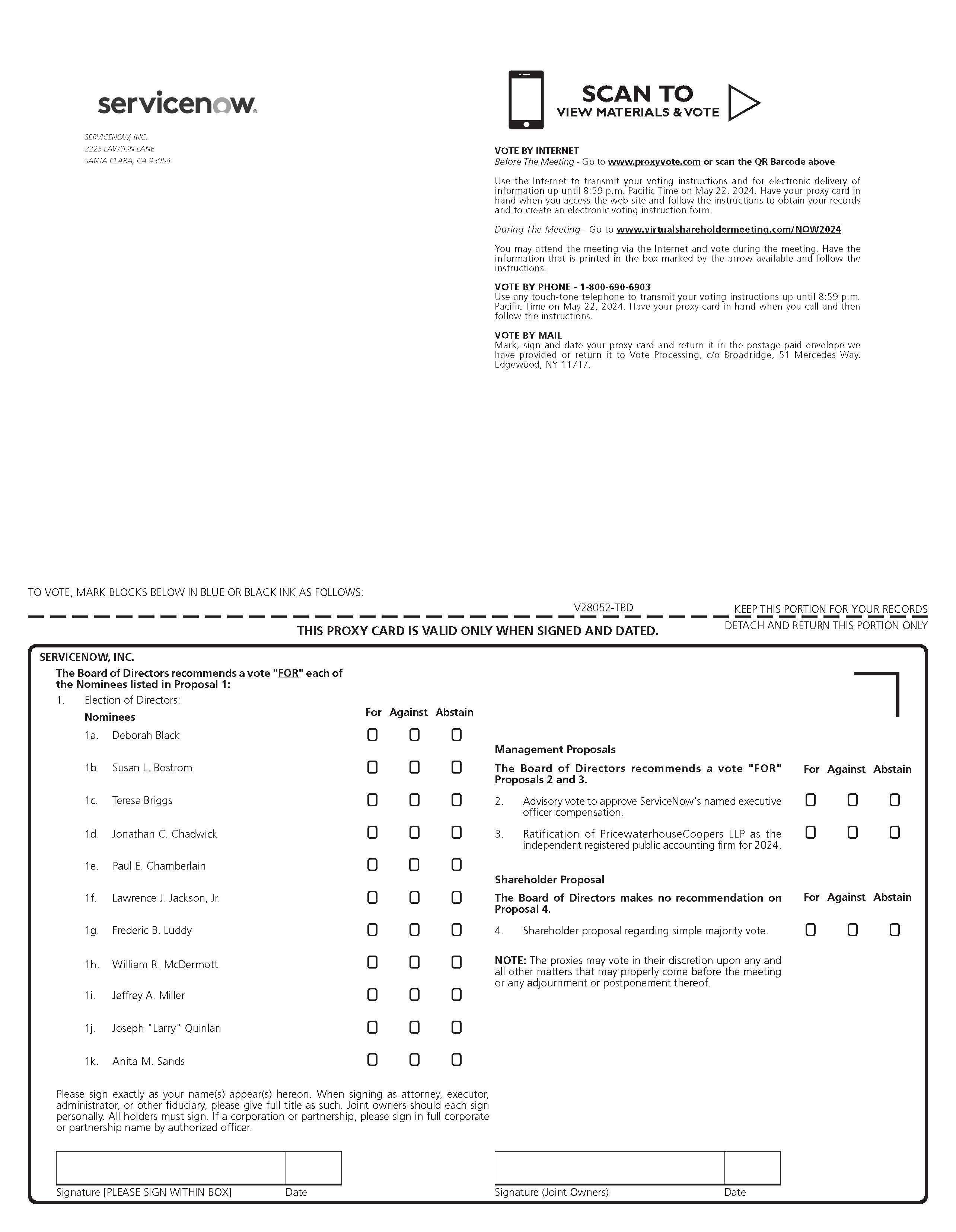0001373715DEF 14AFALSE00013737152023-01-012023-12-31iso4217:USD00013737152022-01-012022-12-3100013737152021-01-012021-12-3100013737152020-01-012020-12-310001373715now:EquityAwardsReportedValueMemberecd:PeoMember2023-01-012023-12-310001373715ecd:NonPeoNeoMembernow:EquityAwardsReportedValueMember2023-01-012023-12-310001373715now:EquityAwardsReportedValueMemberecd:PeoMember2022-01-012022-12-310001373715ecd:NonPeoNeoMembernow:EquityAwardsReportedValueMember2022-01-012022-12-310001373715now:EquityAwardsReportedValueMemberecd:PeoMember2021-01-012021-12-310001373715ecd:NonPeoNeoMembernow:EquityAwardsReportedValueMember2021-01-012021-12-310001373715now:EquityAwardsReportedValueMemberecd:PeoMember2020-01-012020-12-310001373715ecd:NonPeoNeoMembernow:EquityAwardsReportedValueMember2020-01-012020-12-310001373715now:EquityAwardAdjustmentsMemberecd:PeoMember2023-01-012023-12-310001373715ecd:NonPeoNeoMembernow:EquityAwardAdjustmentsMember2023-01-012023-12-310001373715now:EquityAwardAdjustmentsMemberecd:PeoMember2022-01-012022-12-310001373715ecd:NonPeoNeoMembernow:EquityAwardAdjustmentsMember2022-01-012022-12-310001373715now:EquityAwardAdjustmentsMemberecd:PeoMember2021-01-012021-12-310001373715ecd:NonPeoNeoMembernow:EquityAwardAdjustmentsMember2021-01-012021-12-310001373715now:EquityAwardAdjustmentsMemberecd:PeoMember2020-01-012020-12-310001373715ecd:NonPeoNeoMembernow:EquityAwardAdjustmentsMember2020-01-012020-12-310001373715now:EquityAwardsGrantedDuringTheYearUnvestedMemberecd:PeoMember2023-01-012023-12-310001373715now:EquityAwardsGrantedInPriorYearsUnvestedMemberecd:PeoMember2023-01-012023-12-310001373715now:EquityAwardsGrantedDuringTheYearVestedMemberecd:PeoMember2023-01-012023-12-310001373715now:EquityAwardsGrantedInPriorYearsVestedMemberecd:PeoMember2023-01-012023-12-310001373715now:EquityAwardsGrantedDuringTheYearUnvestedMemberecd:PeoMember2022-01-012022-12-310001373715now:EquityAwardsGrantedInPriorYearsUnvestedMemberecd:PeoMember2022-01-012022-12-310001373715now:EquityAwardsGrantedDuringTheYearVestedMemberecd:PeoMember2022-01-012022-12-310001373715now:EquityAwardsGrantedInPriorYearsVestedMemberecd:PeoMember2022-01-012022-12-310001373715now:EquityAwardsGrantedDuringTheYearUnvestedMemberecd:PeoMember2021-01-012021-12-310001373715now:EquityAwardsGrantedInPriorYearsUnvestedMemberecd:PeoMember2021-01-012021-12-310001373715now:EquityAwardsGrantedDuringTheYearVestedMemberecd:PeoMember2021-01-012021-12-310001373715now:EquityAwardsGrantedInPriorYearsVestedMemberecd:PeoMember2021-01-012021-12-310001373715now:EquityAwardsGrantedDuringTheYearUnvestedMemberecd:PeoMember2020-01-012020-12-310001373715now:EquityAwardsGrantedInPriorYearsUnvestedMemberecd:PeoMember2020-01-012020-12-310001373715now:EquityAwardsGrantedDuringTheYearVestedMemberecd:PeoMember2020-01-012020-12-310001373715now:EquityAwardsGrantedInPriorYearsVestedMemberecd:PeoMember2020-01-012020-12-310001373715now:EquityAwardsGrantedDuringTheYearUnvestedMemberecd:NonPeoNeoMember2023-01-012023-12-310001373715ecd:NonPeoNeoMembernow:EquityAwardsGrantedInPriorYearsUnvestedMember2023-01-012023-12-310001373715ecd:NonPeoNeoMembernow:EquityAwardsGrantedDuringTheYearVestedMember2023-01-012023-12-310001373715ecd:NonPeoNeoMembernow:EquityAwardsGrantedInPriorYearsVestedMember2023-01-012023-12-310001373715now:EquityAwardsGrantedDuringTheYearUnvestedMemberecd:NonPeoNeoMember2022-01-012022-12-310001373715ecd:NonPeoNeoMembernow:EquityAwardsGrantedInPriorYearsUnvestedMember2022-01-012022-12-310001373715ecd:NonPeoNeoMembernow:EquityAwardsGrantedDuringTheYearVestedMember2022-01-012022-12-310001373715ecd:NonPeoNeoMembernow:EquityAwardsGrantedInPriorYearsVestedMember2022-01-012022-12-310001373715now:EquityAwardsGrantedDuringTheYearUnvestedMemberecd:NonPeoNeoMember2021-01-012021-12-310001373715ecd:NonPeoNeoMembernow:EquityAwardsGrantedInPriorYearsUnvestedMember2021-01-012021-12-310001373715ecd:NonPeoNeoMembernow:EquityAwardsGrantedDuringTheYearVestedMember2021-01-012021-12-310001373715ecd:NonPeoNeoMembernow:EquityAwardsGrantedInPriorYearsVestedMember2021-01-012021-12-310001373715now:EquityAwardsGrantedDuringTheYearUnvestedMemberecd:NonPeoNeoMember2020-01-012020-12-310001373715ecd:NonPeoNeoMembernow:EquityAwardsGrantedInPriorYearsUnvestedMember2020-01-012020-12-310001373715ecd:NonPeoNeoMembernow:EquityAwardsGrantedDuringTheYearVestedMember2020-01-012020-12-310001373715ecd:NonPeoNeoMembernow:EquityAwardsGrantedInPriorYearsVestedMember2020-01-012020-12-31000137371512023-01-012023-12-31000137371522023-01-012023-12-31000137371532023-01-012023-12-31000137371542023-01-012023-12-31
UNITED STATES
SECURITIES AND EXCHANGE COMMISSION
WASHINGTON, D.C. 20549
SCHEDULE 14A
(Rule 14a-101)
SCHEDULE 14A INFORMATION
Proxy Statement Pursuant to Section 14(a) of
the Securities Exchange Act of 1934
Filed by the Registrant þ
Filed by a Party other than the Registrant o
Check the appropriate box:
o Preliminary Proxy Statement
o Confidential, for Use of the Commission Only (as permitted by Rule 14a-6(e)(2))
þ Definitive Proxy Statement
o Definitive Additional Materials
o Soliciting Material under §240.14a-12
SERVICENOW, INC.
(Name of Registrant as Specified In Its Charter)
(Name of Person(s) Filing Proxy Statement, if other than the Registrant)
Payment of Filing Fee (Check the appropriate box):
þ No fee required.
o Fee paid previously with preliminary materials.
o Fee computed on table in exhibit required by Item 25(b) per Exchange Act Rules 14a-6(i)(1) and 0-11.
2225 Lawson Lane
Santa Clara, California 95054
April 4, 2024
You are cordially invited to attend the 2024 Annual Shareholders Meeting of ServiceNow, Inc., a Delaware corporation (“ServiceNow”) on Thursday, May 23, 2024, at 10:00 a.m. Pacific Time. The Annual Meeting will be conducted online through a live webcast, often referred to as a “virtual meeting” of shareholders.
You can participate by visiting www.virtualshareholdermeeting.com/NOW2024. As a shareholder, all you need to join the meeting is the 16-digit control number printed in the box marked by the arrow on your Notice Regarding Availability of Proxy Materials (the “Notice of Internet Availability”). You may submit comments and questions before the meeting at the same website address.
You will be able to listen to the official meeting, submit questions and comments and vote your shares from any location with an Internet connection. Questions may be submitted before the meeting as well at the website noted above. Our virtual meeting format allows us to increase shareholder access, saves us and our shareholders time and money and preserves the rights and opportunities of our shareholders to participate in the meeting as efficiently and effectively as they could by attending in person. It also allows us to reduce the environmental impact of our meeting.
We have elected to deliver our proxy materials to our shareholders over the Internet. Similar to the benefits of holding our meeting virtually, our proxy delivery process reduces our environmental impact and lowers the costs of printing and distributing materials without adversely impacting our ability to provide shareholders with timely access to important information.
On or about April 4, 2024, we expect to mail to our shareholders the Notice of Internet Availability containing instructions on how to access our Proxy Statement for our 2024 Annual Meeting and our 2023 Annual Report to shareholders. The Notice of Internet Availability also provides instructions on how to vote by mail or over the Internet and includes instructions on how to receive a paper copy of the proxy materials by mail.
The matters we will discuss and vote on at the 2024 Annual Meeting are described in the notice of annual meeting on the next page and in our Proxy Statement that follows.
Please use this opportunity to share your views by participating in our meeting and voting your shares. Even if you cannot participate in the meeting, please vote over the Internet, by telephone or by requesting and mailing your proxy card to ensure your representation at the meeting. Your vote is important.
We appreciate your continued support of ServiceNow as we build the Defining Enterprise Software Company of the 21st Century.
Sincerely,
William R. “Bill” McDermott
Chairman of the Board and Chief Executive Officer
| | | | | |
| |
Notice of 2024 Annual Meeting | |
| |
| | | | | | | | | | | | | | | | | | | | |
| Items of Business | Board Recommendations | | | Date and Time May 23, 2024 (Thursday) 10:00 a.m., Pacific Time |
| | | | |
| | | | |
1 | To elect 11 directors, each to serve until the next annual shareholders meeting and until his or her successor is elected and qualified or his or her earlier death, resignation or removal | “FOR” each director nominee  See page 9 See page 9 | |
| | |
| | Location Live webcast www.virtualshareholdermeeting.com/NOW2024 |
| | | |
| | |
| | | |
| | | | | | Record Date Only shareholders of record at the close of business on March 26, 2024, are entitled to notice of, and to vote at, the Annual Meeting. |
2 | To hold a non-binding advisory vote to approve the compensation of our named executive officers (commonly referred to as “say on pay”) | “FOR”  See page 50 See page 50 | |
|
| | | |
| | |
| |
| | | | | | |
3 | To ratify the appointment of PricewaterhouseCoopers LLP as our independent registered public accounting firm for the year ending December 31, 2024 | “FOR” | | | |
| How to Vote |
|
|
| | |
| | Internet www.proxyvote.com |
| | | |
| | |
| |
| | | | | | Telephone 1-800-690-6903 |
4 | To vote on a shareholder proposal regarding simple majority vote | NO RECOMMENDATION | |
| | |
| | Mail Mark, sign and date your proxy card and return it in the postage-paid envelope |
| | | |
| | | | |
In addition, shareholders may be asked to consider and vote on such other business as may properly come before the Annual Meeting. For 10 days prior to the Annual Meeting, a complete list of the shareholders entitled to vote at the Annual Meeting will be available upon request to ir@servicenow.com for examination by any shareholder for any purpose relating to the Annual Meeting. All shareholders are invited to attend the Annual Meeting. Any shareholder attending the Annual Meeting may vote online at the Annual Meeting even if the shareholder previously voted. The previous votes will be superseded by the vote such shareholder casts online at the Annual Meeting. Thank you for your continued support of ServiceNow. By Order of the Board of Directors, Russell S. Elmer General Counsel and Secretary April 4, 2024 | |
| | QR Code Scan the QR code on your voting materials to vote with your mobile device |
| | |
| Whether or not you expect to attend the Annual Meeting, we encourage you to read this Proxy Statement and vote over the Internet, by telephone, by requesting and mailing your proxy card or by mobile device as soon as possible, so that your shares may be represented at the Annual Meeting. For specific instructions on how to vote your shares, please refer to the section titled “Annual Meeting General Information” beginning on page 106 of the proxy statement and the instructions on the enclosed Notice of Internet Availability. |
This Proxy Statement contains forward-looking statements. All statements contained in this Proxy Statement other than statements of historical or current fact, including statements regarding our environmental, social and governance plans and goals, executive compensation plans, and business strategy and plans are forward-looking. The words "believe," "may," "will," "estimate," "continue," "anticipate," "intend," "expect" and similar expressions are intended to identify forward-looking statements, although not all forward-looking statements contain these identifying words. Forward-looking statements are based on our management’s beliefs and assumptions and on information currently available to management as of the date of this Proxy Statement. Actual results could differ materially from the results expressed or implied by the forward-looking statements we make. Factors that may cause actual results to differ materially from those expressed or implied in any forward-looking statement include, but are not limited to, those discussed in the section titled “Risk Factors” in our 2023 Annual Report on Form 10-K. We undertake no obligation, and do not intend, to update the forward-looking statements.
The content of the websites, and additional materials found on those websites, referred to in this Proxy Statement are not deemed to be part of, and are not incorporated by reference into, this Proxy Statement.
| | | | | |
| |
Proxy Statement Summary This summary highlights information contained elsewhere in this Proxy Statement. We recommend you read this Proxy Statement fully before voting. | |
| |
2023 Business Highlights
2023 was another year of tremendous year-over-year growth for ServiceNow, continuing our outperformance despite an uneven macroeconomic environment and significant market volatility, particularly in our sector.
Achieving Strong Growth and Profitability
| | | | | | | | | | | |
| | | |
Subscription Revenues and Renewal Rate | |
| | | |
| | | |
Subscription Revenues 26% FY’23 Growth Y/Y | 98% Industry Renewal Rate(1) 5 Years in a Row |
| | | |
| | | |
Total Revenues | |
| | | |
| | | |
$8.97 Billion Total Revenues | Total Revenues Growth Y/Y |
| | | | | | | | | | | |
| | | |
Non-GAAP Operating Margin and Non-GAAP Operating Income Growth(3) |
| | | |
| | | |
28% Non-GAAP Operating Margin | Non-GAAP Operating Income Growth Y/Y |
| | | |
| | | |
Free Cash Flow(3) |
| | | |
| | | |
$2.73 Billion Free Cash Flow | 30% Free Cash Flow Margin | FCF Growth Y/Y |
Numbers rounded for presentation purposes. ServiceNow metrics as of December 31, 2023, except as noted otherwise.
(1)We adjust our renewal rate for acquisitions, consolidations and other customer events that cause the merging of two or more accounts occurring at the time of renewal. For additional information, please see the discussion under the sections titled “Management’s Discussion and Analysis of Financial Condition and Results of Operations—Key Business Metrics” in our Annual Report on Form 10-K for the year ended December 31, 2023.
(2)Represents the weighted average metric of our 2023 proxy peers that are publicly-traded as of December 31, 2023 with a comparable growth metric for the last reported four fiscal quarters. See “Compensation Discussion and Analysis—Section 3- Compensation Policies and Practices—Roles and Responsibilities—Peer Companies” for a list of our 2023 Proxy Peers.
(3)See Appendix A for a reconciliation of GAAP to non-GAAP metrics and other information.
Delivering Continued Superior Shareholder Value
| | |
|
Five-Year Total Shareholder Return |
|
|
As shown below, our total shareholder return over the past five years significantly outperformed our 2023 Proxy Peers and the S&P 500. See “Compensation Discussion and Analysis—Section 3- Compensation Policies and Practices—Roles and Responsibilities—Peer Companies” for a list of our 2023 Proxy Peers.
Source: S&P Capital IQ, based on latest closing price as of December 31, 2023. Proxy Peers only include publicly-traded companies as of such date.
Achievements
| | | | | | | | | | | | | | | | | |
| Business | | Partnerships & Alliances | | Culture & Awards |
| | | | | |
•Recognized as Fortune 500 Company, with 2022 revenue exceeding $7.2 billion •Continued momentum toward above $10 billion in subscription revenue in 2024 and above $15 billion in subscription revenue by 2026 •Generated over $1 billion in ACV in three workflow businesses - Technology, Customer and Creator •Delivered a 29% increase in deals greater than $1 million in Net New ACV (“NNACV”)(1) •Finished 2023 operating at the Rule of 55+(2) •Launched significant new capabilities with Now Assist generative AI portfolio generating strongest NNACV contribution for any new product family | •Accelerated Generative AI (“GenAI”) for the enterprise with NVIDIA partnership •Made the Now Platform and all ServiceNow solutions available on the AWS Marketplace •Integrated Now Assist GenAI into Deloitte’s next-generation managed services •Joined AI Alliance started by IBM and Meta to support responsible open AI technology innovation •Announced ServiceNow Disputes Management, built with Visa to transform payment services •Expanded AI partnerships with EY, Accenture, KPMG, Cognizant and DXC | •Increased our employee headcount by 10.9% in 2023 with no layoffs •Recognized as one of Fortune’s World’s Best Workplaces - one of only 25 companies to make this list •Ranked #3 on Glassdoor’s Best Places to Work US Large Companies 2023, and #1 in enterprise software •Named #5 overall on the 2023 American Opportunity Index, and #1 in software category(3) •Scored a perfect 100 rating in the Human Rights Campaign’s Equality 100 Award for the fourth year in a row: Leaders in LGBTQ+ Workplace Inclusion |
| | | | | |
(1)See “Compensation Discussion and Analysis—Section 2- 2023 Executive Compensation—2023 Annual Cash Incentive” for a definition of NNACV.
(2)Rule of 55+ is defined as free cash flow margin plus subscription revenue growth rate for the year ended December 31, 2023. See Appendix A for a reconciliation of GAAP to non-GAAP metrics and other information.
(3)The American Opportunity Index, a scorecard for worker advancement, assesses America's largest companies on their ability to maximize internal talent to drive business performance and individual employee growth.
ServiceNow’s Board of Directors
ServiceNow is overseen by directors with the breadth and depth of expertise necessary to guide our business strategy and create shareholder value. The Board is independent, with diverse backgrounds, experience and perspectives.
Skills and Experience
| | | | | | | | | | | | | | | | | | | | | | | | | | | | | | | | |
| Leadership & Governance | |
| | | | | | | | | | |
| Senior Leadership Experience | | | Global Operations Leadership Experience | | | Public Company Board Experience |
| 10/11 | | | 11/11 | | | 8/11 |
| | | | | | | | | | |
| | | | | | | | | | |
| Risk Management | | | Financial | | | Non-Corporate | |
| | | | | | | | | | |
| Risk Management Experience | | | Financial Experience | | | Non-Profits and Education |
| 6/11 | | | 5/11 | | | 8/11 |
| | | | | | | | | | |
| | | | | | | | | | |
| Strategic | | | | | | | | | |
| | | | | | | | | | |
| Significant Technical or Business Experience in Software Industry | | | Experience at High-Growth Organization with $5+ Billion Annual Revenue | | | Multi-Product/Services or Multi-Segment Company Experience |
| | 10/11 | | | | 7/11 | | | | 10/11 |
| | | | | | | | | | |
| | | | | | | | | | |
| Knowledge of Emerging Technologies | | | Experience with Large Scale Transformations in Key Functions | | | Experience with M&A, Debt and Equity Financings and Other Strategic Transactions |
| | 8/11 | | | | 8/11 | | | | 5/11 |
See “Nomination Process and Nominees” for more detail.
Board Profile*
| | | | | | | | | | | | | | | | | | | | | | | | | | | | | | | | | | | | | | | | | | | | | | | | | | |
Independence | | | Tenure (Median) | | | Age (Median) | | | Diversity | | |
| | | | | | | | | | | | | | | | |
| | | | | | | | | | | | | | | | |
| n | 9 Independent | | | n | 4 <5 years | | | n | 2 <50 years | | | n | 4 Female | | n | 2 Ethnically diverse |
| n | 2 Not independent | | | n | 5 5-10 years | | | n | 2 50-60 years | | | n | 7 Male | | n | 9 Non-diverse |
| | | n | 2 >10 years | | | n | 6 61-70 years | | | | | | | |
| | | | | | | | n | 1 >70 years | | | | | | | |
* All figures are based on a total of 11 directors.
Director Nominees
The following table provides an overview of the nominees for election at our Annual Meeting.
| | | | | | | | | | | | | | | | | | | | | | | | | | |
| | | | Committee Membership | |
Name and Occupation | Age | Director Since | Independent | Audit Committee | Leadership Development and Compensation Committee | Nominating and Governance Committee | Number of Other Boards(2) |
| | | | | | | | |
| William R. McDermott Chairman and Chief Executive Officer of ServiceNow, Inc. | 62 | 2019 | | | | | 1 |
| | | | | | | | |
| | | | | | | | |
| Deborah Black Former Vice President, Head of Engineering of Netflix, Inc. | 64 | 2023 | | | | | 0 |
| | | | | | | | |
| | | | | | | | |
| Susan L. Bostrom Former Executive Vice President, Chief Marketing Officer and Head of Worldwide Government Affairs of Cisco Systems, Inc. Incoming Lead Independent Director(1) | 63 | 2014 | | | | | 2 |
| | | | | | | | |
| | | | | | | | |
| Teresa Briggs Former Vice Chair & West Region Managing Partner of Deloitte LLP; Retired Certified Public Accountant | 63 | 2019 | | | | | 3 |
| | | | | | | | |
| | | | | | | | |
| Jonathan C. Chadwick Former Executive Vice President, Chief Financial Officer and Chief Operating Officer of VMware, Inc. | 58 | 2016 | | | | | 3 |
| | | | | | | | |
| | | | | | | | |
| Paul E. Chamberlain Business Advisor & Investor; Former Managing Director and Co-Head of Global Technology Banking of Morgan Stanley | 60 | 2016 | | | | | 1 |
| | | | | | | | |
| | | | | | | | |
| Lawrence J. Jackson, Jr. Founder and Chief Executive Officer of gamma; Former Global Creative Director, Apple Music of Apple Inc. | 43 | 2020 | | | | | 0 |
| | | | | | | | |
| | | | | | | | |
| Frederic B. Luddy Founder and Former President, Chief Executive Officer and Chief Product Officer of ServiceNow, Inc. | 69 | 2004 | | | | | 0 |
| | | | | | | | |
| | | | | | | | |
| Jeffrey A. Miller Chief Executive Officer of JAMM Ventures Lead Independent Director | 73 | 2011 | | | | | 0 |
| | | | | | | | |
| | | | | | | | |
| Joseph “Larry” Quinlan Former Global Chief Information Officer of Deloitte LLP | 61 | 2021 | | | | | 2 |
| | | | | | | | |
| | | | | | | | |
| Anita M. Sands Former Group Managing Director, Head of Change Leadership of UBS Financial Services | 47 | 2014 | | | | | 1 |
| | | | | | | | |
(1) New Lead Independent Director appointment effective as of the 2024 Annual Meeting, subject to her re-election as director.
(2) Reflects service on other public company boards.
Shareholder Engagement
We are committed to robust shareholder engagement
We actively engage with shareholders at least twice a year to better understand their priorities and perspectives on significant issues, including company strategy and performance, corporate governance, executive compensation, sustainability matters and other topics. Our outreach efforts are led by our Compensation Committee Chair and Global People, Investor Relations and Legal teams. In connection with our 2023 Annual Meeting and through early 2024, we undertook significant engagement and, in some instances, held multiple meetings with certain investors. Our Compensation Committee Chair participated in approximately half of our engagements.
| | | | | |
Full-Year Shareholder Engagement |
| |
We contacted | We engaged |
| |
|
of our outstanding shares | of our outstanding shares |
In addition, our comprehensive shareholder engagement program is supplemented by our Investor Relations team, frequently along with our Chief Executive Officer, Chief Operating Officer and Chief Financial Officer, engaging with our shareholders throughout the year through quarterly earnings calls, investor conferences, user-group meetings and product- and customer-related communications. We also use multiple communication channels to interact with our retail shareholders, such as our Annual Report and periodic updates to our website.
Shareholder Engagement Cycle
We follow a comprehensive engagement plan
| | | | | | | | | | | | | | |
| | | | |
Summer Assess Annual Meeting results to determine next steps, and prioritize post Annual Meeting shareholder engagement focus areas | | | Fall/Winter Hold off-season shareholder engagement to solicit feedback and report to the Board, Leadership Development and Compensation Committee, and Nominating and Governance Committee Incorporate input from shareholder meetings into Annual Meeting planning |
Spring Publish our Proxy Statement and Annual Report Conduct our Annual Meeting shareholder engagement to seek feedback | |
| | | | |
Shareholder Engagement on Compensation
Our active engagement with shareholders, which during 2023 focused primarily on executive compensation, informed the actions we took following our Annual Meeting.
Following the disappointing outcome of our 2023 Say on Pay proposal at our 2023 Annual Meeting (41% of votes cast were in favor), the Compensation Committee undertook a robust process to address shareholders’ concerns. Under the leadership of its new Chair, Susan L. Bostrom, the Compensation Committee conducted a thorough evaluation of our executive compensation program and led an extensive shareholder outreach effort to preview potential changes under consideration and fully understand shareholders’ perspectives ahead of making responsive changes. Ms. Bostrom participated in approximately half of these shareholder meetings. Following this engagement, the Compensation Committee was briefed on the feedback received, which informed the changes we made to our executive compensation program. The feedback we received from shareholders and the responsive changes we made are outlined below.
The most consistent feedback we received is listed below under “What We Heard,” followed by other common feedback.
| | | | | | | | | | | | | | | | | | | | | | | | | | | | | |
| | | | | | | | | |
| What We Heard | | | | | | What We Did | |
| | | | | | | | | |
| | Eliminate overlapping metrics in the annual cash incentive plan and performance-based RSUs (“PRSUs”) | | | | | | Eliminated overlapping metrics; NNACV metric in 2024 annual cash incentive plan only, previously in both annual cash incentive plan and PRSUs | |
| | | | | | | | |
| | | | | | | | |
| | Lengthen performance period for PRSUs | | | | | Lengthened PRSU performance period to three years from one year, following a
one-year transition period | |
| | | | | | | | | |
| | | | | | | | | |
| | | | | | | | | |
| What We Also Heard | | | | | | What We Also Did | |
| | | | | | | | | |
| | Extend vesting period for PRSUs | | | | | | Extended PRSU vesting period to three year cliff vesting from three year ratable vesting, following a one-year transition period | |
| | | | | | | | |
| | | | | | | | |
| | Retain a relative measure in PRSUs | | | | | Retained relative total shareholder return (“rTSR”) modifier in PRSUs | |
| | | | | | | | |
| | | | | | | | |
| | Avoid mid-year modification to executive compensation program metrics, including 2021 PSO Awards | | | | | No mid-year modifications were made to 2023 executive compensation program metrics, including 2021 PSO Awards | |
| | | | | | | | |
| | | | | | | | |
| | Maintain commitment to no additional one-time equity awards to any NEO holding a 2021 PSO Award with an ongoing performance period, except in connection with promotions | | | | | Maintained commitment to no additional one-time equity awards of any variety to any NEO holding a 2021 PSO Award with an ongoing performance period, except in connection with promotions | |
| | | | | | | | |
| | | | | | | | |
| | Provide an update on the 2021 PSO Awards payout | | | | | Provided an update on the 2021 PSO Awards payout | |
| | | | | | | | |
| | | | | | | | |
| | Simplify and streamline Compensation Discussion and Analysis disclosure | | | | | Redesigned full Proxy Statement, including Compensation Discussion and Analysis to enhance overall readability | |
| | | | | | | | | |
See “Compensation Discussion and Analysis—Section 1- Executive Summary—Why Vote “FOR” Say on Pay?” for more detail.
Executive Compensation
Our executive compensation program is designed to align with our pay-for-performance philosophy, drive achievement of our strategic and financial goals and continue to incentivize value creation for all of our shareholders and other stakeholders. Maintaining a compensation program that motivates and retains a talented and experienced leadership team is critical to ServiceNow’s long-term success.
2023 Compensation Highlights
For 2023, the annual pay mix for our CEO and other named executive officers (“NEOs”) consisted of base salary, annual cash incentive and long-term performance-based and time-based equity awards, with a significant amount of compensation at risk and tied to rigorous financial and operational performance targets. The following shows the percentage of this mix based on total target annual compensation:
Numbers rounded for presentation purposes.
Based on strong financial, operational and total shareholder return (“TSR”) outperformance in 2023, our annual cash incentive for 2023 and PRSU 2023 components paid out above target, consistent with alignment of our executive compensation with shareholder value creation.
•Annual cash incentives were earned at 118.9% of target for 2023 based on achievement of rigorous 2023 NNACV, subscription revenues and operating margin targets as well as NEO performance relative to their individual goals.
•PRSUs for 2023 were earned at 108.8% of target based on achievement of rigorous 2023 NNACV and free cash flow margin targets. Given the long-term nature of our executive compensation program, the final tranche of PRSUs is further subject to adjustment based on three-year TSR relative to the S&P 500.
See “Compensation Discussion and Analysis—Section 2- 2023 Executive Compensation Program” for more detail.
Compensation Discussion & Analysis Roadmap
| | | | | |
| What to Look For | Where to Find it |
| |
•2023 Named Executive Officers | •“Compensation Discussion & Analysis” starting on page 53 |
| |
| |
•2023 Say on Pay and executive compensation program changes | •“Why Vote “FOR” Say on Pay?” starting on page 54 |
| |
| |
•2023 Annual Cash Incentive outcomes | •“Executive Compensation Program” starting on page 62 |
| |
| |
•2023 Long-Term Incentive Plan outcomes | •“Executive Compensation Program” starting on page 66 |
| |
| |
•2023 Summary Compensation Table | •“Executive Compensation Tables” starting on page 84 |
| |
| | | | | | | | | | | |
| | |
PROPOSAL NO. 1 | | |
| |
| | |
| | |
Election of 11 Directors |
| | | |
•The Board, acting upon the recommendation of the Nominating and Governance Committee, has nominated the 11 Directors currently serving for re-election to the Board of Directors. •The nominees represent a diverse slate of directors who have been highly successful executives and bring a unique set of skills and experiences to the Board. •55% of the nominees bring gender or ethnic diversity, including all three Board committee chairs and the incoming Lead Independent Director. |
| | | |
| | | |
| The Board recommends a vote ”FOR” each nominee for Director. | |
| | | |
| | | | | | | | | | | |
| | |
PROPOSAL NO. 2 | | |
| |
| | |
| | |
Advisory Vote to Approve Executive Compensation (“Say on Pay”) |
| | | |
•After our 2023 Annual Meeting, we undertook an extensive shareholder engagement effort to understand shareholder concerns related to our executive compensation program. •Informed by shareholder feedback, we conducted a thorough evaluation of the full executive compensation program and made changes responsive to that feedback. •Changes include, among others, eliminating overlapping metrics in our annual and long-term incentive plans and lengthening the performance period for performance-based RSUs to three years. |
| | | |
| | | |
| The Board recommends a vote ”FOR” this proposal. | |
| | | |
| | | | | | | | | | | |
| | |
PROPOSAL NO. 3 | | |
| |
| | |
| | |
Ratify the Independent Registered Public Accounting Firm for 2024 |
| | | |
•The Audit Committee appointed PricewaterhouseCoopers LLP (“PwC”) as our independent registered public accounting firm for 2024. •As a matter of good governance, we are submitting the appointment to our shareholders for ratification. |
| | | |
| | | |
| The Board recommends a vote ”FOR” this proposal. | |
| | | |
| | | | | | | | | | | |
| | |
PROPOSAL NO. 4 | | |
| |
| | |
| | |
Shareholder Proposal Regarding Simple Majority Vote |
| | | |
•We have received a shareholder proposal regarding simple majority vote. •If the shareholder proponent of the proposal, or the proponent’s representative, is present at the annual meeting in person and presents the proposal for a vote, then the proposal will be voted on at the annual meeting. •The Board makes no recommendation on this proposal and will carefully consider the outcome of this advisory vote when deciding how to proceed. |
| | | |
| | | |
| ■ | The Board makes no recommendation on this shareholder proposal. | |
| | | |
| | | | | | | | |
| |
PROPOSAL NO. 1 | |
|
| |
| |
Election of 11 Directors |
| | |
| | |
| The Board recommends a vote ”FOR” each nominee for Director. |
| | |
Introduction
The Board currently consists of 11 members. At the recommendation of our Nominating and Governance Committee (“Governance Committee”), the Board recommends that each of the following nominees be elected to serve for a one-year term expiring at the next Annual Meeting and until such director’s successor is elected and qualified or until such director’s earlier resignation or removal:
| | | | | | | | |
William R. McDermott Deborah Black Susan L. Bostrom Teresa Briggs | Jonathan C. Chadwick Paul E. Chamberlain Lawrence J. Jackson, Jr. Frederic B. Luddy | Jeffrey A. Miller
Joseph “Larry” Quinlan
Anita M. Sands |
Each of these nominees has agreed to be named in this Proxy Statement and to serve as a director, if elected. The Board has no reason to believe that any nominee will be unavailable or will decline to serve as a director. If any nominee is unable or declines to serve as a director at the time of the Annual Meeting, the proxy holders may vote for any nominee designated by the Board to fill the vacancy. There are no family relationships among any of our directors or executive officers.
Vote Required and Recommendation of the Board
In an uncontested election of directors, each director nominee will be elected to the Board if the nominee receives more “FOR” votes than “AGAINST” votes. Broker non-votes and abstentions will have no effect on the outcome of the vote. Under our Corporate Governance Guidelines, when a director is elected or re-elected to the Board, the director is required to submit a letter of resignation that will be effective only upon both (1) the failure to receive the required vote at any annual meeting at which the director is up for re-election and (2) the acceptance of such resignation by the Board. If a current director fails to receive the required vote for re-election, the Governance Committee will decide whether to recommend that the Board accept the director’s resignation and the Board will make the final decision.
| | | | | |
| |
Nomination Process and Nominees | |
| |
Nomination Process
The Governance Committee leads the Board’s annual board and committee evaluation process, which includes an assessment of board and committee composition effectiveness and the alignment of directors’ skills to oversight responsibilities. Informed by this annual assessment, the Governance Committee oversees the director nomination process and recommends to the Board a slate of candidates, which may include both current and new director nominees, to nominate for election at each annual meeting. When any gaps are identified regarding Board composition, the Governance Committee assists the Board in identifying new individuals qualified to become Board members included on a slate of candidates and also may recommend that the Board elect new members to the Board to serve until our next Annual Meeting. A high level overview of the director nominations process follows.
| | | | | | | | | | | | | | | | | | | | | | | |
| 1 | Identify | | 2 | Evaluate | | 3 | Select |
| | | | | | | |
In identifying director candidates, the Governance Committee considers not only skill sets needed on the Board, including from current directors but also individuals recommended by directors, officers, employees, shareholders and others. For information on the criteria the Board considers, please see section titled “—Board Qualifications” below. | | Evaluations of candidates generally involve a review of background materials, internal discussions and interviews with selected candidates, as appropriate. In addition, the Governance Committee may engage consultants or third-party search firms to assist in identifying and evaluating potential nominees and/or conducting background checks. | | Candidates for nomination to our Board are selected by our Board based on the recommendation of the Governance Committee in accordance with the Governance Committee charter, our Charter and Bylaws, our Corporate Governance Guidelines and the criteria adopted by the Board. |
| | | | | | | |
Independence
The Board determines the independence of our directors by applying the independence standards established by the New York Stock Exchange (“NYSE”) and the U.S. Securities and Exchange Commission (“SEC”). Under those standards, a director is independent only if the board of directors affirmatively determines that the director has no material relationship with the company or any relationship, which, in the opinion of the board, would interfere with the exercise of independent judgment in carrying out the responsibilities of a director. The standards also specify various relationships that preclude a determination of director independence, which may include commercial, industrial, consulting, legal, accounting, charitable, family and other business, professional and personal relationships.
Applying these standards, the Board annually reviews the independence of the Company’s directors, taking into account all relevant facts and circumstances. In its most recent review, the Board considered, among other things, the relationships that each non-employee director has with the Company and all other facts and circumstances the Board believed were relevant. Based upon this review, the Board determined that, other than our Chairman and CEO Mr.
Nomination Process and Nominees
McDermott, and our founder, Mr. Luddy, all of our directors are independent. Further, all of the Board committees consist entirely of independent directors.
Board Qualifications
The Governance Committee seeks to maintain a board consisting of a diverse group of highly qualified leaders in their respective fields with a variety of perspectives and skills to effectively address our evolving needs, oversee senior management and represent the best long-term interests of our shareholders. To this end, the Governance Committee considers, among other factors, the following criteria to evaluate potential nominees.
| | | | | |
| |
| Professional Background & Experience | Specific experience, background and education, including operating experience, financial expertise, significant corporate governance experience and expertise, talent management expertise, risk management expertise, global experience, enterprise experience, technology expertise and knowledge about our business or industry. |
| |
| |
| Leadership | Sustained record of substantial accomplishments and leadership in executive, C-suite, senior-level management, entrepreneurship and/or policy-making positions in finance, law, business, government, education, technology or not-for-profit enterprises, as well as public company board experience. |
| |
| |
| Independence | Qualification as “independent” under NYSE and SEC rules and freedom from actual or perceived conflicts of interest that could interfere with duties as a director, including Board tenure, outside board service and other affiliations. |
| |
| |
| Diversity | Contributions to the diversity of the Board, including, but not limited to, perspective, race, ethnicity, gender, age, sexual orientation, geography, disability, veteran status and other areas of experience and expertise. |
| |
| |
| Character | Commitment to ethical conduct and integrity, along with the requisite interpersonal skills to work with other directors on the Board and management in ways that are effective and beneficial to the interests of the Company and its shareholders, employees, customers and communities. |
| |
| |
| Time | Willingness and ability to devote adequate time and effort to current and future Board and committee responsibilities. |
| |
Although the Governance Committee uses these criteria, among others, to evaluate current directors and new director candidates, it has not established any minimum criteria. The Governance Committee does not use different standards to evaluate nominees recommended by our directors and management relative to those recommended by shareholders. The Governance Committee considers nominees based on our need to fill vacancies or to expand the Board, and also considers our need to fill particular roles on the Board or committees thereof (e.g., independent director role or an audit committee financial expert). When appropriate, the Governance Committee may retain executive recruitment firms to assist it in identifying suitable candidates. Any such recruitment firm is instructed to include a pool of candidates with a diverse set of characteristics, backgrounds and experiences. After its evaluation of potential nominees, the Governance Committee recommends its chosen nominees to the Board for approval. For a summary of each of our current directors’ background, please see section titled “—Director Nominees.”
Diversity
Board member diversity, as described above, is, and will continue to be, a priority for the Board in our director nomination process, as we believe it is important for the Board’s composition to appropriately reflect the diversity of the Company, shareholders, workforce, customers and communities. While we do not have a formal policy with respect to diversity, the Board is committed to actively seeking out individuals who will contribute to its overall diversity for inclusion in the candidate pool.
Nomination Process and Nominees
External Commitments
As reflected in the Corporate Governance Guidelines, the Board recognizes the importance of external commitments not impairing any director’s ability to discharge their responsibilities to effectively serve on the Board. Further, the Board believes that each person nominated for election at the Annual Meeting has the ability to effectively serve on the Board and to dedicate sufficient time and attention to his or her responsibilities as a member of the Board, taking into consideration each nominee’s attendance at meetings of the Board and any committees on which such nominee serves; the number of additional public company boards on which a nominee serves; and the nominee’s level of contribution and participation in meetings of the Board and any of its committees.
Shareholder Nominations
As indicated above, the Governance Committee considers shareholder recommendations for director candidates. The following procedures apply to nominations by shareholders:
•If a shareholder would like to nominate a director candidate for the next Annual Meeting, the shareholder must submit the nomination by mail to our Corporate Secretary at our principal executive offices, not fewer than 75 or more than 105 days prior to the first anniversary of the previous year’s Annual Meeting.
•Nominations for a director candidate must be accompanied by all information relating to such person as would be required to be disclosed in solicitations of proxies for election of such nominee as a director pursuant to Regulation 14A under the Exchange Act, including such person’s written consent to being named in the Proxy Statement as a nominee and to serve as a director if elected, as well as the information required to be included pursuant to our Bylaws.
•Appropriately nominated proxy access nominees or nominees who comply with both our advance notice bylaw provisions and the Exchange Act Rule 14a-19 will be included in the Company’s Proxy Statement and ballot.
Nomination Process and Nominees
Nominee’s Experience and Skills
The table below highlights the mix of experience, qualifications, attributes and skills of the nominees that, among other factors, led the Board to recommend these nominees for election to the Board. The matrix that follows is intended to depict notable areas of focus for each director. The absence of a designation does not mean a director does not possess that particular skill or qualification. For additional biographical information on each nominee and continuing director please see section titled “—Director Nominees.”
| | | | | |
| |
LEADERSHIP & GOVERNANCE | |
| |
| |
Senior Leadership | Senior leadership experience at a global public company or other organization focused on technology or with a rapidly evolving business model helps the Board analyze, advise on and oversee the execution of important operational and policy issues. |
| |
| |
Global Operations Leadership | Valuable business and cultural perspective derived from global operations leadership experience helps guide important aspects of our business with a global experience and significant revenues derived outside of the U.S. |
| |
| |
| Public Company Board Experience | Directors with public company board experience understand the dynamics and operation of a corporate board, the relationship between the board and the CEO and other senior management, the legal and regulatory landscape, and the importance of effective oversight of strategic, operational and compliance matters. |
| |
| |
RISK MANAGEMENT | |
| |
| |
Risk Management | Directors with experience in identifying, prioritizing and managing a broad spectrum of risks can help the Board anticipate risks and oversee their management. |
| |
| |
| FINANCIAL | |
| |
| |
Financial Experience | Knowledge of financial markets, financing, accounting and financial reporting processes assists the Board in understanding, advising and overseeing our financial position, results of operations, financial reporting, internal control processes and audit matters. |
| |
| |
| STRATEGIC | |
| |
| |
Significant Technical or Business Experience in Software Industry | Education or experience in relevant technology is useful for understanding our R&D efforts, competing technologies, the products and processes we develop and the market segments in which we compete. |
| |
| |
Experience at High-Growth Organization with $5+ Billion Annual Revenue | Directors with experience leading a high-growth organization provide practical insights on challenges and opportunities we may encounter along our growth trajectory. |
| |
| |
| Multi-Product/Services or Multi-Segment Company Experience | Directors with experience leading multi-product/services or multi-segment companies can help provide insight into how to structure our business and navigate and expand our offerings. |
| |
| |
| Knowledge of Emerging Technologies | Directors with experience identifying and developing emerging technologies and architectures are valuable assets to the Board, as new technologies and architectures can rapidly disrupt even the most well-developed strategy. |
| |
| |
| Large Scale Transformations in Key Functions | Directors with experience in key functions of large scale transformations can help guide our business as it continues to scale and channel the perspective of customers leveraging the Now Platform to achieve their business objectives. |
| |
| |
| M&A, Debt and Equity Financings and Other Strategic Transactions | Directors with experience in M&A, debt and equity financings and other strategic transactions provide insight into developing and implementing strategies for methodically growing our business. |
| |
| |
NON-CORPORATE | |
| |
| |
Non-Profit and Education | Directors with non-profit and education experience guide us on opportunities to help our community and to identify growth opportunities in the non-profit sector. |
| |
Nomination Process and Nominees
| | | | | | | | | | | | | | | | | | | | | | | | | | | | | | | | | | | |
| |
| | | | | | | | | | | |
| LEADERSHIP & GOVERNANCE | | | | | | | | | | | |
| | | | | | | | | | | |
| | | | | | | | | | | |
| Senior Leadership Experience | | | | | | | | | | | |
| | | | | | | | | | | |
| | | | | | | | | | | |
| Global Operations Leadership Experience | | | | | | | | | | | |
| | | | | | | | | | | |
| | | | | | | | | | | |
| Public Company Board Experience | | | | | | | | | | | |
| | | | | | | | | | | |
| | | | | | | | | | | |
| RISK MANAGEMENT | | | | | | | | | | | |
| | | | | | | | | | | |
| | | | | | | | | | | |
| Risk Management Experience | | | | | | | | | | | |
| | | | | | | | | | | |
| | | | | | | | | | | |
FINANCIAL | | | | | | | | | | | |
| | | | | | | | | | | |
| | | | | | | | | | | |
Financial Experience | | | | | | | | | | | |
| | | | | | | | | | | |
| | | | | | | | | | | |
| STRATEGIC | | | | | | | | | | | |
| | | | | | | | | | | |
| | | | | | | | | | | |
Significant Technical or Business Experience in Software Industry | | | | | | | | | | | |
| | | | | | | | | | | |
| | | | | | | | | | | |
Experience at High-Growth Organization with $5+ Billion Annual Revenue | | | | | | | | | | | |
| | | | | | | | | | | |
| | | | | | | | | | | |
| Multi-Product/Services or Multi-Segment Company Experience | | | | | | | | | | | |
| | | | | | | | | | | |
| | | | | | | | | | | |
| Knowledge of Emerging Technologies | | | | | | | | | | | |
| | | | | | | | | | | |
| | | | | | | | | | | |
| Large Scale Transformations in Key Functions | | | | | | | | | | | |
| | | | | | | | | | | |
| | | | | | | | | | | |
| M&A, Debt and Equity Financings and Other Strategic Transactions | | | | | | | | | | | |
| | | | | | | | | | | |
| | | | | | | | | | | |
| NON-CORPORATE | | | | | | | | | | | |
| | | | | | | | | | | |
| | | | | | | | | | | |
| Non-Profits and Education | | | | | | | | | | | |
| | | | | | | | | | | |
| | | | | | | | | | | |
IDENTITY(1) | | | | | | | | | | | |
| | | | | | | | | | | |
Gender | M | F | F | F | M | M | M | M | M | M | F |
Race/Ethnicity: l White ¢ Black | l | l | l | l | l | l | ¢ | l | l | ¢ | l |
(1)None of the directors identified as LGBTQI+.
Nomination Process and Nominees
Director Nominees
| | | | | | | | | | | |
| | | |
Director since: 2019 Age: 62 Committees: None Current Public Directorships: •Zoom Video Communications, Inc., a cloud video communications company Other Public Company Directorships (Past 5 Years): •Fisker Inc., an automotive technology company •Under Armour, Inc., a sporting goods company •ANSYS, Inc., a provider of engineering and simulation software and technologies •SecureWorks Corp., a provider of intelligence-driven information security solutions. | | William R. McDermott | Chairman of the Board and
Chief Executive Officer of ServiceNow, Inc. |
| | |
| | |
| Experience: •Chairman of the Board of ServiceNow, Inc. (October 2022-Present) •Chief Executive Officer of ServiceNow, Inc. (November 2019-Present) •President of ServiceNow, Inc. (November 2019-January 2023) •Chief Executive Officer of SAP SE (“SAP”), a multinational software company providing enterprise software (May 2014-October 2019) •Co-Chief Executive Officer of SAP (2010-2014) •Executive Board Member of SAP (2010-October 2019) •Chief Executive Officer of SAP America, Inc., SAP (2002-2010) •Executive Vice President of Worldwide Sales and Operations of Siebel CRM Systems, Inc. (2001-2002) •President of Gartner, Inc. (2000-2001) Education: Mr. McDermott studied Business Management at Dowling College, received his M.B.A from Northwestern University’s Kellogg School of Management and completed the Executive Development Program at the Wharton School of Business. |
| | |
| | |
| Qualifications: The Board believes that Mr. McDermott’s management experience and business expertise, including his prior executive-level leadership and experience in scaling companies, as well as his past board service at a number of other publicly-traded technology companies, give him the operational expertise, breadth of knowledge and understanding of our industry that qualify him to serve as a member of the Board. |
| | |
| | | |
Nomination Process and Nominees
| | | | | | | | | | | |
| | | |
Director since: 2023 INDEPENDENT Age: 64 Committees: Nominating and Governance Other Leadership Service: •Board Member, Computer Science & Engineering National Advisory Board, University of Michigan College of Engineering •Board Member, Parent Advisory Board, Stanford University •Board Member, IslandWood •Trustee and Board President, The Overlake School | | Deborah Black | Former Vice President, Head of Engineering of Netflix, Inc. |
| | |
| | |
| Experience: •Vice President, Head of Engineering of Netflix, Inc., a media technology company (August 2021-October 2023) •Vice President, eCommerce Services of Amazon.com, Inc., an electronic commerce and cloud-computing company (October 2017-July 2021) •Various roles at Microsoft Corporation, a global technology company, including serving as a Corporate Vice President within the Windows Division (1992-2004) •Distributed systems researcher at Bell Northern Research, a telecommunications research and development company (1981-1991) Education: Ms. Black holds a B.S. degree in Computer Science and a M.S. degree in Computer Engineering from the University of Michigan. |
| | |
| | |
| Qualifications: The Board believes that Ms. Black’s extensive technology, product, business and management experience at large publicly-traded technology companies gives her the appropriate skills to serve as a member of the Board. Ms. Black also brings to the Board a wealth of experience in the nonprofit sector. Ms. Black’s technology experience is important in overseeing ServiceNow’s innovation as it strives to become the defining enterprise software company of the 21st century. |
| | | |
Nomination Process and Nominees
| | | | | | | | | | | |
| | | |
Director since: 2014 INDEPENDENT Age: 63 Committees: Leadership Development and Compensation (Chair) Current Public Directorships: •Gitlab Inc., a software company •Samsara Inc., a cloud-based software company Other Public Company Directorships (Past 5 Years): •Nutanix, Inc., an enterprise cloud computing company •Cadence Design Systems, Inc., an electronic design software company | | Susan L. Bostrom Incoming Lead Independent Director of ServiceNow, Inc. (effective at the 2024 Annual Meeting, subject to her re-election as director) | Former Executive Vice President, Chief Marketing Officer and Head of Worldwide Government Affairs of Cisco Systems, Inc. |
| | |
| | |
| Experience: •Executive Vice President, Chief Marketing Officer, Worldwide Government Affairs (and other executive positions) at Cisco Systems, Inc., a networking equipment provider (1997-2011) Education: Ms. Bostrom holds a B.S. degree in Business from the University of Illinois and an M.B.A. degree from the Stanford Graduate School of Business. |
| | |
| | |
| Qualifications: The Board believes that Ms. Bostrom possesses specific attributes that qualify her to serve as a member of the Board, including her extensive experience and leadership roles in the technology industry, her knowledge of marketing, and her experience serving on the boards of directors of other publicly-traded technology companies. |
| | | |
| | | |
Nomination Process and Nominees
| | | | | | | | | | | |
| | | |
Director since: 2019 INDEPENDENT Age: 63 Committees: Audit (Chair) Current Public Directorships: •Snowflake Inc., a cloud-data platform company •DocuSign, Inc., a provider of electronic signature technology and digital transaction management services •Warby Parker Inc., an online retailer Other Public Company Directorships (Past 5 Years): •VG Acquisition Corp, a special purpose acquisition company | | Teresa Briggs | Former Vice Chair & West Region Managing Partner of Deloitte LLP; Retired Certified Public Accountant |
| | |
| | |
| Experience: •Vice Chair & West Region Managing Partner at Deloitte LLP (June 2013-August 2019) •Board of Directors of Deloitte USA LLP (January 2016-March 2019) •Served as San Francisco Managing Partner at Deloitte LLP (2011-2019) Education: Ms. Briggs holds a B.S. degree in Accounting from the University of Arizona, Eller College of Management. |
| | |
| | |
| Qualifications: The Board believes that Ms. Briggs possesses specific attributes that qualify her to serve as a member of the Board, including her deep financial and strategic acumen. Further, Ms. Briggs’ financial expertise provides her with the necessary skills and experience to perform audit committee functions. |
| | | |
| | | |
Nomination Process and Nominees
| | | | | | | | | | | |
| | | |
Director since: 2016 INDEPENDENT Age: 58 Committees: Audit Current Public Directorships: •Zoom Video Communications, Inc., a cloud video communications company •Samsara Inc., a cloud-based software company •Confluent, Inc., a data infrastructure company Other Public Company Directorships (Past 5 Years): •Elastic N.V., a search engine company •Cognizant Technology Solutions Corporation, an IT business services provider •F5 Networks, Inc., an application networking delivery company | | Jonathan C. Chadwick | Former Executive Vice President, Chief Financial Officer and Chief Operating Officer of VMware, Inc. |
| | |
| | |
| Experience: •Director, advisor and private investor in various technology companies (April 2016-Present) •Executive Vice President, Chief Financial Officer and Chief Operating Officer at VMware, Inc., a virtualization and cloud infrastructure solutions company (2012-2016) •Chief Financial Officer of Skype, an internet communications company, and Corporate Vice President, Microsoft Corporation (after Skype acquisition) (2011-2012) •Executive Vice President and Chief Financial Officer of McAfee, Inc., a security technology company (2010-2011) •Various finance roles at Cisco Systems, Inc., a provider of communications and networking products and services (1997-2010) •Various accounting roles at Coopers & Lybrand LLP (1993-1997) Education: Mr. Chadwick holds a B.Sc. honors degree in Electrical and Electronic Engineering from the University of Bath, U.K., and is previously qualified as an ICAEW, ACA, Chartered Accountant. |
| | |
| | |
| Qualifications: The Board believes that Mr. Chadwick’s extensive management experience and experience in the software industry give him the breadth of knowledge and valuable understanding of our industry to qualify him to serve as a member of the Board. Further, Mr. Chadwick’s depth of knowledge of financial and accounting issues, having spent over two decades in senior financial roles in the software industry, provides him with the necessary and desired skills and experience to perform audit committee functions. |
| | |
| | | |
Nomination Process and Nominees
| | | | | | | | | | | |
| | | |
Director since: 2016 INDEPENDENT Age: 60 Committees: Audit; Leadership Development and Compensation Current Public Directorships: •TriNet Group, Inc., a provider of human resources and employee benefits solutions Other Public Company Directorships (Past 5 Years): •Veeva Systems Inc., a provider of life sciences cloud software Other Leadership Service: •Chair of the Strategic Advisory Committee, JobTrain, a vocational and life skills training group focused on the neediest in the Silicon Valley community •Adjunct Lecturer, Bendheim Center for Finance, Princeton University | | Paul E. Chamberlain | Business Advisor & Investor; Former Managing Director and Co-Head of Global Technology Banking of Morgan Stanley |
| | |
| | |
| Experience: •President and Chief Executive Officer of PEC Ventures, LLC, which invests in and advises high-growth companies in the technology, health care and professional services sectors (2015-Present) •Managing Director (and various senior roles) at Morgan Stanley & Co. (1990-2015) Education: Mr. Chamberlain holds a B.A. degree in History, magna cum laude, from Princeton University and received an M.B.A. degree from Harvard Business School. |
| | |
| | |
| Qualifications: The Board believes that Mr. Chamberlain’s track record in technology investment banking, his work in technology company investing and his expertise in advising on strategic transactions — as well as his board service at other publicly-traded technology companies — give him the breadth of knowledge and valuable understanding of our industry that qualify him to serve as a member of the Board. Further, Mr. Chamberlain’s financial expertise provides him with the necessary skills and experience to perform audit and compensation committee functions. |
| | |
| | | |
Nomination Process and Nominees
| | | | | | | | | | | |
| | | |
Director since: 2020 INDEPENDENT Age: 43 Committees: Nominating and Governance | | Lawrence J. Jackson, Jr. | Founder and Chief Executive Officer, gamma; Former Global Creative Director, Apple Music of Apple Inc. |
| | |
| | |
| Experience: •Founder and CEO, gamma, a multimedia content creation, distribution and direct-to-consumer enterprise (2022-Present) •Global Creative Director, Apple Music at Apple Inc., a designer and manufacturer of electronic devices and related software and services (2014-2022) •Chief Content Officer at Beats Music (2014) •Executive VP, Interscope Geffen A&M at Universal Music Group, a subsidiary of Vivendi S.A., a French multinational media and telecommunications company (2011-2014) •President at A&R Arista Records (and various positions) at Sony Music (2000-2010) |
| | |
| | |
| Qualifications: The Board believes that Mr. Jackson’s extensive consumer experience, innovative mindset and experience launching and overseeing successful consumer services bring unique dimensions to the Board and give him the appropriate set of skills that qualify him to serve as a member of the Board. |
| | |
| | | |
Nomination Process and Nominees
| | | | | | | | | | | |
| | | |
Director since: 2004 Age: 69 Committees: None | | Frederic B. Luddy | Founder and Former President, Chief Executive Officer and Chief Product Officer of ServiceNow, Inc. |
| | |
| | |
| Experience: •Chairman of the Board of ServiceNow, Inc. (April 2018-October 2022) •Chief Product Officer of ServiceNow, Inc. (2011-2016) •Chief Executive Officer of ServiceNow, Inc. (2004-2011) •Founder of ServiceNow, Inc. (2004) •Chief Technology Officer of Peregrine Systems, Inc., an enterprise software company •Founder of Enterprise Software Associates, a software company •Boole and Babbage, Inc., a software company •Software Developer at Amdahl Corporation, an information technology company |
| | |
| | |
| Qualifications: The Board believes Mr. Luddy’s experience as the founder of ServiceNow, his knowledge of software and the software industry, as well his executive level experience and expertise in software and hardware development give him the breadth of knowledge and leadership capabilities that qualify him to serve as a member of the Board. |
| | |
| | | |
Nomination Process and Nominees
| | | | | | | | | | | |
| | | |
Director since: 2011 INDEPENDENT Age: 73 Committees: Leadership Development and Compensation Other Leadership Service: •Trustee, Santa Clara University (2012-Present) | | Jeffrey A. Miller | Chief Executive Officer of JAMM Ventures
Lead Independent Director of ServiceNow, Inc. (since 2017) |
| | |
| | |
| Experience: •President and Chief Executive Officer of JAMM Ventures, a business consulting firm (2002-Present) •Venture Partner with Redpoint Ventures (2002-2006) •President and Chief Executive Officer of Documentum, Inc., a management information company (1993-2001) Education: Mr. Miller holds a B.S. degree in Electrical Engineering and Computer Science and an M.B.A. degree from Santa Clara University. |
| | |
| | |
| Qualifications: The Board believes that Mr. Miller’s consulting and investment experience and his experience on the boards of directors of other publicly-traded companies in the information technology industry give him the appropriate set of skills that qualify him to serve as a member of the Board. |
| | |
| | | |
Nomination Process and Nominees
| | | | | | | | | | | |
| | | |
Director since: 2021 INDEPENDENT Age: 61 Committees: Audit Current Public Directorships: •Jones Lang LaSalle, a real estate company •Booking Holdings Inc., a travel technology company | | Joseph “Larry” Quinlan | Former Global Chief Information Officer of Deloitte LLP |
| | |
| | |
| Experience: •Global Chief Information Officer of Deloitte, LLP (“Deloitte”) (February 2010-June 2021) •Various roles at Deloitte, including US Firms CIO and National Managing Principal for Process Excellence (1998-2010) Education: Mr. Quinlan holds an M.B.A. degree from Baruch College, City University of New York and a B.S. degree in Industrial Management from the University of the West Indies. |
| | |
| | |
| Qualifications: The Board believes that Mr. Quinlan’s extensive management and business experience, including serving as a chief information officer, at a global consulting and accounting firm with many publicly-traded technology company clients gives him the appropriate set of skills that qualify him to serve as a member of the Board. |
| | |
| | | |
Nomination Process and Nominees
| | | | | | | | | | | |
| | | |
Director since: 2014 INDEPENDENT Age: 47 Committees: Leadership Development and Compensation; Nominating and Governance (Chair) Current Public Directorships: •Nu Holdings Ltd., a digital banking company Other Public Company Directorships (Past 5 Years): •Symantec Corporation, a provider of security solutions •Pure Storage, Inc., a provider of enterprise flash storage solutions •iStar, Inc., a New York based real estate development company •Khosla Ventures Acquisition Co. II, a special purpose acquisition company | | Anita M. Sands | Former Group Managing Director, Head of Change Leadership of UBS Financial Services |
| | |
| | |
| Experience: •Venture Partner at New Enterprise Associates, a venture capital firm (2022) •Group Managing Director, Head of Change Leadership and a member of the Wealth Management Americas Executive Committee of UBS Financial Services, a global financial services firm (2012-2013) •Group Managing Director and Chief Operating Officer of UBS Wealth Management Americas at UBS Financial Services (“UBS”) (2010-2012) •Transformation Consultant, UBS Wealth Management Americas at UBS (2009-2010) •Managing Director, Head of Transformation Management at Citigroup N.A.'s Global Operations and Technology organization, Citigroup Inc. (2008-2009) •SVP Innovation and Process Design at RBC Financial Group (2006-2008) Education: Ms. Sands holds a B.S. degree in Physics and Applied Mathematics from The Queen's University of Belfast, Northern Ireland, a Ph.D. degree in Atomic and Molecular Physics from The Queen's University of Belfast, Northern Ireland and an M.S. degree in Public Policy and Management from Carnegie Mellon University. |
| | |
| | |
| Qualifications: Our Board believes that Ms. Sands possesses specific attributes that qualify her to serve as a member of our Board, including her extensive experience and leadership roles in the financial services industry and her experience on the boards of directors of other publicly-traded technology companies. |
| | |
| | | |
| | | | | |
| |
Board and Corporate Governance Matters | |
| |
We are committed to strong corporate governance. Our governance practices provide an important framework within which the Board and management can pursue our strategic objectives.
Corporate Governance Highlights
| | | | | | | | |
| | |
Robust Board Oversight and Structure •100% Independent Committee Members •Strong Lead Independent Director •Regular Executive Sessions of Independent Directors •Comprehensive Board Risk Oversight •Governance Committee Oversight of ESG Activities, Programs and Risks •Audit Committee Oversight of ESG Disclosure Controls and Cybersecurity Program •Rigorous Director Selection Process •Diverse Board | | Close Alignment with Shareholder Interests •Ongoing Robust Shareholder Engagement Program •Performance-Based Incentives Tied to Shareholder Interests •Stock Ownership Guidelines for Directors and Executive Officers •Majority Voting Standard for Directors with Resignation Policy •Proxy Access Bylaws (3/3/20/20) •Detailed Disclosure of Individual Directors’ Skills and Diversity •Annual Say on Pay Vote |
| | |
| | |
| | |
Accountable Board and Executive Officers •Significant Portion of Compensation At-Risk for Our CEO and Executive Officers •Annual Board and Committee Self-Evaluation •Formal CEO Evaluation Process •Annual Executive Compensation Review | | Safeguards •Prohibition on Hedging and Pledging •Multi-Year Vesting Requirements for all Equity Awards •No Section 280G Tax Gross-Ups •Clawback Policy •No Pension or Retirement Plan (other than our standard 401(k) plan) |
| | |
Board and Corporate Governance Matters
Board Leadership Structure
| | | | | | | | | | | | | | |
| | | | |
| | | | |
Chairman of the Board and Chief Executive Officer William R. McDermott | Lead Independent Director Jeffrey A. Miller | Committee Chairs Teresa Briggs - Audit Susan L. Bostrom - Leadership Development and Compensation Anita M. Sands - Nominating and Governance |
| | | | |
Chairman of the Board
The Board has flexibility to determine the appropriate leadership structure that best fits the Company’s circumstances and provides strong independent oversight. The Board reviews and evaluates the Board’s leadership structure at least on an annual basis. The Board does not have a fixed policy on whether the roles of Chairman and CEO should be separated or combined. Our Corporate Governance Guidelines provide that if the positions of Chairman and CEO are held by the same person, the independent directors will select a Lead Independent Director.
The Board believes a strong and empowered Lead Independent Director along with a combined Chairman and CEO is the best structure at this time to lead the Company in our next phase of growth. This structure effectively allocates authority, responsibility and oversight between management and the independent members of the Board. It does so by giving primary responsibility for the operational leadership and strategic direction of the Company to our Chairman and CEO, while enabling the Lead Independent Director to facilitate our Board’s independent oversight of management, promote communication between management and the Board and support the Board’s consideration of key governance matters.
The Board’s leadership structure is among the topics discussed during the Company’s shareholder engagement, and shareholder feedback is considered by the Board in its determination of leadership structure. The Company would announce any changes in the combination or separation of the Chairman and CEO positions promptly following such change.
Mr. McDermott serves as both ServiceNow’s Chairman of the Board and CEO, which the Board has determined is the most appropriate and effective leadership structure for the Board and the Company at this time. The Board believes that a leadership structure with Mr. McDermott serving as Chairman and CEO provides the Company with, among other things:
| | |
|
•An experienced senior leader who serves as a primary liaison between the Board and management and as the primary public face of the Company •A clear and unified strategic vision — to become the Defining Enterprise Software Company of the 21st Century •Strong and effective leadership, particularly in the context of macroeconomic challenges facing our industry •Flexibility in long-term succession planning •A knowledgeable resource for independent directors both at and between Board meetings given his extensive day-to-day knowledge of all aspects of our current business, operations and risks •The ability to bring pressing issues before the independent directors expeditiously |
|
Board and Corporate Governance Matters
Lead Independent Director
The Lead Independent Director is appointed by the independent directors to provide an effective independent voice in Board leadership structure.
| | | | | |
| Current Lead Independent Director Jeffrey A. Miller |
Mr. Miller has served as our Lead Independent Director since October 2017. While in this role, he has steadfastly carried out his responsibilities, actively promoting dialogue between directors and management and among the independent directors, while providing meaningful oversight of senior management. Mr. Miller has also led the development and execution of our shareholder engagement program. He has been instrumental in creating a two-way dialogue between our shareholders and the Board. Mr. Miller’s unwavering dedication and commitment to the Company have been instrumental in driving our growth and shaping our strategic direction. As part of the Board’s regular review of its leadership structure, the independent directors, including Mr. Miller, agreed to appoint Ms. Bostrom as Lead Independent Director to succeed Mr. Miller beginning as of our 2024 Annual Meeting. Mr. Miller’s deep knowledge of our business continues to provide tremendous value to the Company as he remains a valued member of the Board.
| | | | | |
| Incoming Lead Independent Director Susan L. Bostrom Effective as of our 2024 Annual Meeting date, subject to her re-election as director |
Since 2014, Ms. Bostrom has worked closely with her fellow directors, including as former Chair of the Governance Committee and current Chair of the Compensation Committee, and is deeply trusted in the boardroom. The Board believes Ms. Bostrom is well positioned to guide the Board in its independent oversight of the Company’s strategy and risk management given her extensive experience and leadership roles in the technology industry and serving on the boards of other publicly-traded technology companies. Furthermore, Ms. Bostrom’s tenure as a ServiceNow director gives her a unique perspective on the Company’s growing business and risk management. The Board believes this experience enables her to provide effective independent oversight of, and valuable guidance to, senior management and enhance the Board’s deliberative process.
The responsibilities of the Lead Independent Director include:
•presiding at all meetings of the Board at which the Chairman and CEO is not present, including executive sessions of independent directors;
•approving meeting agendas and meeting schedules for the Board;
•encouraging direct dialogue between the directors and management;
•facilitating discussion and open dialogue among the independent directors;
•serving as a liaison between the Chairman and CEO and the independent directors;
•disseminating information, decisions, suggestions, views or concerns expressed by independent directors to the Chairman and CEO, the rest of the Board and management;
•providing leadership to the Board if circumstances arise in which the roles of CEO and Chairman may be, or may be perceived to be, in conflict;
•participating in the Board’s assessment of risks and management’s (including the CEO’s) approach to addressing those risks;
•leading annual performance review process for the CEO and succession planning process for CEO and other executive officers;
•guiding our outreach to shareholders, meeting with those shareholders and representing the Board in communications with shareholders;
•participating in the process to retain and onboard new executive officers;
•participating in discussions regarding the appropriate Board structure; and
•performing such other functions and responsibilities as requested by the Board from time to time.
Board and Corporate Governance Matters
Board Committees
The Board has established the Audit Committee, the Leadership Development and Compensation Committee and the Nominating and Governance Committee. The composition and responsibilities of each committee, each of which consists entirely of independent directors, are described on the following pages. Members serve on these committees until their resignation or until otherwise determined by the Board.
Audit Committee
Our Audit Committee assists the Board in overseeing the integrity of our financial statements and our compliance with our legal and policy obligations. The Audit Committee is currently composed of Ms. Briggs, who is the Chair, and Messrs. Chadwick, Chamberlain and Quinlan. The composition of our Audit Committee meets the NYSE and SEC independence requirements. Each member of our Audit Committee is financially literate as required by NYSE. In addition, the Board has determined that each of Ms. Briggs and Messrs. Chadwick and Chamberlain is an “audit committee financial expert” as defined in Regulation S-K Item 407(d)(5)(ii). This designation does not impose on Ms. Briggs or Messrs. Chadwick or Chamberlain any duties, obligations or liabilities greater than those imposed generally on any other member of our Audit Committee or Board. Ms. Briggs and Mr. Chadwick currently serve on the audit committees of three other public companies. The Board has determined that such simultaneous service does not impair the ability of Ms. Briggs or Mr. Chadwick to effectively serve as members of our Audit Committee.
| | | | | |
| |
| |
Audit Committee Meetings in 2023: 4 2023 Members: Teresa Briggs (Chair) Jonathan C. Chadwick Paul E. Chamberlain Joseph “Larry” Quinlan Independent/ Financially Literate Each member is independent and financially literate. Audit Committee Financial Experts Teresa Briggs Jonathan C. Chadwick Paul E. Chamberlain | Principal Responsibilities: •appoint an independent registered public accounting firm to examine our accounts, controls and financial statements; •assess the independent registered public accounting firm’s qualifications, performance and independence annually; •review the audit planning, scope and staffing of the independent registered public accounting firm and pre-approve all audit and permissible non-audit related services provided to us by the independent registered public accounting firm; •oversee our accounting and financial reporting processes and review with management and the independent registered public accounting firm our interim and year-end operating results and the associated quarterly reviews and annual audit results; •oversee our internal audit function, including internal audit staffing, the annual internal audit plan and audit procedures and reports issued; •review the integrity, adequacy and effectiveness of our accounting and financial reporting processes, systems of internal control, and disclosure controls and procedures, including processes, procedures and validation surrounding our ESG disclosures at least twice a year; •oversee the effectiveness of our program for compliance with laws and regulations and periodically review our compliance program with the Chief Ethics and Compliance Officer (who reports to the General Counsel); •review and monitor our compliance and enterprise risk management programs; •establish and oversee procedures for the receipt, retention and treatment of complaints received by us regarding accounting, internal accounting controls or auditing matters, and for the confidential submission by employees of concerns regarding questionable accounting or audit matters; •review with management our investment philosophy and policies, allocation and performance of our investment portfolio, management of investment risk, policies and procedures to comply with laws and regulations pertinent to our investment portfolio, and foreign exchange risk management; •oversee our cybersecurity program and receive periodic updates from management on cybersecurity; and •review and approve transactions with related parties. |
| |
| |
Board and Corporate Governance Matters
Leadership Development and Compensation Committee
Our Leadership Development and Compensation Committee, which we also refer to as the Compensation Committee in this Proxy Statement, assists the Board in overseeing our executive compensation practices, our general employee compensation and benefit plans and our leadership development programs. The Compensation Committee is composed of Ms. Bostrom, who is the Chair, and Messrs. Chamberlain and Miller and Ms. Sands. The composition of our Compensation Committee meets NYSE and SEC independence requirements. Each member of the Compensation Committee is a non-employee director, as defined by Rule 16b-3 under the Securities Exchange Act of 1934, as amended (the “Exchange Act”). The purpose of our Compensation Committee is to discharge the responsibilities of the Board relating to the compensation of our executive officers.
| | | | | |
| |
| |
Leadership Development and Compensation Committee Meetings in 2023: 4 2023 Members: Susan L. Bostrom (Chair) Paul E. Chamberlain Jeffrey A. Miller Anita M. Sands Independent Each member is independent. | Principal Responsibilities: •review and approve, or recommend to the Board for approval, the compensation of our executive officers, including our CEO; •review and approve, or recommend to the Board for approval, the terms of any material agreements with our executive officers; •administer our cash-based and equity-based compensation plans; •administer our 401(k) plan; •recommend to the Board, for determination by the Board, the form and amount of cash-based and equity-based compensation to be paid or awarded to our non-employee directors; •consider the results of the most recent shareholder vote on executive compensation and feedback received from shareholders and, if appropriate, adjust, or make recommendations to the Board to adjust our compensation practices for our executive officers; •review and discuss the Company’s Compensation Discussion and Analysis and related disclosures; and •review with management our major human capital management- and compensation-related risk exposures, including leadership succession and pay equity, and the steps management has taken to monitor or mitigate such exposures. |
| |
| |
As the Chair of the Compensation Committee, Ms. Bostrom personally meets with shareholders, together with the Company’s management, to discuss our compensation programs, understand shareholder perspectives and share those perspectives with the Compensation Committee and the full Board. These engagements and the views of our shareholders contribute to the continuous refinement of our compensation programs to better balance the need to attract, motivate and retain top executive talent and our shareholders’ interest in ensuring that compensation is closely aligned with long-term performance and creation of long-term shareholder value.
At least annually, our Compensation Committee reviews and approves our executive compensation strategy and principles to confirm they are aligned with our business purpose and strategy, as well as shareholder interests. The Compensation Committee has the sole authority, subject to any approval by the Board that the Compensation Committee or legal counsel determines to be desirable or required by applicable law or NYSE rules, to make decisions regarding all aspects of compensation packages for executive officers. The Compensation Committee also makes recommendations to the Board regarding the compensation of non-employee directors. Under its charter, our Compensation Committee has the authority to retain outside counsel or other advisors. Consistent with that authority, the Compensation Committee engaged an independent compensation consultant, Compensia, Inc. (“Compensia”), to evaluate our executive compensation levels and practices and to provide advice and ongoing recommendations on executive compensation matters for 2023. The Compensation Committee retains and does not delegate any of its power to determine all matters of compensation and benefits for our executive officers, although the CEO and the Global People department present executive compensation and benefit proposals to the Compensation Committee. Compensia representatives meet informally with the Chair of our Compensation Committee and formally with our Compensation Committee during its regular meetings, including in executive sessions from time to time without management present. Compensia works directly with our Compensation Committee (and not on behalf of management) to assist our
Board and Corporate Governance Matters
Compensation Committee in satisfying its responsibilities and will not undertake projects for management without our Compensation Committee’s approval.
With the assistance of Compensia, our Compensation Committee generally reviews executive officer compensation, including base salary levels, and the target levels for variable cash and any equity incentive awards, following the end of each year. In connection with this review, our Compensation Committee considers any input that it may receive from our CEO (with respect to executive officers other than himself) to evaluate the performance of each executive officer and set each executive officer’s total target cash and equity compensation for the current year. Our CEO does not participate in the deliberations regarding the setting of his own compensation other than those establishing, in consultation with our Compensation Committee, our performance objectives for all executive officer participants under our performance-based bonus plans.
Compensation Committee Interlocks and Insider Participation
During 2023, our Compensation Committee members were Ms. Bostrom, Messrs. Chamberlain and Miller and Ms. Sands, none of whom have served as an officer or employee of the Company or any of its subsidiaries or have had or have any relationships with the Company required to be disclosed by Regulation S-K Item 404. In addition, none of our executive officers has served as a member of the board of directors, or as a member of the compensation or similar committee, of any entity that has one or more executive officers who served on the Board or Compensation Committee during 2023.
Nominating and Governance Committee
Our Governance Committee assists the Board in overseeing our corporate governance practices and developing the Board to meet the needs of our shareholders. The Governance Committee is composed of Ms. Sands, who is the
Chair, Ms. Black and Mr. Jackson. The composition of our Governance Committee meets the NYSE and SEC independence requirements.
| | | | | |
| |
| |
Nominating and Governance Committee Meetings in 2023: 4 2023 Members: Anita M. Sands (Chair) Deborah Black Lawrence Jackson Independent Each member is independent. | Principal Responsibilities: •develop and recommend policies regarding the director nomination processes; •determine the desired qualifications, expertise and characteristics (including, but not limited to, race, ethnicity, gender, age, sexual orientation, geography, disability and veteran status) of Board members, with the goal of developing a diverse, experienced and highly qualified Board; •identify and recruit qualified candidates for Board membership to fill new or vacant positions on the Board, consistent with criteria approved by the Board; •consider nominations properly submitted by our shareholders in accordance with procedures set forth in our Bylaws or determined by the Governance Committee from time to time; •recommend to the Board for selection all nominees to become members of the Board by appointment or to be proposed by the Board for election by our shareholders; •oversee and review with management at least twice a year our major ESG activities, programs and public disclosures, including in light of any feedback received from shareholders; •develop and recommend to the Board the Code of Ethics for employees and directors and consider waivers of such codes for executive officers and directors; •review, assess and consider evolving corporate governance best practices and develop and maintain a set of corporate governance guidelines that may be recommended to the Board for approval or modification, as appropriate; •consider and make recommendations to the Board regarding the Board’s leadership structure; and •oversee the evaluation of the Board on an annual basis and, if appropriate, make recommendations to the Board for improvements in the Board’s operations, committee member qualifications, committee member appointment and removal, and committee structure and operations. |
| |
| |
Copies of the committee charters are available, without charge, upon request in writing to ServiceNow, Inc., 2225 Lawson Lane, Santa Clara, California 95054, Attn: General Counsel or on investors.servicenow.com.
Board and Corporate Governance Matters
Role of the Board in Risk Oversight
A key function of the Board is informed oversight of our risk management process. The Board as a whole administers this oversight function directly and through its standing Board committees. On at least an annual basis, the Board reviews with management the enterprise risk profile of the Company, noting the highest areas of risk and the controls in place to mitigate those risks on an enterprise-wide basis. Risks are prioritized risks based on their level of importance and urgency and management’s recommended timeframe for mitigation.
The Board believes that the most significant risks the Company faces are properly overseen by the full Board and, as appropriate, one or more of its standing committees, and, therefore, the Board has not established a stand-alone risk committee. The Board and its committees have full access to management and the ability to engage advisors.
| | | | | | | | | | | | | | | | | | | | | | | | | | |
| | | | | | | | |
| Board of Directors | |
| | | | | | | | |
| | | | | | | | |
| Executes its oversight duties through an annual enterprise risk assessment; delegating specific oversight duties to the Board committees; periodic briefing and informational sessions received from management; and periodic briefing and information sessions by outside experts on specific areas of risk including, among others, cybersecurity risk. | |
| | | | | | | | |
| | | | | | | | |
|
| | | | | | | | |
| | | | | | | | |
| | | | | | | | |
| Board Committees | |
| | | | | | | | |
| | | | | | | | |
| Audit Committee Oversees enterprise risk management, internal audit function, cybersecurity program, and controls over financial reporting, as well as reviews financial statements, monitors compliance with laws and regulations, and reviews processes, procedures and validation surrounding Environmental, Social and Governance (“ESG”) disclosures. | | | Leadership Development and Compensation Committee Oversees overall compensation strategy, compliance with compensation regulatory requirements and assesses human capital management risks. | | | Nominating and Governance Committee Oversees Board refreshment and leadership structure, effectiveness of our governance framework, compliance with Code of Ethics and annual Board evaluation, as well oversees and regularly reviews ESG activities, programs, risks and related SEC reporting disclosures. | |
| | | | | | | | |
| | | | | | | | |
|
| | | | | | | | |
| | | | | | | | |
| Management | |
| | | | | | | | |
| | | | | | | | |
| Responsible for maintaining a strong risk management culture, for managing and overseeing risk identification and risk controls, and for mapping risks to company strategy and periodically updating the Board on progress of its risk oversight activities. Management conducts a comprehensive risk assessment semi-annually in which it identifies the most significant existing risks, as well as new and emerging risks, and the controls in place to mitigate those risks, and it reports this information to the Board at least annually. In addition, management supports its risk management responsibilities through, among other means, management committees such as the ESG Steering Committee, Data Ethics Council, and Risk and Compliance Steering Committee. | |
| | | | | | | | |
Board and Corporate Governance Matters
Select Oversight Areas
| | | | | | | | |
Enterprise Risk Management | The Audit Committee reviews overall risk exposures as presented to the full Board, considers input from external advisors to assess and oversee identification and management of risks, and reviews allocation of responsibilities between the Board and management. In addition, the Audit Committee, at least twice a year, discusses with management risks and steps management has taken to monitor, control and mitigate exposures. The Audit Committee also reviews periodic and/or annual reports on a quarterly basis for the sufficiency of risk factors and known trends and uncertainties disclosure. | |
| | |
| | |
Internal Audit | The Audit Committee oversees the internal audit function, receiving quarterly status reports and annual internal plan reviews, and on a regular basis, meets separately with the head of the internal audit function to discuss any issues warranting additional attention. | |
| | |
| | |
Cybersecurity | The Board, in coordination with the Audit Committee, oversees our management of cybersecurity risk. They receive regular reports from management about the prevention, detection, mitigation, and remediation of cybersecurity incidents. Our Audit Committee directly oversees our cybersecurity program and receives regular updates from management on cybersecurity risk. | |
| | |
| | |
Artificial Intelligence | The Board, in coordination with the Audit Committee and Governance Committee, is responsible for overseeing ServiceNow’s AI Governance program, which is focused on the responsible development and use of our AI products and services. As this is a nascent and rapidly developing area, the Board and management are working together to build a strong AI governance program. | |
| | |
| | |
Compensation Strategy | The Compensation Committee annually reviews and determines executive director compensation, reviews and approves executive goals and objectives, reviews and administers cash, equity incentive and benefits plans and reviews and approves the Compensation Discussion and Analysis included in the annual proxy statement. In addition, the Compensation Committee assesses and monitors whether compensation policies and programs have the potential to encourage excessive or inappropriate risk-taking, as more fully described below in the section titled “Compensation Discussion and Analysis—Section 3 - Compensation Policies and Practices—Compensation Risk Assessment.” | |
| | |
| | |
Environment, People and Culture | The Board oversees our ESG strategy developed and implemented by our senior leadership team. The Governance Committee reviews and discusses with management at least twice a year the Company’s ESG program, initiatives and progress against goals. In addition, the Audit Committee reviews and discusses with management at least twice a year risks related to ESG, the regulatory environment and associated reporting requirements, as well as the controls and procedures supporting the Company’s ESG disclosures. | |
| | |
| | |
Human Capital Management | The Compensation Committee annually reviews executive officer goals and objectives, including attrition levels, annual internal pay equity reviews, and reviews talent management and development, culture, employee engagement and diversity and inclusion strategy. | |
| | |
| | |
Board Refreshment and Leadership Structure | The Governance Committee develops and administers the director nominations process, reviews and recommends to the Board the appropriate size and composition of the Board and its leadership structure and oversees Board succession planning. | |
Board and Corporate Governance Matters
Other Governance Policies and Practices
Board and Committee Meetings and Attendance
The Board meets periodically during the year to review significant developments affecting us and to act on matters requiring Board approval. During 2023, the Board held four meetings. Each current member of the Board participated in at least 75% of the aggregate of all meetings of the Board and of committees on which such member served during the period the director served as a Board member in 2023.
Directors are invited and encouraged to attend the Annual Meeting. Eight of our then-serving directors attended our 2023 Annual Meeting.
The non-employee directors meet in regularly scheduled executive sessions without management to promote open and honest discussion. Our Lead Independent Director presides at these meetings.
Role of the Board in Succession Planning
Succession planning for our CEO and other executive officers is a key part of the Board’s annual review of human capital management. While we believe we have the right management team in place for now and the future, we also believe it is important to always be developing the next generation of leaders for the Company. For that reason, each year the Board, working with our CEO and Chief People Officer, undertake a thorough review of the succession plans for each of our executive officers. For each position, the Board considers whether there is a potential successor who could immediately step into a role, whether there is an individual who could develop into the role or whether the Company would have to look to outside talent for a successor. For the individuals identified as successors, the Company creates a development plan to help the person grow as a leader over time. The Board and management strive to create growth opportunities for those individuals both to continue their development as leaders and to increase retention. The Company’s executive management undertakes a similar succession planning exercise for their own direct reports.
Board and Committee Evaluations
Each year, the Governance Committee leads the Board’s annual review of Board performance to assess whether the Board, its committees and individual directors are working effectively, and to provide an opportunity to reflect upon and improve processes and effectiveness. The self evaluation may be in the form of written or oral questionnaires administered by Board members, management or third parties. The evaluations solicit anonymous input from directors on the performance and effectiveness of the Board, its committees, and individual directors. Input received from the formal self evaluation is discussed during Board and committee meetings and, where appropriate, addressed with management.
Transactions with Related Parties
Review and Approval of Related Party Transactions
We have a written Related Party Transactions Policy that requires review and approval of all relationships and transactions exceeding $120,000 in which the Company is a participant and in which a “related person” (including any director, director nominee, executive officer or greater than 5% beneficial owner of our common stock or any immediate family member of the foregoing) has a direct or indirect material interest. In determining whether to approve or ratify such transactions, our Audit Committee considers the relevant and available facts and circumstances, including, for example, the extent of the related person’s interest in the transaction, the material facts of the transaction, the aggregate value of such transaction and whether the transaction is on terms no less favorable than those generally available to an unaffiliated third-party under the same or similar circumstances.
Board and Corporate Governance Matters
Indemnification Agreements
We have entered into indemnification agreements with each of our directors and executive officers. The indemnification agreements and our Bylaws require us to indemnify our directors to the fullest extent not prohibited by Delaware law. Subject to certain limitations, our indemnification agreements and Bylaws also require us to advance certain expenses incurred by our directors and officers.
Corporate Governance Guidelines
The Board has adopted Corporate Governance Guidelines that set forth expectations for directors, director independence standards, board committee structure and functions, orientation of new directors, continuing education for directors, diversity of the Board and director candidates and other policies for the governance of the Company. Our Corporate Governance Guidelines are available in the Investor Relations section of our website under the link to “Governance” under the section titled “Resources,” which can be found at investors.servicenow.com. The Corporate Governance Guidelines are reviewed at least annually by our Governance Committee, and changes are recommended to the Board.
Code of Ethics
We have adopted a Code of Ethics that applies to all of our executive officers, employees and directors. Our Code of Ethics is posted in the Investor Relations section of our website under the link to “Governance” under the section titled “Resources,” which can be found at investors.servicenow.com. Any amendments or waivers of our Code of Ethics pertaining to a director or one of our executive officers will be disclosed on our website at the above-referenced address. The Code of Ethics is reviewed at least annually by our Governance Committee, and changes are recommended to the Board.
Communication with Board of Directors
Any interested party wishing to communicate with the Board, or any individual member of the Board, may write to the Board of Directors, c/o ServiceNow, Inc., 2225 Lawson Lane, Santa Clara, California 95054 or send an email to ir@servicenow.com with a request to forward the communication to the intended recipient. We reserve the right not to forward to the Board any abusive, threatening or otherwise inappropriate materials.
Director Compensation
Members of the Board who are not ServiceNow employees receive compensation for their service on the Board. The goal of our director compensation program is to help attract, motivate and retain directors capable of making significant contributions to the long-term success of the Company. To further align the interests of our directors with our shareholders, our directors are required to own a minimum number of shares, as described below. In addition, non-employee directors are reimbursed for their reasonable travel expenses incurred in attending Board and committee meetings, certain Company events and approved continuing education programs.
The Compensation Committee is responsible for reviewing director compensation annually and making recommendations to the Board. The Compensation Committee also reviews competitive market data in consultation with the Board and its independent compensation consultant, Compensia. The Board determines the form and amount of non-employee director compensation after considering the Compensation Committee’s recommendation. For 2023, non-employee director compensation was changed to be in line with peer and median practices.
The following shows the non-employee director compensation mix:
Annual Cash and Equity Mix
Cash Retainers
Our Non-Employee Directors receive annual cash retainers for their service on the Board and its committees. The Lead Independent Director receives an additional annual cash retainer for his or her service. The table to the right includes the annual cash retainers for 2023. All retainers are paid in quarterly installments based on service during the prior quarter.
| | | | | | | | | | | |
Board Service Annual Payments | | | |
| Annual Retainer | | | $40,000 | |
| Lead Independent Director Retainer | | $50,000 | |
| Committee Annual Retainers | Chair | Member |
| Audit | | $37,500 | | $15,000 | |
| Compensation | | $22,500 | | $13,800 | |
Governance | | $20,000 | | $10,000 | |
Equity Awards
Each year on the date of our Annual Meeting, each continuing non-employee director is granted an RSU award with an aggregate grant date fair value of $325,000 based on the fair market value of our common stock on the date of grant. Directors were granted an annual RSU award on June 1, 2023, the date of our Annual Meeting. Each such annual RSU award will vest in full on the earlier of the first anniversary of the grant date or the date of the Company’s subsequent annual meeting, so long as such director continues to provide services to us through such date. If a director’s service ends on the date of vesting, then the vesting shall be deemed to have occurred.
Newly-elected or -appointed non-employee directors are granted an RSU award with an aggregate grant date fair value of $325,000 based on the fair market value of our common stock on the date of grant, immediately aligning director and shareholder interests. Such initial RSU awards vest in full on the date of our next Annual Meeting, so long as such director continues to provide services to us through such date. When a newly-appointed or elected non-employee director joins the Board other than at an annual meeting, such new director’s initial RSU award will be pro-rated based on the number of months served from the initial appointment or election until our next Annual Meeting.
No non-employee director who is a former employee of the Company will receive an initial RSU award or an annual RSU award if that former employee director is still vesting in equity awards granted for prior service as a Company employee.
All equity awards granted to non-employee directors accelerate and vest in full in the event of a change in control of the Company. In addition to the awards provided for above, non-employee directors are eligible to receive discretionary equity awards; however, no such discretionary equity awards were granted in 2023.
Stock Ownership Guidelines
Members of the Board are subject to our policy regarding minimum stock ownership requirements. Non-employee directors are required to own shares of our common stock with a value equal to three times their annual cash retainer fee. The non-employee directors are required to meet these guidelines within five years of becoming subject to them.
Director Compensation - 2023
The following table provides information for the year ended December 31, 2023, regarding all compensation awarded to, earned by or paid to each person who served as a non-employee director for all or a portion of 2023. The table excludes Mr. McDermott, who did not receive separate compensation for his service as a director.
| | | | | | | | | | | |
| Name | Fees Earned or Paid in Cash ($) | Stock Awards ($)(1) | Total ($) |
Deborah Black(2) | 31,710 | | 351,552 | | 383,262 | |
Susan L. Bostrom(3) | 67,219 | | 324,690 | | 391,909 | |
| Teresa Briggs | 77,500 | | 324,690 | | 402,190 | |
| Jonathan C. Chadwick | 55,000 | | 324,690 | | 379,690 | |
Paul E. Chamberlain(4) | 66,652 | | 324,690 | | 391,342 | |
Lawrence J. Jackson Jr.(5) | 45,824 | | 324,690 | | 370,514 | |
| Frederic B. Luddy | 40,000 | | 324,690 | | 364,690 | |
Jeffrey A. Miller(6) | 107,433 | | 324,690 | | 432,123 | |
| Joseph “Larry” Quinlan | 55,000 | | 324,690 | | 379,690 | |
Anita M. Sands(7) | 70,125 | | 324,690 | | 394,815 | |
(1)Amounts listed under “Stock Awards” in the foregoing table represent the aggregate fair value computed as of the grant date of each restricted stock unit (“RSU”) award during 2023 in accordance with Financial Accounting Standards Board (“FASB”) Accounting Standards Codification (“ASC Topic 718”). The fair value of our common stock on the date of grant is used to calculate the fair value of RSUs as disclosed in Note 2 to our consolidated financial statements contained in our Annual Report on Form 10-K for the year ended December 31, 2023. As required by SEC rules, the amounts shown exclude the impact of estimated forfeitures related to service-based vesting conditions. Each of our non-employee directors held outstanding RSU awards with respect to 598 shares of common stock as of December 31, 2023. Mr. Miller held 3,286 options to acquire our common stock. The table excludes Mr. McDermott, whose outstanding awards are reflected in the section titled “Executive Compensation Tables—2023 Outstanding Equity Awards at Fiscal Year End.”
(2)Ms. Black was appointed to the Board effective April 25, 2023 and the Governance Committee effective July 25, 2023. The amount reported under the “Fees Earned or Paid in Cash” column reflects a pro-rated portion of her retainer for service on our Board and Governance Committee. The amount reported under the “Stock Awards” column includes a pro-rated initial equity award, recognizing her service from April 25, 2023 until the 2023 Annual Meeting, in addition to the regular annual grant, as discussed below.
(3)Ms. Bostrom assumed the role of Chair of the Compensation Committee and stepped down from the Governance Committee and her role as chair of that committee, all effective June 1, 2023. The amount reported under the “Fees Earned or Paid in Cash” column reflects a pro-rated portion of her annual retainer for service as Governance Committee Chair and as Compensation Committee Chair.
(4)Mr. Chamberlain was appointed to the Compensation Committee and stepped down from the Governance Committee, both effective July 25, 2023. The amount reported under the “Fees Earned or Paid in Cash” column reflects a pro-rated portion of his annual retainer for service on the Compensation Committee and the Governance Committee.
(5)Mr. Jackson was appointed to the Governance Committee effective June 1, 2023. The amount reported under the “Fees Earned or Paid in Cash” column reflects a pro-rated portion of his annual retainer for service on the Governance Committee.
(6)Effective June 1, 2023, Mr. Miller stepped down as Compensation Committee Chair, although he continues to serve as a member of the Compensation Committee. The amount reported under the “Fees Earned or Paid in Cash” column reflects a pro-rated portion of his annual retainer for service as Compensation Committee Chair.
(7)Ms. Sands was appointed to serve on the Compensation Committee, assumed the role of Chair of the Governance Committee and stepped down from the Audit Committee, all effective June 1, 2023. The amount reported under the “Fees Earned or Paid in Cash” column reflects a pro-rated portion of her annual retainer for service on the Audit and Compensation Committees and as Governance Committee Chair.
| | | | | |
| |
Global Impact: Environmental, Social and Governance | |
| |
Overview
At ServiceNow, our goal is to be the Defining Enterprise Software Company of the 21st Century. We plan to achieve this by leading with our purpose to “make the world work better for everyone.” We believe that more than ever, prioritizing environmental, social and governance (“ESG”) issues can be a business imperative that promotes long-term growth and value creation for us and our stakeholders. ESG can be a catalyst for deeper stakeholder engagement, stronger risk management and enhanced innovation.
Since 2021, we have published our annual Global Impact Report detailing our ESG strategy, programs, goals, commitments and key metrics. Our ESG disclosures are guided by regular ESG materiality assessments, which identify the topics most important to our stakeholders and to our success as a business. We look to leading third-party ESG disclosure frameworks and standards when identifying key ESG performance indicators to report against. Our voluntary Global Impact Report references the Global Reporting Initiative, Sustainability Accounting Standards Board Software (“SASB”) and IT Services standards, the Task Force on Climate-related Financial Disclosure (“TCFD”) and the UN Sustainable Development Goals. Read more about these initiatives and view our Global Impact Report to be published in May 2024.
Our Purpose: We make the world work better for everyone
Aligned to our corporate purpose, our ESG strategy centers on three main pillars, all supported by our ServiceNow Platform and solutions.
| | | | | | | | | | | | | | | | | | | | | | | | | | | | | | | | |
| | | | | | | | | | |
| | Environmental Sustaining our planet Championing the transition to a net-zero world | | | Social Creating equitable opportunity Making work more equitable, accessible, and rewarding for all people | | | Governance Acting with integrity Building trust through ethical, transparent, and secure business practices | | |
| | | | | | | | | | |
| | | | | | | | | | |
| •Climate and energy •Responsible procurement •Waste •Water | | | •Our people •Diversity, equity, and inclusion •Workplace health and safety •Community engagement | | | •Security and data privacy •Corporate governance and business ethics •Emerging technology and ethics •Business continuity | | |
| ServiceNow Platform and solutions Technology solutions for people and our planet | | |
Global Impact: Environmental, Social and Governance
We believe our continued investments and year-over-year progress across our operations and value chain demonstrate our ongoing commitment to all our stakeholders. Below is a summary of our ESG programs, activities and solutions. Our ESG Fact Sheet 2024, Global Impact Report 2024, and Diversity, Equity and Inclusion Report 2024 will be published in May 2024.
Sustaining Our Planet
Our Sustaining Our Planet Initiatives not only help us act as a better steward of our planet, they help us build stronger relationships with new and existing customers.
Climate and Energy
ServiceNow champions the transition to a net-zero world. We have a long-term target to reach net-zero by 2030. Our near-term science-based targets, approved by the Science Based Target initiative, will help guide us on our net-zero journey. To meet these goals, we have invested in expanding our dedicated sustainability team and are working to embed sustainability leaders across our organization. We have continued to provide our customers with a carbon neutral cloud and achieve 100% renewable electricity. We met this renewable electricity achievement through a combination of methods, including working with colocation partners in our data center facilities that are utilizing high-quality renewable electricity, investing in green utility tariffs and purchasing renewable energy certificates.
We also invest in energy efficiency programs, starting with improved data collection and monitoring initiatives across our global operations. Engagement with our suppliers has been critical to achieving our Scope 3 reductions. Going forward, we plan to develop a low carbon supply chain by giving preference to suppliers that have set their own science-based targets. In 2024, we plan to continue our engagement with the CDP Supply Chain Program as we progress toward our near-term science-based-target of ensuring that 65% of our suppliers by spend (including capital goods as well as purchased goods and services) commit to science-based-targets by 2026.
Responsible Procurement
Responsible procurement enables ServiceNow to select suppliers that share our purpose, values and vision while maintaining our disciplined cost control structure to drive better operating margin. In 2023, we continued to advance responsible procurement and assess our suppliers’ risk across four categories:
| | | | | | | | | | | | | | | | | | | | | | | | | | | | | |
Environment | | | Ethics | | | Labor & Human Rights | | | Sustainable Procurement |
| | |
|
Our spend with diverse suppliers comprised 21.2% of our overall 2023 supplier spend, well above the industry norm of 3% to 5%. |
|
We plan to continue to support diverse suppliers and maintain an above-average spend. These initiatives contribute to our attractiveness as a supplier to our customers as we continue to progress our responsible procurement program.
Creating Equitable Opportunity
Our Creating Equitable Opportunity initiative makes us not only a more responsible corporate citizen, but a more attractive employer with a more innovative workforce. We believe that attracting, retaining and promoting diverse talent helps us ensure that a variety of voices and perspectives lend themselves to create more effective and innovative products.
Global Impact: Environmental, Social and Governance
Investing in the Power of our People
ServiceNow continues to prioritize its people. Our People Pact represents ServiceNow’s commitment to help employees live their best life, do their best work and fulfill our purpose together. We’ve embedded it in all our talent processes, from seeking out and hiring members of diverse groups, to providing leadership training and career mobility, to creating better work-life balance and wellbeing. Our approach also includes building scalable Future of Work policies that dynamically evolve with the market and our people’s needs, including the offer of flexible, remote and in-office arrangements for employee types to fit the person and their role. This all comes together in a comprehensive talent system that aims to recruit, retain and develop the best talent in the industry.
Amplifying the voices and experiences of our people is our embodiment of diversity, equity and inclusion (“DEI”) in everything we do. We directly engage with and enable each of our lines of business to enhance equitable processes, policies and practices across the employee lifecycle with our investments, sponsorships and partnerships. To increase transparency, our DEI data is available to all ServiceNow executives and human resource business partners on the Now Platform to help drive more diverse and equitable decision-making.
Fostering Employee Health and Wellbeing
| | | | | | | | |
| | ServiceNow is committed to supporting employee well-being and safety while they are at work and in their personal lives. We maintain “Wellbeing Days,” which are six company-wide days off per year designated for employees to rest and recharge. In addition, our standard, comprehensive benefits offer physical, emotional and financial wellness programs. As a result of our focus on our employees, among other things, we have been certified for a fifth consecutive year by Great Place to Work. We believe the commitment to employee health and wellbeing results in more productive employees and less attrition, avoiding the significant costs associated with hiring and training employees to refill a position. |
| |
ServiceNow has been certified by Great Place to Work for a
5th consecutive year | |
| |
| |
Opening New Pathways to Opportunity
| | | | | | | | | | | | | | | | | |
2023 Race and Ethnicity Breakdown | | | 2023 Gender Breakdown |
| | | | | |
Black/African American employees rose to 4.2% | Hispanic or Latinx employees rose to 7.4% | | | Women represent 33.3% of total employees | Women hold 33.9% of leadership positions (Director level or above) |
15.1% of our U.S. employees came from underrepresented groups (“URGs”*) | | | | |
* Includes Black or African American, Hispanic or Latinx, two or more races, Native American or Alaska Native and Native Hawaiian or Pacific Islander.
Despite recent macroeconomic uncertainties, we have seen gains in diverse representation across all five of our DEI representative metrics since 2019.
Global Impact: Environmental, Social and Governance
| | | | | | | | |
To support our growth and to build a more diverse workforce, we reimagined our early-in-career (“EIC”) global internship and co-op program. We surpassed prior year’s EIC hiring numbers for both full-time employees and interns and hired the largest, most diverse intern class to date. Focusing more attention on EIC employees, we are helping to ensure that the right work is being done by the right level of experience, and building our workforce for the future. | | |
| |
| In 2023, EIC talent were 40.2% women and 24.1% URGs Interns were 55.0% women and 32.5% URGs |
| |
| |
Creating Future Ready LeadersWe invested in employee development programs and partnerships to further fuel our growth. Our leadership-through-innovation strategy is designed to develop leaders of diverse backgrounds at every level. In addition to programs designed to hone technical skills, we continue to implement development programs focused on our top talent, managers and those who are early in their careers. Our top talent programs invest in building a deeper, diverse leadership pipeline. In 2023, 46.7% of our U.S. participants in that program were women and/or URG and 34.1% of our global participants were women.
Infuse Diversity, Equity and Inclusion into Everything We Do
Inclusivity encourages ideas and innovation. Our Company benefits from a diverse and global representation of genders, ethnicities, cultures, ages, mindsets and abilities in our workforce—in a welcoming environment with equitable treatment for everyone.
We are committed to integrating DEI into everything we do—hiring, developing, promoting and rewarding people. Our DEI strategy focuses on:
| | |
|
•Enable DEI in our business by advising each function on actionable initiatives through global and data-driven approach. •Amplify DEI impact by deepening and expanding our inclusive culture to our talent, product, customers, partners and community. •Engage DEI through strategic partnerships to advance our corporate narrative, provide professional development opportunities, and open new channels for business growth. |
|
We believe in compensating our employees fairly and equitably, with equal pay for equal work. We proudly maintain systematic pay equity company wide across gender globally and race and ethnicity in the U.S. We perform ongoing, regular analysis and adjust as needed. As part of our process, we engage a third party to analyze pay including base salary and on-target earnings across gender globally and race and ethnicity in the U.S. In 2023, all of our global pay equity pay adjustments impacted less than 1% of our employee population and accounted for less than 0.05% of our global payroll costs.
Global Impact: Environmental, Social and Governance
Creating Impact Through Community Engagement
| | | | | | | | | | | | | | |
2023 Volunteerism | | | “RiseUp” Workforce Development |
logged over 57,000 volunteer hours | more than 30% of our employees participated | | more than 9,100 beneficiaries | |
When we refer to creating equitable opportunity, we extend our efforts to include stakeholders and our global community. In 2023, we surpassed our goal and provided $15.25 million in grants, corporate matches, and rewards and in-kind product donations to organizations that align with our focus areas.
Acting with Integrity
Our Acting with Integrity initiatives not only help us mitigate risks to our business, they also help us build trust with new and existing customers. We believe that a strong program in this area gives our customers comfort in the Now Platform, allowing them to invest more in the Now Platform and bring greater volume of important work to us.
Further, the feedback we receive during our shareholder engagement, as well as the feedback from ESG ratings and customer and partner engagements, informs our approach in creating an accessible, readable Global Impact Report. We continue to build trust and integrity with all our stakeholders through increased transparency and disclosure. This has led to recognition as a member of the Dow Jones Sustainability World Index for the first time and continued recognition as members of the Dow Jones Sustainability North America and JUST Capital’s JUST 100.
Corporate Governance and Business Ethics
As the world becomes more complex, ESG-related regulations have expanded, fueling the demand for stronger oversight and governance. At ServiceNow, governance underpins the effectiveness of the work we do internally and for our stakeholders. Our senior leadership team helps develop and implement our ESG strategy with Board oversight. Our Governance Committee reviews and discusses with management at least twice a year the Company’s ESG program, initiatives and progress against goals. Our Audit Committee reviews and discusses with management at least twice a year risks related to ESG, the regulatory environment and associated reporting requirements, as well as the controls and procedures supporting the Company’s ESG disclosures. Our Compensation Committee oversees compensation matters and human capital management strategies, including initiatives for talent management, pay equity and management succession planning. Our enterprise-wide ESG Steering Committee, led by our CFO, helps guide our ESG strategy, goals, progress and key initiatives, and other management steering committees and councils help address specific priorities such as risk and compliance and data governance.
| | | | | |
Further, we infuse integrity, teamwork and trust in everything we do. These qualities are core to our Code of Ethics, and—along with our values and purpose—they’re how we ensure we do the right thing for all our stakeholders. Through our Speak Up program, we provide employees with an easy way to raise concerns without fear of retaliation. We have worked hard to make our programs accessible and inclusive by localizing trainings on our Code of Ethics. In recognition of our commitment to doing business with ethics and integrity, we were recently named as one of The World’s Most Ethical Companies. | |
Security and Data Privacy
We take a comprehensive approach to security and data privacy governance. We are vigilant in securing data that customers entrust to us. We utilize our Now Platform and solutions, along with cross functional business stakeholders to
Global Impact: Environmental, Social and Governance
ensure the way we collect, process and retain customer data aligns with applicable regulatory requirements. Our Board also reviews material security risks and control gaps on a regular basis to ensure we are continuously improving.
We continue to make strategic investments focused on maturing our security and data privacy practices to forge trusted relationships with our customers. In 2023, we continued to use the Now Platform to make our security operations, vendor risk management and vulnerability management programs more efficient.
We continually monitor and respond to changes in the data security and privacy regulatory landscape. Independent third-party companies and government bodies audit ServiceNow annually to verify that we comply with stringent global and regional information security standards.
To Sum Up
At ServiceNow, we firmly believe that addressing global challenges and running a successful business can go hand in hand. We strive to enable our customers to do both even in times of uncertainty. We firmly believe that amidst uncertainty lies opportunity. By embracing this mindset, we can achieve more than we ever imagined. Our goal is to enable individuals to live their best lives, lead ethical businesses and contribute to the sustainability of our planet. Looking ahead, we will continue to set new goals, launch innovative programs and evolve our solutions using technology to make the world work better for everyone.
The names of our executive officers, their ages and their positions are shown below.
| | | | | | | | |
| | |
| Name | Age | Position |
| | |
| | |
| William R. McDermott | 62 | Chairman and Chief Executive Officer |
| | |
| | |
| Chirantan “CJ” Desai | 53 | President and Chief Operating Officer |
| | |
| | |
| Gina Mastantuono | 53 | Chief Financial Officer |
| | |
| | |
| Christopher Bedi | 49 | Chief Digital Information Officer |
| | |
| | |
| Jacqueline Canney | 56 | Chief People Officer |
| | |
| | |
| Nicholas Tzitzon | 44 | Chief Strategy and Corporate Affairs Officer |
| | |
| | |
| Paul Smith | 52 | Chief Commercial Officer |
| | |
| | |
| Russell S. Elmer | 59 | General Counsel and Secretary |
| | |
The Board appoints our executive officers, who then serve at the discretion of the Board. There is no family relationship between any of the directors or executive officers and any other director or executive officer of ServiceNow.
For biographical information of our Chairman and Chief Executive Officer, Mr. McDermott, please refer to “Nomination Process and Nominees—Director Nominees” above.
| | | | | | | | | | | |
| | | |
Age: 53 In current role since January 2023 With ServiceNow since December 2016 | | Chirantan “CJ” Desai | President and Chief Operating Officer |
| | |
| | |
| Experience: •President and Chief Operating Officer of ServiceNow, Inc. (January 2023–Present) •Chief Operating Officer of ServiceNow, Inc. (January 2022–January 2023) •Chief Product and Engineering Officer of ServiceNow, Inc. (March 2021–January 2022) •Chief Product Officer of ServiceNow, Inc. (December 2016–March 2021) •Various leadership positions over three years at EMC, a data storage and information security company, including President of Emerging Technologies Division, where he oversaw product management, engineering, product marketing, research and development, the launch of new product lines, and the growth of new businesses that help customers accelerate their journey to cloud computing (2013-2016) •Several leadership positions over nine years at Symantec Corporation, a cybersecurity software company, including Executive Vice President of Information Management, where he led the strategy, development, technical support, and delivery of Symantec's backup and recovery, storage and availability, archiving, and eDiscovery products, and Senior Vice President and General Manager of Endpoint and Mobility Group, where he headed engineering, product management, and all related product operations for Symantec's Endpoint Protection, Protection Suites, Mail and Web Security, Virtualization Security, and Mobility solutions (2004-2013) •Product development roles at both Pivotal Corporation, a software and services company, and Oracle Corporation, a global technology company Current Directorships: •Member of the board of directors of MSCI Inc., a finance company |
| | |
| | |
| Education: •University of Illinois at Urbana-Champaign, Masters degree, Computer Science •University of Illinois at Urbana-Champaign, M.B.A. degree |
| | |
| | | |
| | | | | | | | | | | |
| | | |
Age: 53 In current role since January 2020 With ServiceNow since January 2020 | | Gina Mastantuono | Chief Financial Officer |
| | |
| | |
| Experience: •Chief Financial Officer of ServiceNow, Inc. (January 2020–Present) •Executive Vice President and Chief Financial Officer of Ingram Micro Inc., a provider of global technology and supply chain services (December 2016–January 2020) •Executive Vice President, Finance of Ingram Micro Inc. (April 2013–December 2016) •Senior Vice President, Chief Accounting Officer and International Chief Financial Officer of Revlon, Inc,. a cosmetics, skin care, fragrance and personal care company (June 2007–April 2013) •Various executive finance roles at InterActiveCorp., a media and internet company •Position in entrepreneurial services group at Ernst & Young Current Directorships: •Member of the board of directors of Roblox Corporation, an online platform company •Member of the board of directors of Gong.io Inc., a revenue intelligence platform company |
| | |
| | |
| Education: •State University of New York at Albany, B.S. degree, Accounting and Business Administration |
| | |
| | | |
| | | | | | | | | | | |
| | | |
Age: 49 In current role since January 2022 With ServiceNow since September 2015 | | Christopher Bedi | Chief Digital Information Officer |
| | |
| | |
| Experience: •Chief Digital Information Officer of ServiceNow, Inc. (January 2022–Present) •Chief Information Officer of ServiceNow, Inc. (September 2015–January 2022) •Chief Information Officer of Viavi Solutions Inc. (formerly JDSU), a network solutions company (August 2011–April 2015) •Vice President, CTO Office (and in other senior positions) at Verisign Inc., a network infrastructure company (April 2002–August 2011) |
| | |
| | |
| Education: •University of Michigan, B.S.E, Computer Engineering |
| | |
| | | |
| | | | | | | | | | | |
| | | |
Age: 56 In current role since July 2021 With ServiceNow since July 2021 | | Jacqueline Canney | Chief People Officer |
| | |
| | |
| Experience: •Chief People Officer of ServiceNow, Inc. (July 2021–Present) •Global Chief People Officer of WPP Group, a communications, experience, commerce and technology company (June 2019–July 2021) •Executive Vice President, Global People at Walmart Inc., a multinational retail corporation (August 2015–May 2019) •Managing Director of Global Human Resources at Accenture plc, a global management consulting, technology services and outsourcing company (September 2003–July 2015) Other Leadership Experience and Service: •Board of Directors, Project Healthy Minds •Chief HR Officer Board, Institute for Corporate Productivity (i4cp) •Board of Trustees, Boston College |
| | |
| | |
| Education: •Boston College, B.S., Accounting |
| | |
| | | |
| | | | | | | | | | | |
| | | |
Age: 44 In current role since September 2021 With ServiceNow since January 2020 | | Nicholas Tzitzon | Chief Strategy and Corporate Affairs Officer |
| | |
| | |
| Experience: •Chief Strategy and Corporate Affairs Officer of ServiceNow, Inc. (September 2021–Present) •Chief Strategy Officer (and in other senior positions) at ServiceNow, Inc. (January 2020–August 2021) •Executive Vice President (and in other senior positions) at SAP SE, a multinational software company providing enterprise software (October 2012–December 2019) |
| | |
| | |
| Education: •Suffolk University, B.S., Government |
| | |
| | | |
| | | | | | | | | | | |
| | | |
Age: 52 In current role since January 2022 With ServiceNow since July 2020 | | Paul Smith | Chief Commercial Officer |
| | |
| | |
| Experience: •Chief Commercial Officer of ServiceNow, Inc. (January 2022–Present) •President EMEA of ServiceNow, Inc. (July 2020–January 2022) •EVP and UK GM (and in other senior positions) at Salesforce.com, Inc., a cloud-based software company (March 2012–July 2020) •Managing Director of Techlightenment, an Experian company and social media agency (2010-2012) |
| | |
| | |
| Education: •University of Plymouth, Undergraduate degree, Geography, Climate Change |
| | |
| | | |
| | | | | | | | | | | |
| | | |
Age: 59 In current role since November 2018 With ServiceNow since November 2018 | | Russell S. Elmer | General Counsel and Secretary |
| | |
| | |
| Experience: •General Counsel and Secretary of ServiceNow, Inc. (November 2018–Present) •General Counsel of LendingClub Corporation, a digital marketplace bank (September 2016–November 2018) •Deputy General Counsel of PayPal Holdings, Inc., a digital payments and commerce company (July 2015–September 2016) •Deputy General Counsel of eBay Inc., a global e-commerce company (February 2014–July 2015) •General Counsel of Pricelock, Inc., a provider of online energy solutions for energy buyers and sellers (April 2009–August 2012) •General Counsel of E*TRADE Financial Corporation, an electronic trading platform (2000-2007 and 2008–2009) •Attorney and partner at Gray Cary Ware & Freidenrich LLP (1990-2000) |
| | |
| | |
| Education: •University of California, Berkeley, School of Law, J.D. degree •Stanford University, A.B. degree, Political Science and International Relations |
| | |
| | | |
| | | | | | | | |
| |
PROPOSAL NO. 2 | |
|
| |
| |
Advisory Vote to Approve Executive Compensation (“Say on Pay”) |
| | |
| | |
| The Board recommends a vote ”FOR” this proposal. |
| | |
Pursuant to Section 14A of the Exchange Act, we are asking our shareholders to approve the compensation of our named executive officers as disclosed in this Proxy Statement. We conduct a say on pay vote every year at the Annual Meeting. While the vote is non-binding, the Board and the Compensation Committee consider the results of the say on pay vote as part of their ongoing evaluation of our executive compensation program.
In considering their say on pay vote, we urge shareholders to carefully review the information on our compensation policies and decisions presented in the “Compensation Discussion and Analysis,” as well as the discussion about the Compensation Committee in the section above titled “Board and Corporate Governance Matters—Board Committees.”
Our goal for our executive compensation program is to attract, retain and motivate our named executive officers who are critical to our success. We seek to accomplish this goal in a way that rewards performance and is aligned with our shareholders’ long-term interests. We believe our executive compensation program has been instrumental in helping us achieve our strong financial performance.
Advisory Vote and Recommendation of the Board
We are asking the shareholders to indicate their support for the compensation of our named executive officers as described in this Proxy Statement. This vote is not intended to address any specific item of compensation, but rather the overall compensation of our named executive officers and the philosophy, policies and practices described in this Proxy Statement. Accordingly, the Board requests that the shareholders approve the following resolution at the Annual Meeting:
RESOLVED, that the compensation paid to the Company’s named executive officers, as disclosed pursuant to Item 402 of Regulation S-K, including the Compensation Discussion and Analysis, compensation tables and narrative discussion set forth in this Proxy Statement, is hereby approved.
While the results of this advisory vote are not binding, the Compensation Committee will consider the outcome of the vote in deciding whether to take any action as a result of the vote and when making future compensation decisions regarding named executive officers. The Compensation Committee and the Board value the opinions of our shareholders. Unless the Board modifies its determination on the frequency of future say on pay advisory votes, the next say on pay advisory vote will be held at our 2025 Annual Meeting.
Vote Required
The approval of this non-binding proposal requires the affirmative vote of the holders of a majority of the voting power of the shares of common stock entitled to vote on the proposal that are present in person or represented by proxy at the meeting and are voted “FOR” or “AGAINST” this proposal. Broker non-votes and abstentions will have no effect on the outcome of the vote.
| | | | | |
| |
Letter From the Leadership Development and Compensation Committee | |
| |
A message to our fellow shareholders:
As the members of the Leadership Development and Compensation Committee of ServiceNow, we see it as our responsibility to attract, retain and grow the talent we need to build the Defining Enterprise Software Company of the 21st Century. Our goal is audacious, and meeting that goal requires our employees to be inspired, motivated and driven by our purpose – to make the world work better for everyone.
We believe ServiceNow has created a unique culture. Ours is a culture where diverse perspectives come together to create solutions that serve the diverse needs of our customers. We make the world work better across all the divisions of an enterprise, across industries that vary from massive telecommunications firms to pharmaceutical companies to financial services firms to government agencies. Our customers, and the employees of those customers, are located in jurisdictions all around the world. Serving them requires us to foster a culture of awareness and understanding of what our customers need, bold innovation to create solutions to meet those needs and relentless execution to deploy those solutions.
Our dedication to purpose and culture has led to outstanding performance. In 2023, we significantly grew both the top line and the bottom line of our business.
Our subscription revenues grew by over 25 percent to over $8.6 billion. The Company has grown from having $1 billion in total revenue to over $8 billion in total revenue in just 30 quarters. No other enterprise software company has ever achieved organic growth at that speed. Our free cash flow margin grew to 30 percent, adding over $2.7 billion in free cash that the Company can use to further invest in the business.(1) We have invested that cash to further innovate and evolve our workflows to better meet the needs of our customers’ expanding digital requirements, and it shows. Our customers renew their subscription contracts with us at a rate of 98 percent, and we now have over 1,800 customers who spend more than $1 million per year with us. As we further innovate, infusing generative AI into the Now Platform and all ServiceNow workflows, we believe our growth will continue as we deliver even greater value for customers across all industries.
We believe that our executive team has played a unique role in shaping our purpose, our culture, and our business. Our executive team consists of experienced, savvy leaders who have a deep understanding of our business and our industry and who understand the important connection between our culture and our performance. Our compensation programs have allowed us to maintain stability among our high-performing executive ranks, with the average tenure being over four years, despite an intensely competitive industry where the demand for talent greatly exceeds the supply of qualified candidates and our executives are regularly recruited by others willing to offer larger compensation packages.
(1)See Appendix A for a reconciliation of GAAP to non-GAAP metrics and other information.
Letter From the Leadership Development and Compensation Committee
We recognize, however, that we are building this company for the benefit of you, our shareholders. We have heard your objections to our compensation programs, and we have taken them seriously. We were very disappointed last year when shareholder support of our Say on Pay proposal was only 41 percent. Just as we listen to our customers to continually improve our product, we listened to you to improve our compensation programs.
As you will read in the pages below, over the last year we have spoken to shareholders representing over 50 percent of our outstanding shares. As a result of your feedback, we have made the following changes in our 2024 compensation program:
•We eliminated all overlapping metrics between our short-term and long-term incentive programs;
•We increased the performance period for our long-term incentive program to be a full three-year period, following a one-year transition period;
•We extended the vesting period for our long-term incentive PRSU awards so that they “cliff vest” after three years, following a one-year transition period;
•We retained a relative performance metric in our long-term incentive awards; and
•We have focused on making our Proxy Statement clearer and more readable so that you have an easier understanding of our programs.
In addition, we have not modified any metrics in our short- or long-term awards or the Performance Option Awards issued in 2021.
We continue to be aggressive in our compensation because we believe in our executive team, and our executive team continues to deliver exceptional shareholder value. Since Bill McDermott began as our CEO, our stock performance has nearly tripled that of our peer group and more than doubled that of the S&P 500. We attribute our success to the commitment of our executive team to creating and maintaining a culture of purpose, innovation and execution. We have accomplished much, and we remain excited for this next phase of the Defining Enterprise Software Company of the 21st Century.
Thank you for your investment, support and your lasting commitment to the success of ServiceNow.
Sincerely,
| | | | | | | | | | | |
| | | |
Susan L. Bostrom (Chair) | Paul E. Chamberlain | Jeffrey A. Miller | Anita M. Sands |
| | | | | |
| |
Compensation Discussion and Analysis | |
| |
This Compensation Discussion and Analysis (“CD&A”) describes our executive compensation program for 2023 and a preview of our program for 2024. For 2023, our named executive officers (“NEOs”), which include our Chief Executive Officer, Chief Financial Officer and three next most highly compensated executive officers, are the following:
| | | | | | | | | | | | | | | | | | | | |
| | |
William R.
McDermott Chairman and Chief Executive Officer | Chirantan “CJ” Desai President and Chief Operating Officer | Gina Mastantuono Chief Financial Officer | Paul Smith Chief Commercial Officer | Jacqueline Canney Chief People Officer |
|
Table of Contents:
Compensation Discussion and Analysis
Section 1 - Executive Summary
Why Vote “FOR” Say on Pay?
| | | | | | | | | | | |
| | | |
| | |
| Shareholder Engagement on Compensation | |
| |
| | |
| | |
| We contacted of our outstanding shares We engaged of our outstanding shares | The Board and Compensation Committee value shareholders’ perspectives and undertook a comprehensive engagement effort after our 2022 Annual Meeting with a focus on executive compensation-related concerns. Although feedback was varied, it was clear that the size of the one-time 2021 PSO Awards was a primary factor driving shareholders to vote against our say on pay proposal at our 2022 Annual Meeting. Accordingly, our Compensation Committee committed not to grant any additional one-time equity awards of any variety to any NEO holding a 2021 PSO Award with an ongoing performance period, except in connection with promotions. Following the disappointing outcome of our say on pay proposal at our 2023 Annual Meeting, where 41% of the votes cast were in favor, the Compensation Committee determined that continued extensive engagement was necessary. Under the leadership of its new Chair, Susan L. Bostrom, the Compensation Committee oversaw a robust effort to address shareholders’ concerns. The Compensation Committee conducted a thorough evaluation of the full executive compensation program and led an extensive shareholder outreach effort to preview potential changes under consideration and understand shareholders’ perspectives to ensure the changes are responsive. Ms. Bostrom participated in approximately half of these meetings. The full Compensation Committee, including two new members with experience in compensation management and strategy, subsequently discussed the feedback received and made responsive changes, as outlined below. |
| | | |
The most consistent feedback we received is listed below under “What We Heard,” followed by other common feedback.
| | | | | | | | | | | | | | | | | | | | | | | | | | | | | |
| | | | | | | | | |
| What We Heard | | | | | | What We Did | |
| | | | | | | | | |
| | Eliminate overlapping metrics in the annual cash incentive plan and performance-based RSUs (“PRSUs”) | | | | | | Eliminated overlapping metrics; NNACV metric in 2024 annual cash incentive plan only, previously in both annual cash incentive plan and PRSUs | |
| | | | | | | | |
| | | | | | | | |
| | Lengthen performance period for PRSUs | | | | | Lengthened PRSU performance period to three years from one year, following a one-year transition period | |
| | | | | | | | | |
| | | | | | | | | |
| | | | | | | | | |
| What We Also Heard | | | | | | What We Also Did | |
| | | | | | | | | |
| | Extend vesting period for PRSUs | | | | | | Extended PRSU vesting period to three year cliff vesting from three year ratable vesting, following a one-year transition period | |
| | | | | | | | |
| | | | | | | | |
| | Retain a relative measure in PRSUs | | | | | Retained relative total shareholder return (“rTSR”) modifier in PRSUs | |
| | | | | | | | |
| | | | | | | | |
| | Avoid mid-year modification to executive compensation program metrics, including 2021 PSO Awards | | | | | No mid-year modifications were made to 2023 executive compensation program metrics, including 2021 PSO Awards | |
| | | | | | | | |
| | | | | | | | |
| | Maintain commitment to no additional one-time equity awards to any NEO holding a 2021 PSO Award with an ongoing performance period, except in connection with promotions | | | | | Maintained commitment to no additional one-time equity awards of any variety to any NEO holding a 2021 PSO Award with an ongoing performance period, except in connection with promotions | |
| | | | | | | | |
| | | | | | | | |
| | Provide an update on the 2021 PSO Awards payout | | | | | Provided an update on the 2021 PSO Awards payout | |
| | | | | | | | |
| | | | | | | | |
| | Simplify and streamline CD&A disclosure | | | | | Redesigned full Proxy Statement, including CD&A to enhance overall readability | |
| | | | | | | | | |
Compensation Discussion and Analysis
To transition to implementing the responsive changes outlined above, the Compensation Committee determined that additional modifications to our executive compensation program were needed to retain the program’s incentive and retentive characteristics in an intensely competitive market for top executive talent. These modifications were previewed with shareholders during our off-season engagement, who were broadly supportive and understanding of the rationale for the modifications and provided helpful feedback in shaping our final decisions:
•Temporary transition period for PRSUs. For the 2024 PRSUs, we will use a transitional structure to mitigate significant disruptions to executives’ year-over-year pay, where one-third of the 2024 PRSUs will be determined based on (and vest following) a two-year performance period and the remaining two-thirds will be determined based on (and vest following) a three-year performance period.
•Adjusted long-term incentive equity mix. The new long-term incentive equity mix for NEOs will consist of 60% PRSUs and 40% RSUs, from the previous mix of 80% PRSUs and 20% RSUs. This change facilitated the Compensation Committee's ability to lengthen the PRSU performance period to three years, while continuing the market-leading practice of having performance awards comprising more than a majority of the LTIP awards.
•Aligned RSU and PRSU vesting. RSUs will now vest over three years (with back-loaded vesting) instead of four years, aligning to PRSU vesting period.
We believe that these modifications, including the transition period, will facilitate a more seamless adjustment to the new program and ensure that our executives' interests remain aligned with the Company's long-term goals.
Following the responsive changes to our program, the updated design in comparison to our current design is as follows.
Annual Cash Incentive Plan
| | | | | | | | | | | | | | | | | | | | |
| | | | | | |
| 2023 Design | | Updated Design | | |
| | | | | | |
| Financial Performance Metrics •NNACV (60%) •Non-GAAP subscription revenues (20%) •Non-GAAP operating margin (20%)
Non-Financial Performance Goals •Assessment of individual performance against pre-established non-financial performance goals for the year aligned with key Company priorities | Financial Performance Metrics •NNACV (70%) •Non-GAAP operating margin (30%)
Non-Financial Performance Goals •Assessment of individual performance against pre-established non-financial performance goals for the year aligned with key Company priorities | | |
| | | | | | |
| | | | | | |
| Rationale •Eliminate overlapping metrics by moving non-GAAP subscription revenues from the annual cash incentive plan to become the new PRSU top-line metric •Majority NNACV weighting to emphasize top-line growth •Keep Non-GAAP operating margin, a bottom-line metric, to encourage operational efficiency and disciplined investment | |
| | | | | | |
Compensation Discussion and Analysis
Long-Term Incentive Plan
| | | | | | | | | | | | | | | | | | | | |
| | | | | | |
| 2023 Design | | Updated Design | | |
| | | | | | |
| PRSU Metrics •NNACV (70%) •FCF margin (30%) •rTSR vs S&P 500 over 3 years (as 20% modifier) | PRSU Metrics •Non-GAAP subscription revenues (100%) •rTSR vs S&P 500 over 3 years (as 20% modifier) | |
| | | | | | |
| | | | | | |
| Equity Mix •80% PRSUs, 20% RSUs | Equity Mix •60% PRSUs, 40% RSUs | |
| | | | | | |
| | | | | | |
| Measurement Period •PRSUs: •Financial metric performance period: 1 year •Vesting period: 3 years (ratable vest) •RSUs: •Vesting period: 4 years (vesting quarterly) | Measurement Period •PRSUs: •Financial metric performance period: 3 years(1) •Vesting period: 3 years (cliff vest)(2) •RSUs: •Vesting period: 3 years(3) | |
| | | | | | |
| | | | | | |
| Rationale •Eliminate overlapping metrics, by removing NNACV from the PRSUs, to address shareholder concerns •Lengthen PRSU measurement period to three years to emphasize long-term performance, following a transition in 2024 and address shareholder concerns •Use non-GAAP subscription revenues as a top-line metric that focuses on long-term customer satisfaction •Use 2024 transition period to mitigate significant disruptions to executives’ year-over-year take-home pay •Align equity mix to facilitate the lengthening of the PRSU performance period while ensuring a majority of equity remains subject to performance conditions •Keep rTSR modifier because it continues to be an objective and meaningful metric and aligns the interest of our executives with our shareholders | |
| | | | | | |
(1) For 2024 PRSUs, as part of the transition structure, non-GAAP subscription revenues and rTSR performance will be measured over 2- and 3- year periods.
(2) For 2024 PRSUs, as part of the transition structure, vesting will be 1/3 after 2 years and 2/3 after 3 years.
(3) For 2024 RSUs, as part of the transition structure, vesting will be back-loaded with 10% after 1 year and 45% in each of years 2 and 3.
Compensation Discussion and Analysis
2023 Financial Highlights
2023 was another year of high year-over-year growth for ServiceNow, continuing our outperformance despite an uneven macroeconomic environment and significant market volatility, particularly in our sector.
Strong Growth and Profitability
| | | | | | | | | | | |
| | | |
| Subscription Revenues and Renewal Rate | |
| | | |
| | | |
Subscription Revenues 26% FY’23 Growth Y/Y
| 98% Industry Renewal Rate(1) 5 Years in a Row |
| | | |
| | | |
| Total Revenues | |
| | | |
| | | |
$8.97 Billion Total Revenues | Total Revenues Growth Y/Y |
| | | | | | | | | | | |
| | | |
Non-GAAP Operating Margin and Non-GAAP Operating Income Growth(3) |
| | | |
| | | |
28% Non-GAAP Operating Margin | Non-GAAP Operating Income Growth Y/Y |
| | | |
| | | |
Free Cash Flow(3) |
| | | |
| | | |
$2.73 Billion Free Cash Flow | 30% Free Cash Flow Margin | FCF Growth Y/Y
|
Numbers rounded for presentation purposes. ServiceNow metrics as of December 31, 2023, except as noted otherwise.
(1)We adjust our renewal rate for acquisitions, consolidations and other customer events that cause the merging of two or more accounts occurring at the time of renewal. For additional information, please see the discussion under the sections titled “Management’s Discussion and Analysis of Financial Condition and Results of Operations—Key Business Metrics” in our Annual Report on Form 10-K for the year ended December 31, 2023.
(2)Represents the weighted average metric of our 2023 proxy peers that are publicly-traded as of December 31, 2023 with a comparable growth metric for the last reported four fiscal quarters. See “—Section 3- Compensation Policies and Practices—Peer Companies” for a list of our 2023 Proxy Peers.
(3)See Appendix A for a reconciliation of GAAP to non-GAAP metrics and other information.
Compensation Discussion and Analysis
2023 Executive Compensation Highlights
CEO Compensation
The Board sets CEO compensation levels at the start of each year, in consultation with the Compensation Committee and its independent compensation consultant. In determining the appropriate amount of each compensation element for 2023, the Board considered Mr. McDermott’s outstanding performance and leadership, as well as the Company’s exceptional financial results delivered in 2022. For 2024, despite another year of exceptional financial results and Mr. McDermott’s continued outstanding performance, the Board, with the support of Mr. McDermott and in consideration of shareholder feedback, determined to keep his target compensation flat to 2023. For additional information, see “—Why Vote “FOR” Say on Pay?”
| | | | | | | | | | | | | | |
| | | | |
| | | |
| 2023 Target Compensation | | 2023 Performance (% of Target)* |
| | | |
| Base Salary: $1.35 million Annual Cash Incentive: $2.7 million Target annual cash incentive opportunity at 200% of his base salary Equity Award Value: $30 million | | 112.6% NNACV 131.5% Non-GAAP Sub Rev 125.3% Non-GAAP Operating Margin 100% Free Cash Flow Margin |
Bill McDermott Chairman and Chief Executive Officer | |
|
* A discussion of how the Company’s 2023 performance determined Mr. McDermott’s performance compensation is found in the sections “—Section 2- Executive Compensation Program—2023 Annual Cash Incentive” and “—Section 2- Executive Compensation Program—2023 Long-Term Incentive Plan.”
Shareholder Value Creation Under McDermott Leadership
As shown below, our TSR since Mr. McDermott became CEO in 2019 significantly outperformed our 2023 Proxy Peers and the S&P 500. See “—Section 3- Compensation Policies and Practices—Peer Companies” for a list of our 2023 Proxy Peers.
Source: S&P Capital IQ, based on latest closing price as of December 31, 2023. Proxy Peers only include publicly-traded companies as of such date.
Compensation Discussion and Analysis
Compensation Closely Tied to Performance
Our executive compensation program is designed to strengthen the link between pay and performance by having a significant amount of compensation tied to rigorous financial and non-financial performance goals and strategies to create sustained shareholder value. We seek to closely align our executive officers’ interests with those of our shareholders by allocating a significant portion of total target annual compensation to “at risk” compensation. The following shows the percentage pay mix based on total target annual compensation:
2023 Target Compensation
Numbers rounded for presentation purposes.
Compensation Discussion and Analysis
Section 2 - Executive Compensation Program
Compensation Philosophy and Objectives
Our compensation program is designed to align with our pay-for-performance philosophy, drive achievement of our strategic and financial goals and continue to incentivize value creation for shareholders. We operate in a competitive market for talent. Our continued success has made our employees and executives more attractive as candidates for employment with other companies, and they are subject to ongoing recruiting efforts by other companies in the technology industry generally. As such, we design our total compensation program to achieve the following objectives:
| | | | | | | | |
| | |
Attract and retain talent | | •attract, motivate and retain leaders of outstanding ability and potential in a competitive market for talent, to become the Defining Enterprise Software Company of the 21st Century |
| | |
| | |
Pay for performance | | •appropriately reward strong performance, motivate outperformance and meaningfully align our compensation program with the creation of short- and long-term value for shareholders •demand and reward the achievement of aggressive key performance targets |
| | |
| | |
Alignment with shareholders | | •incentivize long-term, sustained performance •demonstrate disciplined equity usage |
| | |
| | |
Recognize individual performance | | •ensure a program design that executives can understand and can appreciate the value relative to competing alternatives |
| | |
| | |
Consider the future of ServiceNow | | •manage the business to our purpose of making the world work better for everyone •reinforce our values, which serve to motivate our leaders to deliver the highest level of Company, team and individual performance |
| | |
Building Our Compensation Program
To execute our Compensation Philosophy, we utilize tools designed to retain, reward and motivate our executives for the short-term and the long-term. Our programs consist of:
•A competitive base salary, designed to provide a fixed cash flow to attract and retain executives;
•An annual cash incentive, designed to incentivize and reward executives for outstanding performance in the short term;
•RSUs, designed to promote the stability and retention of our high-performing executives over the long term;
•Performance-based RSUs, designed to incentivize and reward executives for achieving aggressive performance targets that we believe will create long-term growth for the enterprise and our shareholders; and
•Performance Stock Options, designed to incentivize and provide outstanding rewards for achieving truly outstanding stretch performance targets that will create extraordinary returns to our shareholders.
Compensation Discussion and Analysis
Overview of Key 2023 Compensation Elements
The table below summarizes the key elements of our 2023 executive compensation program.
| | | | | | | | |
| Pay Element | Form of Payment | Purpose |
| Base Salary | Cash | •Market- and peer group- aligned compensation to attract and retain talent |
| Annual Cash Incentive | Cash | •Performance-based annual program to complement dynamic, fast-moving nature of our business •Aligns to growth plan strategy and incentivizes achievement of pre-defined performance objectives •A diversified mix of rigorous metrics to drive growth and shareholder value creation |
Performance-based RSUs (80%) | Equity | •Incentivizes long-term shareholder value creation and strong sustained financial performance •Aligns to shareholder interests and long-term strategy •Multi-year vesting provides retention incentive •Discourages focus on short-term success |
Time-based RSUs (20%) | Equity | •Encourages behavior and initiatives that support sustained stock price growth and also acts an effective retention tool |
Rationale for Metrics Underlying 2023 Performance-Based Compensation
The performance metrics applicable to the 2023 annual cash incentive and PRSUs under the ServiceNow, Inc. Amended and Restated 2021 Equity Incentive Plan (“LTIP”) are strongly linked to our financial and operational performance and closely align executive compensation with short-term and long-term shareholder value creation. In addition, the individual component of the NEOs’ 2023 annual cash incentive payout considered progress on goals that advance our global impact vision and business strategy, including People and Culture.
| | | | | | | | | | | |
Metric/
Component | Rationale | Annual Cash
Incentive Plan | LTIP
(PRSUs) |
| NNACV | Represents bookings from new customers and additional bookings from existing customers. It is an effective measure of our performance as the new business booked in a given year typically is subject to a three-year contract, which, when combined with renewal rates remaining at an industry-leading 98%, can be a reliable indicator of revenue and customer relationships for many years into the future. | | |
Non-GAAP
Operating
Margin | Measures the core profitability of our operations. This metric motivates more efficient performance and execution across all organizations and at all levels within the Company. | | |
Non-GAAP
Subscription
Revenues | Measures our success in attracting and retaining customers over time. This metric rewards renewing and expanding customer relationships, provides an indication of the long-term health of our business and customer satisfaction and is simple to understand. | | |
Compensation Discussion and Analysis
| | | | | | | | | | | |
Metric/
Component | Rationale | Annual Cash
Incentive Plan | LTIP
(PRSUs) |
People and Culture | As part of our ESG strategy, we designed our executive compensation program to motivate progress on our ESG and DEI initiatives, as described in “Global Impact: Environmental, Social and Governance.” Under our annual cash incentive plan, each NEO’s individual goals are designed to motivate the execution of our ESG strategy and ultimately our business strategy. | | |
Free Cash
Flow
Margin | Provides a measure of profitability and shows the cash we have after capital expenditures, expressed as a percentage of GAAP total revenues. This is an important indicator of how efficiently we are using capital and an appropriate performance motivator for our executive officers whose decisions can significantly impact this metric. | | |
| 3-year rTSR | Measures our stock price performance against the S&P 500 index, beginning January 1 of the year a PRSU award is granted and ending December 31 of the third year after the grant date. This metric directly ties executive officer pay to long-term shareholder value creation. | | |
| | | | | |
The Compensation Committee approved an updated metric design for 2024, which eliminated the overlapping metrics in the annual cash incentive and PRSUs and lengthened the PRSU measurement period. For additional information, see “—Section 1- Executive Summary—Why Vote “FOR” Say on Pay?” | |
Base Salary
The Compensation Committee reviewed the 2023 base salaries of our executive officers, including our NEOs, and determined to make adjustments for each of our NEOs, effective as of March 1, 2023, as outlined below. In making its determination, the Compensation Committee considered competitive market data provided by its independent compensation consultant, the need to retain an experienced and sought-after team, each person’s role and scope of responsibilities, experience, internal equity and individual performance, among other factors. Additionally, in determining Mr. McDermott's base salary for 2023, the Compensation Committee discussed numerous factors with the Board and its independent compensation consultant, including the exceptional performance of Mr. McDermott, his outstanding leadership, the scope and complexity of his role, and the Company's recent financial performance. The Compensation Committee did not apply specific formulas to determine base salary adjustments.
| | | | | | | | | | | | | | |
| Named Executive Officer | 2022 Base Salary | 2023 Base Salary |
| Mr. McDermott | | $ | 1,200,000 | | | $ | 1,350,000 | |
| Mr. Desai | | $ | 900,000 | | | $ | 950,000 | |
| Ms. Mastantuono | | $ | 750,000 | | | $ | 800,000 | |
Mr. Smith | | $ | 625,000 | | | $ | 675,000 | |
Ms. Canney(1) | | $ | — | | | $ | 650,000 | |
(1)Ms. Canney was not a NEO in 2022.
2023 Annual Cash Incentive
Our NEOs are eligible for an annual cash incentive under our annual cash incentive plan, which provides NEOs with an opportunity to earn an annual cash incentive based on the Company’s achievement of specific annual performance goals. For 2023, the Compensation Committee selected annual performance goals, including Company financial performance metrics and non-financial performance goals that incentivize our NEOs to achieve our strategic objectives, support our culture and values and drive the Company’s long-term financial performance. The annual cash incentive opportunity for each NEO is directly linked to the achievement of these annual performance goals.
Compensation Discussion and Analysis
Assessing Performance and Payout
The determination of 2023 annual cash incentives for our NEOs begins with the Compensation Committee’s assessment of financial performance metric achievement levels, which informs total annual cash incentive funding. The Compensation Committee then assesses NEO performance against Company financial performance and non-financial performance goals to determine our NEOs’ annual cash incentive payouts.
Annual Cash Incentive Funding
As in prior years, the Compensation Committee chose NNACV, non-GAAP operating margin and non-GAAP subscription revenues as the financial performance metrics to determine annual cash incentive funding. The table below details the financial performance metrics and targets set by the Compensation Committee for purposes of determining annual cash incentive funding.
| | | | | | | | | | | |
| Metric | Weight | Target | Calculation |
NNACV | 60% | $1,841
million | Annual value of all new contracts minus the annual value of all contracts that have expired and the reduction in annual value from contracts reduced in size or scope, excluding the impact of foreign exchange by applying the average foreign exchange rates in effect during December 2022. |
| | | |
| | | |
Non-GAAP
Subscription
Revenues | 20% | $8,500
million | Full year GAAP subscription revenues that exclude the impact of foreign exchange by applying the average foreign exchange rates in effect during December 2022. |
| | | |
Non-GAAP
Operating
Margin | 20% | 25% - 27% | Full year GAAP operating margin, excluding stock-based compensation, amortization of purchased intangibles, legal settlements, and business combination and other related costs, as a percentage of total revenues, and excluding the impact of foreign exchange by applying the average foreign exchange rates in effect during December 2022. |
| | | |
For any annual cash incentives to be payable, we must achieve a funding hurdle of at least 85% of target NNACV.
| | | | | | | | | | | |
Target NNACV x 85% | | Funding Hurdle |
$1,841 million NNACV x 85% | = | $1,565 million NNACV |
Upon achieving the funding hurdle, we assess each of the Company financial performance metrics against target financial performance as set forth in the table above. Potential achievement of the Company financial performance metrics range from 0% to 150%. Performance at the target level will result in a 100% funding, while the funding percentage would be 150% for performance at or above the maximum level and 50% at the threshold level. If performance is below the threshold level, no payment will be made for the particular metric.
Compensation Discussion and Analysis
The achievement calculation for each financial performance metric under the annual cash incentive plan is described in more detail below:
| | | | | | | | | | | | | | | | | | | | |
| NNACV | Non-GAAP Subscription Revenues | Non-GAAP Operating Margin |
| %
of Target | Achievement %(1) | $
from Target | Achievement %(1) | Points
from Midpoint of Target Range | Achievement %(1) |
| Below Threshold | <85% | 0% | < -$97M | 0% | < -2.5pts | 0% |
| Threshold | 85% | 50% | - $97M | 50% | -2.5pts | 50% |
Target | 100% | 100% | +/- $0M | 100% | -1.0 to +1.0pts | 100% |
| Maximum | 110% | 150% | + $157M | 150% | 2pts | 150% |
(1)For performance between the threshold and target performance levels and between the target and maximum performance levels, the achievement level is determined on a straight-line basis proportional to the extent to which the performance objective is achieved.
The results of the achievement of each metric are then weighted at levels predetermined by the Compensation Committee to promote execution against our growth plan and strategic corporate objectives. The following graphic sets forth the annual cash incentive total funding percentage based on the achievement level and weighting of each of the financial performance metrics:
| | | | | | | | | | | | | | | | | | | | | | | |
Funding | Company Financial Performance Metrics | Achievement (% of Target) | | Weight |
= | Total Funding |
NNACV | 112.6% | x | 60% | 118.9% |
Non-GAAP Subscription Revenues | 131.5% | x | 20% |
Non-GAAP Operating Margin | 125.3% | x | 20% |
| | | | | |
Informed by shareholder feedback, in 2024, the Compensation Committee eliminated the overlapping metrics in the annual cash incentive and PRSUs. For additional information, see “—Section 1- Executive Summary—Why Vote “FOR” Say on Pay?” | |
Annual Cash Incentive Payout Percentage
After determining annual cash incentive funding, the Compensation Committee determines the total annual cash incentive payouts. For each NEO, at least 75% of the payout is determined based on the results of the financial performance metrics discussed above. The remaining 25% of the payout could be determined according to each NEO’s contribution relative to the achievement of non-financial performance goals. For each NEO, the Compensation Committee assesses their performance against the established non-financial performance goals for the year. To the extent that it determines one or more NEOs have not met the goals for the year, the Compensation Committee has the ability to exercise negative discretion to reduce, but not increase, the total payout for the NEO(s) by up to 25% based on their individual performance.
Compensation Discussion and Analysis
Non-Financial Performance Goals
In January 2023, the Compensation Committee approved non-financial performance goals for our NEOs as a group that align with key Company priorities. Each goal and the results are described below.
| | | | | | | | |
Non-Financial Performance Goals | Achievement |
| | |
| | |
Customer experience and value realization •Meet or beat gross retention rate plan •Meet or beat net promoter score plan | •Exceeded gross retention rate plan •Maintained promoter score |
| | |
| | |
New Logos •Meet or beat new logos plan |
•Exceeded new logos plan |
| | |
| | |
Product Quality •Beat planned customer product quality feedback levels |
•Exceeded planned customer product quality feedback levels |
| | |
| | |
People and Culture •Meet or beat planned Employee Voice Survey engagement score •Meet or beat DEI goals to increase percentage of employees who are women and underrepresented groups (“URG”) •Progress towards carbon neutrality and renewable electricity goals •Meet or beat planned volunteering and giving participation |
•Exceeded planned Employee Voice Survey engagement score •Exceeded percentage of women and women in leadership goals •Increased percentage of URG and URG in leadership positions •Continued progress towards carbon neutrality and renewable electricity, see “Global Impact: Environmental, Social and Governance” section above •Exceeded planned volunteering and giving participation |
| | |
Based on the Compensation Committee’s evaluation of the non-financial performance goals, it determined not to reduce the total annual cash incentive payout at 118.9% of the target annual cash incentive amount for each NEO.
| | | | | | | | | | | | | | | | | |
| Total Funding (118.9%) | | |
| | | |
Payout | Company Financial Performance Metrics (75-100% of payout) | | Total Annual Cash Incentive Payout
118.9% |
•NNACV •Non-GAAP Subscription Revenues •Non-GAAP Operating Margin | Non-Financial Performance Goals (potential up to -25% adjustment) •Customer experience and value realization •New logos •Product quality •People and culture | = |
|
|
Compensation Discussion and Analysis
2023 Annual Cash Incentive Plan Target and Payout Results for each NEO
At the beginning of each year, the Compensation Committee determines the target annual cash incentive opportunity as a percentage of base salary for each of our NEOs. For 2023, the Compensation Committee determined not to make any changes to the target annual cash incentive target percentage for each of our NEOs as compared to the prior year.
| | | | | | | | | | | |
| Named Executive Officer | Annual Cash Incentive Target
(% of Base Salary) | Annual Cash
Incentive Target |
| Mr. McDermott | 200% | | $ | 2,700,000 | |
| Mr. Desai | 100% | | $ | 950,000 | |
| Ms. Mastantuono | 100% | | $ | 800,000 | |
Mr. Smith | 100% | | $ | 675,000 | |
| Ms. Canney | 100% | | $ | 650,000 | |
The total payout percentage of 118.9% is then applied to the 2023 actual annual cash incentive targets to arrive at the actual cash incentive earned by each of our NEOs for 2023 as set forth below. These amounts were paid in March 2024.
| | | | | | | | | | | | | | | | | | | | | | | |
| Named Executive Officer | 2023 Actual Annual Cash Incentive Target(1) | | | | 2023 Actual Annual Cash Incentive Earned |
| Mr. McDermott | | $ | 2,651,507 | | x | 118.9% Annual Cash Incentive Payout | = | | $ | 3,152,642 | |
| Mr. Desai | | $ | 941,918 | | | $ | 1,119,940 | |
| Ms. Mastantuono | | $ | 791,918 | | | $ | 941,590 | |
Mr. Smith(2) | | $ | 634,695 | | | $ | 792,643 | |
Ms. Canney | | $ | 633,836 | | | $ | 753,631 | |
(1)The actual annual cash incentive amount is based on each NEO’s base salary and annual cash incentive target percentage applicable during the year and is prorated for changes occurring during the year.
(2)Mr. Smith’s actual cash incentive earned was paid out in British Pound Sterling (“GBP”), and amounts were converted to USD at the December 31, 2023 rate of 1 USD to 0.8045 GBP for presentation purposes.
2023 Long-Term Incentive Plan
Our NEOs are eligible for a long-term incentive award under the LTIP. The long-term incentive awards (“LTI awards”) consist 80% of performance-based restricted stock units that vest over three years and 20% of time-based restricted stock units that vest over four years. The Compensation Committee believes that having at least a majority of our LTI awards consist of PRSUs supports a high-performance culture that rewards sustained value creation in alignment with shareholder interests. For 2023, the Compensation Committee determined to increase total target LTI awards for our NEOs to retain a high-performing and sought-after executive team in a highly competitive market. Each NEO's LTI award is based on the scope of their role, individual performance and internal equity, among other factors.
| | | | | | | | | | | | | | | | | | | | | | | | | | |
| LTIP | = | PRSUs (80% of LTIP) | + | RSUs (20% of LTIP) | |
| | | | | |
In connection with changes made to be responsive to shareholder feedback, the Compensation Committee updated the LTIP equity mix, beginning with incentives granted in 2024. For additional information, see “—Section 1- Executive Summary—Why Vote “FOR” Say on Pay?” | |
Compensation Discussion and Analysis
Performance-Based Restricted Stock Units
The PRSUs are a critical element of our executive compensation program. In January 2023, the Compensation Committee approved PRSU awards for each of our NEOs that incorporate aggressive performance targets designed to promote execution against our growth plan and strategic corporate objectives. The PRSU award performance metrics consist of NNACV and free cash flow margin. The PRSUs are earned based on actual performance relative to the targets set forth below and vest ratably over a three-year period with the last scheduled vesting subject to adjustment based on the Company’s three-year total shareholder return relative to that of the S&P 500 Index (“rTSR modifier”). The weight, calculation and target for each metric and the rTSR modifier are summarized below.
| | | | | | | | | | | |
Metric | Weight | Target | Calculation |
| NNACV | 70% | $1,841
million | NNACV is the annual value of all new contracts minus the annual value of all contracts that have expired and the reduction in annual value from contracts reduced in size or scope, excluding the impact of foreign exchange by applying the average of foreign exchange in effect during December 2022. |
| | | |
| | | |
| FCF Margin | 30% | 29% - 31% | Full year free cash flow margin is calculated as GAAP net cash provided by operating activities plus cash paid for legal settlements, repayments of convertible senior notes attributable to debt discount and business combination and other related costs including compensation expense, reduced by purchases of property and equipment, as a percentage of total revenues, excluding the impact of foreign exchange by applying the average foreign exchange rates in effect during December 2022. |
| | | |
| | | |
Modifier | Adjustment | Target | Calculation |
3-year rTSR | Downward or upward adjustment to final vesting to be between
0% - 20% of Eligible Shares | 55th
Percentile | Three-year rTSR ranks our TSR against the TSR of companies comprising the S&P 500 index, starting January 1 of the year the PRSU award is granted and ending December 31 of the third year after the grant date. |
| | | |
Determining PRSUs Eligible to Vest
The Compensation Committee conducts a two-part analysis to determine the shares ultimately eligible to vest.
Step 1. Determining Eligible Shares. After the one-year performance period, the Compensation Committee determines the number of shares eligible to vest based on achievement relative to the NNACV and free cash flow margin targets outlined above (“Eligible Shares”).
| | | | | | | | | | | | | | | | | | | | | | | | | | |
Performance Metrics | NNACV (Weighted 70%) | + | FCF Margin (Weighted 30%) | = | Eligible Shares | |
The PRSUs vest over three years on five separate vesting dates. The number of shares that vest on the first four vesting dates is determined based on the number of Eligible Shares. The vesting schedule applicable to the first four vesting dates is as follows: 30% of the Eligible Shares vested after the first year on February 17, 2024, 15% of Eligible Shares vest semiannually in year two on each of August 17, 2024 and February 17, 2025, and 20% of Eligible Shares vest on August 17, 2025. The number of shares, if any, that will vest on the final vesting date (February 17, 2026) is determined based on the rTSR modifier, as shown in Step 2 below.
Compensation Discussion and Analysis
Step 2. Determining Final Eligible Shares. After the three-year performance period, the amount of Eligible Shares is subject to an upward or downward adjustment based on the rTSR modifier (the Company’s three-year TSR performance relative to the S&P 500). This calculation will determine the “Final Eligible Shares.”
| | | | | | | | | | | | | | | | | | | | | | | | | | | | | |
| | | | | | | | Final Eligible Shares | |
| | | | | rTSR Modifier | | |
| Eligible Shares | |
| | | | | |
| 30% | 15% | 15% | 20% | +/-20% | | |
Vesting Period | 1st Vest | 2nd Vest | 3rd Vest | 4th Vest | Final Vesting | | | |
| | | | |
| | | | |
Final Vesting | •3 years to determine Final Vesting •Based on TSR of Now vs. S&P 500 +/- 20% of Eligible Shares | | | |
| | | | |
| | | | | |
Informed by shareholder feedback, in 2024, the Compensation Committee updated the performance and vesting period design for PRSUs. For additional information, see “—Section 1- Executive Summary—Why Vote “FOR” Say on Pay?” | |
2023 PRSU Achievement
The Compensation Committee established an achievement schedule that requires a high level of performance to receive a payout. As a result, no payout is earned if we achieve less than 85% of the target NNACV and do not achieve at least 2 points below the target free cash flow margin. The achievement calculation for each metric of the PRSUs is described in more detail below:
| | | | | | | | | | | | | | |
| NNACV (70% weight) | FCF Margin (30% weight) |
| % of Target | Achievement %(1) | Points from midpoint of Target Range | Achievement %(1) |
| Below Threshold | <85% | — | | < -2.5pts | — | |
| Threshold | 85 | % | 50 | % | -2.5pts | 50 | % |
Target | 100 | % | 100 | % | -1.0 to +1.0pts | 100 | % |
| Maximum | 120 | % | 200 | % | 2.5pts | 200 | % |
The results of the achievement of each metric are then weighted at levels predetermined by the Compensation Committee. The following graphic sets forth the 2023 PRSU payout percentage based on the achievement level and weighting of each performance metric:
| | | | | | | | | | | | | | | | | | | | | | | |
| Performance Metrics | Achievement (% of Target) | | Weight | = | Payout % |
NNACV | 112.6% | x | 70% | 108.8% |
FCF Margin | 100.0% | x | 30% |
Compensation Discussion and Analysis
The Final Eligible Shares will be determined at the end of the three-year rTSR modifier period based on our 3-year rTSR ranking as follows:
| | | | | | | | |
3- Year rTSR
Ranking | % Adjustment to Eligible Shares of Final Vesting to Determine Final Eligible Shares(1) | Number of Shares Vesting on Final Vest Date(1) |
| ≤ 40th Percentile | 80 | % | — | |
| 55th Percentile | 100 | % | 20% of the Eligible Shares |
| ≥ 80th Percentile | 120 | % | 40% of the Eligible Shares |
(1)For NNACV and free cash flow margin performance between the threshold and target performance levels and between the target and maximum performance levels and rTSR performance between percentiles, the achievement level (not to exceed 200% of the target number of shares) is determined on a straight-line basis proportional to the extent to which the performance objective is achieved.
2023 PRSU Eligible Shares
The total payout percentage of 108.8% is then applied to the 2023 target number of Eligible Shares to arrive at the actual number of Eligible Shares for each of our NEOs in 2023 as set forth below. Final Eligible Shares will be determined at the end of three-year rTSR modifier performance period.
| | | | | | | | | | | | | | | | | | | | | | | |
| Named Executive Officer | Grant Date Fair Value(1) | Target Number of Eligible Shares(2) | | | | Actual Number of Eligible Shares(3) |
| Mr. McDermott | | $ | 26,602,408 | | 53,244 | | x | 108.8% PRSU Payout | = | 57,930 | |
| Mr. Desai | | $ | 15,961,438 | | 31,946 | | 34,758 | |
| Ms. Mastantuono | | $ | 10,197,407 | | 20,410 | | 22,207 | |
| Mr. Smith | | $ | 12,414,364 | | 24,847 | | 27,034 | |
Ms. Canney | | $ | 6,207,593 | | 12,424 | | 13,518 | |
(1)The amounts reported represent the February 15, 2023 grant date fair value of the target PRSUs as computed in accordance with ASC Topic 718, which excludes the impact of estimated forfeitures related to performance-based and service-based vesting conditions and does not correspond to the actual economic value that may be received by the NEOs from the equity awards.
(2)All awards were granted effective as of February 15, 2023. Consistent with our standard practice, the equity awards were granted to our NEOs on February 15, 2023, based on a ratio of LTIP target values to shares according to the 20-trading day average closing price of our stock ending on the third trading day prior to the grant date.
(3)Any adjustment to Eligible Shares to arrive at the amount of Final Eligible Shares will be determined after the three-year rTSR measurement period ends December 31, 2026.
Compensation Discussion and Analysis
Restricted Stock Units
The Compensation Committee believes RSUs are an important component of our LTI awards because they encourage behavior and initiatives that support sustained stock price growth while helping us retain high-caliber executives who are critical to the successful execution of our business strategy. The following RSUs were granted to our NEOs under the 2023 LTIP and are subject to quarterly vesting over four years.
| | | | | | | | | | | |
| Named Executive Officer | Restricted Stock Unit Award
(number of shares) | Restricted Stock Unit Award (grant date fair value)(1) |
| Mr. McDermott | 13,311 | | | $ | 6,175,106 | |
| Mr. Desai | 7,987 | | | $ | 3,705,249 | |
| Ms. Mastantuono | 5,103 | | | $ | 2,367,333 | |
| Mr. Smith | 6,212 | | | $ | 2,881,809 | |
Ms. Canney | 3,106 | | | $ | 1,440,904 | |
(1)The amounts reported represent the February 15, 2023 grant date fair value of the RSUs, as computed in accordance with ASC Topic 718, which excludes the impact of estimated forfeitures related to service-based vesting conditions. The amounts reported reflect the accounting cost for the equity awards and do not correspond to the actual economic value that may be received by the NEOs from the equity awards.
2021 PRSU rTSR Performance Results
The final vesting of our 2021 PRSU awards granted to our NEOs was based on rTSR for the three-year period ended December 31, 2023. The method of determining the final vesting is consistent with the design of the 2023 PRSUs; see the 2023 PRSU achievement calculation discussed in the “—Performance-Based Restricted Stock Units” section above. Based on this criteria, the Compensation Committee determined that the Company’s three-year rTSR ranked at the 55.44th percentile against the TSR of companies comprising the S&P 500 index, which results in the 2021 PRSU rTSR modifier performance at 100.35% of target. The number of Final Eligible Shares and final shares vesting for each NEO with respect to the 2021 PRSU awards are shown below.
| | | | | | | | | | | | | | | | | | | | | | | | | | | | | |
| Named Executive Officer | Total Eligible Shares | | | | Final Eligible Shares | | Eligible Shares Already Vested | | Final Vesting (shares vesting on final vesting date) |
| Mr. McDermott | 48,791 | | x | 100.35%(1) rTSR Modifier Performance | = | 48,962 | | - | 39,033 | | = | 9,929 | |
| Mr. Desai | 30,494 | | 30,601 | | 24,393 | | 6,208 | |
| Ms. Mastantuono | 18,297 | | 18,361 | | 14,636 | | 3,725 | |
| Mr. Smith | 4,224 | | 4,239 | | 3,377 | | 862 | |
Ms. Canney | 8,447 | | 8,477 | | 6,758 | | 1,719 | |
(1)rTSR modifier performance is calculated by comparing the Company’s average closing share price over the 20 trading days before January 1, 2021 and the Company’s average closing share price over the 20 trading dates ending on December 31, 2023.
Compensation Discussion and Analysis
2021 PSO Award Status
In light of their intentional, rigorous, double-hurdle design, no portion of the PSO Awards have been earned to date. However, there has been substantial stock price growth and shareholder value creation advancing us toward the vesting of the first tranche.
| | | | | |
As disclosed previously, in 2021, the Board, upon recommendation of the Compensation Committee, granted to our executive officers 100% performance-based stock option awards (“2021 PSO Awards”) that shared the same performance metrics. The 2021 PSO Awards will vest only if rigorous performance targets are met over an approximately five-year performance period running from October 29, 2021 to and including September 30, 2026. The 2021 PSO Awards are divided into eight tranches and can be earned only upon both meeting subscription revenues targets even more rigorous than our aggressive long-term financial plan and achieving considerable stock price appreciation. While none of the 2021 PSO Awards have been earned to date, our leadership team has met the first three tranches of subscription revenues targets (a metric directly influenced by their performance), which were $6.1 billion, $7.125 billion and $8.3 billion, respectively. Despite the Company’s outstanding financial performance, however, our stock price performance has not yet met the requirements of the first stock price tranche. | Significant Revenue Growth and Stock Price Appreciation Required to Fully Earn PSO Award |
|
Subscription revenues |
|
Must exceed long-term financial plan of $15 billion in a consecutive four-quarter period. |
|
|
|
Stock price |
|
Must exceed $1,452 per share,(1) significantly above a starting point of under $700 per share, and sustain the average target price for a consecutive six months. |
|
|
|
Shareholder value creation |
|
Exceeding this stock price would result in over $150 billion(1)
of incremental shareholder value creation since the grant date of the 2021 PSO Awards. |
| |
(1)For the 2021 PSO Awards to be fully earned and create an incremental $150+ billion of shareholder value, the Company’s common stock price per share will need to exceed $1,452, which is calculated using the closing price on the CEO PSO grant date of $697.76 per share and the Company’s common stock outstanding as of September 30, 2021 of approximately 199 million as disclosed in the Company’s Quarterly Report on Form 10-Q filed with the SEC on October 28, 2021.
Compensation Discussion and Analysis
Executive Perquisites and Other Benefits
Perquisites and Other Personal Benefits
We provide perquisites and other personal benefits to our NEOs to support them in performing their management responsibilities. Perquisites generally consist of home security, financial planning and relocation assistance (including tax reimbursements) and, for our CEO only, long-term disability insurance and a company car, driver and related security for business travel and for other than business purposes.
Our NEOs are permitted to travel on a chartered aircraft to facilitate business travel. The Company has adopted a Chartered Air Travel Policy, which requires annual reporting to the Compensation Committee to ensure transparency and appropriate oversight. The Chartered Air Travel Policy also permits our CEO to use chartered aircraft for personal travel. Other NEOs are permitted personal travel only in connection with a flight that is otherwise for a business purpose. The cost of personal travel not reimbursed by a NEO is, to the extent applicable, reported as compensation in the Summary Compensation Table.
We may provide additional benefits in limited circumstances, including, but not limited to, when the Compensation Committee determines it is appropriate and beneficial to the Company’s business to assist an executive officer in the performance of their duties or to make our executive team more efficient and effective and/or for recruitment, motivation, or retention purposes. The perquisites and other personal benefits we provided to each NEO during 2023 are described in the footnotes to the “All Other Compensation” column of the Summary Compensation Table.
Retirement Plans and Other Employee Benefits
We have established a tax-qualified retirement plan under Section 401(k) of the Code for all of our U.S. employees, including our executive officers, who satisfy certain eligibility requirements, including requirements relating to age and length of service. In 2023, we matched 50% of an employee’s 401(k) salary deferrals, up to a maximum of 6% of an employee’s eligible earnings and IRS limits.
In addition, we provide other benefits to our executive officers on the same basis as all of our full-time employees. These benefits include health, dental and vision benefits, health and dependent care flexible spending accounts, short-term and long-term disability insurance, accidental death and dismemberment insurance and basic life insurance coverage.
We design our employee benefits programs to be affordable and competitive in relation to the market, as well as compliant with applicable laws and practices. We adjust our employee benefits programs as needed based upon regular monitoring of applicable laws and practices, the competitive market and our employees’ needs.
Compensation Discussion and Analysis
Section 3 - Compensation Policies and Practices
Compensation Timeline and Process
| | | | | | | | | | | | | | | | | | | | | | | |
| | | | | | |
| | Our Compensation Committee makes decisions regarding our executive compensation program based on a robust annual review cycle. Our Compensation Committee designs, implements and approves our executive compensation program and incentive payouts based on our evaluation of Company and individual performance. It is important to consider the timing of our compensation decisions and which performance period informs those decisions. For example: •Annual cash incentive awards reported for 2023 were decided in January 2024 and reflect Company and individual performance in 2023. For more detail, please see “—Section 2- Executive Compensation Program—2023 Annual Cash Incentive;” and •LTI Awards reported for 2023 were granted in February 2023 and reflect the individual’s potential to drive future growth. For more detail, please see “—Section 2- Executive Compensation Program—2023 Long-Term Incentive Plan.” | |
| | | | | | | |
| | | | | | | |
| | January - June | | June - December | | January of the following year | |
| | •Review and determine new year’s equity budget •Review and determine new year’s executive compensation program design, including company financial and non-financial performance goals | | •Evaluate progress toward financial and non-financial performance goals •Determine peer group •Develop next year’s executive compensation program design based on Annual Meeting results, shareholder feedback and Compensation Consultant reports on peers and trends | | •Review year-end company financial and non-financial performance •Approve executive compensation awards for the CEO and other NEOs based on performance assessment | |
| | | | | | | |
Roles and Responsibilities
Role of Compensation Committee
Our Compensation Committee reviews and approves the compensation of our executive officers, including our NEOs, subject to any approval of our Board that the Compensation Committee or legal counsel determines to be desirable or required by applicable law or NYSE rules. For additional information about the responsibilities of the Compensation Committee, please see the section titled “Board and Corporate Governance Matters—Board Committees.”
Role of Chief Executive Officer
Our CEO evaluates the performance of our executive officers other than himself, including our NEOs, annually and makes recommendations to the Compensation Committee with respect to base salary adjustments, target cash bonus opportunities, actual bonus payments and equity awards for each of the other NEOs. While the Compensation Committee takes these recommendations into account, it exercises its own independent judgment in approving compensation of our NEOs.
Role of Compensation Consultant
The Compensation Committee selects and retains the services of its own independent compensation consultant and annually reviews the consultant’s performance. As part of the review process, the Compensation Committee considers the independence of the consultant in accordance with SEC and NYSE rules.
Compensation Discussion and Analysis
For 2023, our Compensation Committee retained Compensia, Inc., a compensation consulting firm, to assist in developing our executive compensation program. Compensia representatives met informally with the Chair of the Compensation Committee and formally with the Compensation Committee during its regular meetings, including in executive sessions from time to time without management present. Compensia worked directly with the Compensation Committee (and not on behalf of management) to assist the Compensation Committee in satisfying its responsibilities.
During 2023, Compensia performed the following services for the Compensation Committee:
•Assisted in the review of, and update to, the compensation peer group;
•Provided compensation data and analysis based on similarly-situated executive officers at our compensation peer group companies;
•Reviewed the base salaries and short- and long-term incentive compensation program practices based on similarly-situated companies;
•Advised on non-employee director compensation, including based on compensation data and analysis of our peer group companies and compensation limits;
•Updated the Compensation Committee on say on pay results, regulatory developments, emerging executive compensation trends and best practices; and
•Supported compensation-related disclosures, including review of the Compensation Discussion & Analysis.
Compensia, which maintains a policy specifically designed to prevent conflicts of interest, does not provide us any other services.
In addition, Company management separately retained Frederic W. Cook & Co., Inc. (“FW Cook”) to advise on the structure and design of the Company’s 2023 executive compensation program. While the Compensation Committee did not directly retain FW Cook, it considered the independence of FW Cook in accordance with SEC and NYSE rules, including that FW Cook had been retained by management to advise on the 2023 executive compensation program.
Compensation Discussion and Analysis
Peer Companies
The Compensation Committee annually reviews and revises our compensation peer group. These peer companies consist of technology companies with similar business models that compete with us for executive talent, are located in the Bay Area or other key technology hubs, and have similar revenues and market capitalization.
In July 2022, the Compensation Committee reevaluated our peer group (the “2023 Peer Group”), which positioned us at the 43rd percentile on revenue (ninth among our 14 peers) and 79th percentile on market capitalization (4th among our 14 peers) and, taking into account Compensia’s review and recommendation, made adjustments noted below to ensure continued alignment with our selection criteria and approved the peer group (the “2024 Peer Group”). The resulting peer group positions us at the 47th percentile on revenue (ninth among our 15 peers) and 73rd on market capitalization (5th among our 15 peers).
(1) Twitter, Inc. was acquired October 2022, but remained a part of the 2023 Peer Group given its public compensation information continued to serve as a helpful data point for the relevant period.
(2) VMware, Inc. was acquired November 2023, but remains a part of the 2024 Peer Group given its public compensation information continues to serve as a helpful data point for the relevant period.
In addition, as a reference, the Compensation Committee reviewed the compensation practices of Alphabet Inc., Amazon.com Inc., Apple Inc., Microsoft Corporation and Oracle Corporation (the “Supplemental Reference Group”) as part of our 2023 compensation setting process because we compete for the same executive talent and our executives are frequently and aggressively recruited by these companies. The Compensation Committee did not include these companies in the 2023 Peer Group, however, given their larger scale, but determined it was appropriate to include Oracle Corporation in the 2024 Peer Group because our market capitalization has grown and Oracle Corporation is in the same systems software sub-industry as us.
While the Compensation Committee takes into account compensation practices among our peer group, the Compensation Committee uses this information as one of many factors in its deliberations on pay practices and does not benchmark compensation levels to specific percentiles.
The Compensation Committee reviews the compensation data drawn from our peer group, in combination with industry-specific compensation survey data and the Supplemental Reference Group, to develop a representation of the “competitive market” with respect to current executive compensation levels and related policies and practices. The Compensation Committee then evaluates how our pay practices and the compensation levels of our NEOs compare to the competitive market. As part of this evaluation, the Compensation Committee also reviews the performance metrics and performance goals generally used within the competitive market to reward performance.
Compensation Discussion and Analysis
Compensation Governance
To ensure our executive compensation program is effective in aligning our NEO interests with those of our shareholders, we adhere to the following best compensation governance practices:
Stock Ownership Guidelines
The Compensation Committee has adopted stock ownership guidelines for the members of the Board and our executive officers. The non-employee directors are required to own shares of our common stock with a value equal to three times their annual cash retainer fee. Our executive officers are required to own shares of our common stock with a value equal to a specific multiple of their base salary as indicated in the following table:
| | | | | |
| |
| Executive Level | Market Value of Shares Owned as a Multiple of Base Salary |
| |
| Chief Executive Officer | Three Times (3x) |
| Other Executive Officers | One Time (1x) |
Our non-employee directors and executive officers are required to meet these guidelines within five years of becoming subject to them. Shares owned directly or indirectly and vested RSUs and PRSUs count toward the ownership guidelines. Unexercised stock options and unvested RSUs and PRSUs do not count towards meeting the guidelines. All of our executive officers and directors who were required to have met these guidelines as of the Record Date of this Proxy Statement have met their requirement.
Compensation Recovery Policy (“Clawback”)
In 2023, the Compensation Committee adopted a new clawback policy that complies with new SEC rules and NYSE Listing Standards, which mandate the recoupment of certain erroneously paid performance-based incentive compensation received by our Section 16 officers on or after October 2, 2023 in the event of a financial restatement.
We also maintain a policy that grants the Board authority to demand the repayment of any performance-based cash or equity compensation paid to our executive officers where the payments were predicated upon the achievement of financial results that were subsequently found to be based on fraud or intentional misconduct and that lead to a financial restatement. This policy applies to current and former executive officers subject to the reporting requirements of Exchange Act Section 16 who were involved in the fraud or misconduct, and the amount that is required to be repaid is the amount erroneously paid or earned in excess of what would have been paid or earned under the accounting restatement.
Further, our CEO and CFO remain subject to the compensation recovery provisions of Sarbanes-Oxley Act Section 304.
Compensation Discussion and Analysis
Hedging and Pledging Prohibition
Our insider trading policy prohibits our executive officers, non-employee directors and employees from purchasing our securities on margin, borrowing against any account in which our securities are held or pledging our securities as collateral for any purpose. Our insider trading policy also prohibits such individuals from engaging in any hedging transaction with respect to our securities.
Compensation Risk Assessment
Our Compensation Committee has reviewed compensation-related risks and does not believe that our compensation programs encourage excessive or inappropriate risk-taking or create risks reasonably likely to have a material adverse effect on us for the following reasons:
| | | | | | | | |
| | |
| What We Do | |
| | |
| | |
| Mix of fixed and variable components in compensation program  The fixed (base salary) component of our compensation program is designed to provide income independent of our stock price performance so that our employees will not focus exclusively on short-term stock price performance to the detriment of other key business metrics and creating long-term value for our stakeholders. The fixed (base salary) component of our compensation program is designed to provide income independent of our stock price performance so that our employees will not focus exclusively on short-term stock price performance to the detriment of other key business metrics and creating long-term value for our stakeholders. The variable (annual cash incentive and equity) components of compensation are designed to reward both short- and long-term Company performance and individual performance, which we believe also discourages actions that focus only on short-term success. Performance-based elements of our compensation program are a sufficient percentage of overall compensation to motivate our executives and other employees to pursue superior short- and long-term corporate results, while the fixed element is also sufficient to discourage the taking of unnecessary or excessive risks in pursuing such results. The variable (annual cash incentive and equity) components of compensation are designed to reward both short- and long-term Company performance and individual performance, which we believe also discourages actions that focus only on short-term success. Performance-based elements of our compensation program are a sufficient percentage of overall compensation to motivate our executives and other employees to pursue superior short- and long-term corporate results, while the fixed element is also sufficient to discourage the taking of unnecessary or excessive risks in pursuing such results. | |
| | |
| | |
| Strict internal controls over measurement and calculation of our performance metrics  These controls are designed to minimize the risk of manipulation by any employee, including our executive officers. Our performance metrics combined with our internal controls are designed to limit the ability of our executive officers to be rewarded for taking excessive risks and deter our executive officers from pursuing any one measure to the detriment of our overall financial performance. In addition, all of our employees are required to comply with our Code of Ethics, which covers, among other things, accurate record keeping. These controls are designed to minimize the risk of manipulation by any employee, including our executive officers. Our performance metrics combined with our internal controls are designed to limit the ability of our executive officers to be rewarded for taking excessive risks and deter our executive officers from pursuing any one measure to the detriment of our overall financial performance. In addition, all of our employees are required to comply with our Code of Ethics, which covers, among other things, accurate record keeping. | |
| | |
| | |
| Equity award policy and stock ownership guidelines  Our equity award policy governs the process by which equity grants may be approved, including either directly by our Compensation Committee or through delegated authority by the Plan Grant Administrator, Mr. McDermott. Our Compensation Committee periodically reviews our equity award policy and the equity grants approved by Mr. McDermott. In addition, equity grants to Section 16 officers and certain equity grants to other employees reporting to Mr. McDermott must be approved by the Compensation Committee. Our equity award policy governs the process by which equity grants may be approved, including either directly by our Compensation Committee or through delegated authority by the Plan Grant Administrator, Mr. McDermott. Our Compensation Committee periodically reviews our equity award policy and the equity grants approved by Mr. McDermott. In addition, equity grants to Section 16 officers and certain equity grants to other employees reporting to Mr. McDermott must be approved by the Compensation Committee.  We maintain stock ownership guidelines for executive officers and non-employee directors to support these individuals acting as owners of the Company. We maintain stock ownership guidelines for executive officers and non-employee directors to support these individuals acting as owners of the Company. | |
| | |
| | |
| Insider Trading Policy  Our insider trading policy prohibits our executive officers, non-employee directors and our employees from purchasing our securities on margin, borrowing against any account in which our securities are held, or pledging our securities as collateral for any purpose. Our insider trading policy also prohibits such individuals from engaging in any hedging or offsetting transaction designed to hedge or offset a decrease in the market value of our securities. Our insider trading policy prohibits our executive officers, non-employee directors and our employees from purchasing our securities on margin, borrowing against any account in which our securities are held, or pledging our securities as collateral for any purpose. Our insider trading policy also prohibits such individuals from engaging in any hedging or offsetting transaction designed to hedge or offset a decrease in the market value of our securities. | |
| | |
| | |
| Clawback Policy  In 2023, the Compensation Committee adopted a new clawback policy that complies with new SEC rules and NYSE Listing Standards. We also maintain a policy that grants the Board authority to demand the repayment of any performance-based cash or equity compensation paid to our executive officers where the payments were predicated upon the achievement of financial results that were subsequently found to be based on fraud or intentional misconduct and that lead to a restated financial statement. In 2023, the Compensation Committee adopted a new clawback policy that complies with new SEC rules and NYSE Listing Standards. We also maintain a policy that grants the Board authority to demand the repayment of any performance-based cash or equity compensation paid to our executive officers where the payments were predicated upon the achievement of financial results that were subsequently found to be based on fraud or intentional misconduct and that lead to a restated financial statement. | |
| | |
| | |
Compensation Discussion and Analysis
Impact of Taxation and Accounting Considerations
Deductibility of Executive Compensation
Section 162(m) of the Code, as amended, limits federal income tax deductions for compensation paid to certain executive officers, including our NEOs, in excess of $1 million per executive officer per year. While our Compensation Committee is mindful of the benefits to us in keeping to Section 162(m) limits and considers all elements of our cost when providing such compensation, our Compensation Committee believes that our shareholder interests are best served by retaining its discretion and flexibility in awarding compensation, even though some compensation awards may result in non-deductible compensation expense. Therefore, the Compensation Committee has approved base salaries and other cash and equity compensation awards for our executive officers that are not deductible in 2023 or in future taxable years.
Taxation of “Parachute” Payments
Sections 280G and 4999 of the Code provide that executive officers and members of our Board who hold significant equity interests and certain other service providers may be subject to significant additional taxes if they receive payments or benefits in connection with a change in control of the Company that exceeds certain prescribed limits, and that we (or our successor) may forfeit a deduction on the amounts subject to this additional tax. We did not provide any NEOs with a “gross-up” or other reimbursement payment for any tax liability that he or she may owe as a result of the application of Sections 280G or 4999 of the Code during 2023, and we have not agreed, and are not otherwise obligated, to provide any executive officer with such a “gross-up” or other reimbursement payment.
Accounting for Stock-Based Compensation
The Compensation Committee considers accounting implications in designing compensation plans and arrangements for our executive officers, other employees and members of the Board. Chief among these is ASC Topic 718, the standard which governs the accounting treatment of stock-based compensation awards.
Compensation Discussion and Analysis
Section 4 - NEO Employment Agreements
We entered into an employment agreement with each NEO to induce them to join the Company. Each NEO employment agreement provides for “at will” employment and sets forth initial terms and conditions of employment, including base salary, target annual bonus opportunity, standard employee benefit plan participation, a recommendation for an initial grant of equity awards, opportunities for post-employment compensation and vesting acceleration terms. These agreements also provide for certain severance payments and benefits under specified circumstances. NEO offers of employment were each subject to the NEO’s execution of the Company’s standard proprietary information and invention assignment agreement. A summary of the material terms and conditions of our employment and change in control agreements with our NEOs follows.
Employment Agreements
Mr. McDermott
On October 21, 2019, we entered into an employment agreement with Mr. McDermott to serve as our President and Chief Executive Officer starting November 18, 2019. In hiring Mr. McDermott, the Board of Directors approved an employment agreement with an initial term of five years. Mr. McDermott’s employment agreement provides for an initial annual base salary subject to review by the Compensation Committee at least annually and a target annual cash bonus opportunity based on his performance relative to one or more performance objectives established each year by the Compensation Committee.
The Board approved a fiscal year LTI award and certain one-time equity awards and payments in connection with hiring Mr. McDermott, of which the following remain outstanding:
•a new hire RSU award representing 63,925 shares of common stock (the “New-Hire RSU”), which will become fully vested in November 2024;
•a new hire performance-based stock option to purchase 160,646 shares of common stock, which vests only if both time-vesting and performance-vesting conditions are satisfied (the “New-Hire Option”). The time-vesting condition for the New-Hire Option is satisfied over five years, with 20% time-vesting on a one year cliff and the remainder time-vesting in 48 substantially equal monthly installments thereafter, such that 81.67% of the New-Hire Option was time-vested as of December 31, 2023. For the New-Hire Option to vest, aggressive stock price performance targets set when the New-Hire Option was granted are required to be met (the “McDermott Option Performance Condition”). The McDermott Option Performance Condition has been satisfied with respect to the portion of the New-Hire Option that was time-vested as of December 31, 2023. For the portion of the New-Hire Option scheduled to time-vest in 2024, the average daily closing stock price of our common stock on the NYSE for the 20-business day period ending on the trading day immediately prior to each such time-vesting date must be at least $399.47 (i.e., 50% higher than the New-Hire Option’s exercise price) to satisfy the McDermott Option Performance Condition. To the extent any shares subject to the New-Hire Option do not vest on any vesting date as a result of the McDermott Option Performance Condition not being satisfied, such shares will roll forward and all accrued shares will vest on the next vesting date on which the McDermott Option Performance Condition is satisfied, provided that Mr. McDermott remains employed as our CEO through such date, subject to the acceleration provisions described in his employment agreement; and
•a contingent payment with respect to Mr. McDermott’s vested right to receive certain payments under a long-term incentive plan from his previous employer over a four-year period beginning in 2020 (the “LTIP Make-Whole Payment”). Should Mr. McDermott’s previous employer not make the required payments within thirty (30) days, after a formal demand by Mr. McDermott to ServiceNow for payment, ServiceNow was generally required to pay Mr. McDermott a cash amount equal to the difference between the payment required to be made to Mr. McDermott and the amount he actually received. Further, as previously disclosed, the Company previously paid $3,900,000 to restore the benefit to Mr. McDermott of a payment that his prior employer refused to make as compensation for certain non-competition undertakings (the “Non-Competition Make-Whole Payment”). The total of the Non-Competition Make-Whole Payment and any and all LTIP Make-Whole Payments was not permitted to exceed $21,115,498 in the aggregate. As of December 31, 2023, the Company had paid a total of approximately $11.7 million in Non-Competition Make-Whole Payments and LTIP Make-Whole Payments to Mr. McDermott, and there will be no additional payments under such provisions.
Compensation Discussion and Analysis
Other NEOs
We have employment agreements with each of our other NEOs. These agreements, along with our agreement with Mr. McDermott, have been filed or incorporated by reference as exhibits to the Company’s 2023 Annual Report on Form 10-K.
Each NEO’s employment agreement, as amended, and/or equity award agreements also contain provisions that provide for certain payments and benefits upon (i) a change in control of the Company, (ii) an involuntary termination, or (iii) an involuntary termination in connection with a change in control of the Company, as discussed more fully immediately below.
The actual amounts that would be paid or distributed to an eligible NEO upon the occurrence of a triggering event in the future may be different from those presented below. For example, although we have entered into a written agreement to provide severance payments and benefits in connection with a triggering event under particular circumstances, we, or an acquirer, may mutually agree with any NEO to provide payments and benefits on terms that vary from those currently contemplated. In addition to the amounts presented below, an NEO would also be able to exercise any previously vested stock options that such individual held. For more information about the NEOs’ outstanding equity awards as of December 31, 2023, please see the section titled “Executive Compensation Tables—2023 Outstanding Equity Awards at Fiscal Year End” below. The NEOs are also eligible to receive any benefits accrued under our broad-based benefit plans, in accordance with the terms of those plans.
For purposes of the following discussion, the following terms are defined in the applicable NEO’s employment agreement: “Actual Bonus,” “Cause,” “Change in Control,” “Good Reason,” and “Target Bonus.” Receipt of the severance benefits summarized below is conditioned on the applicable NEO’s execution and non-revocation of a release of claims in favor of the Company.
Treatment Upon Termination of Employment
Mr. McDermott
Termination of Employment Not in Connection with a Change in Control: If Mr. McDermott’s employment with us is terminated after his employment agreement’s initial five-year term as a result of non-renewal by us, then, if the McDermott Option Performance Condition (as defined above) is achieved at or within two years after the initial five-year term, Mr. McDermott will receive immediate acceleration of the number of then-unvested shares subject to the New-Hire Option that is subject to such condition.
If Mr. McDermott’s employment with us is terminated without “Cause” or for “Good Reason” other than in connection with a “Change in Control,” then Mr. McDermott will be entitled to receive a lump sum payment equal to 12 months of his then current base salary, a lump sum payment equal to his “Actual Bonus” for the then-current fiscal year based on actual achievement of Company performance objectives and deemed 100% achievement of personal performance objectives (if any), 12 months of premiums under the Consolidated Omnibus Budget Reconciliation Act of 1985, as amended (“COBRA”), 15 months acceleration of any then-unvested shares subject to the New-Hire RSU, and acceleration of a number of then-unvested shares subject to any additional outstanding equity awards, excluding any future PRSU awards and excluding the 2021 PSO Award (discussed separately below), equal to the number of shares that would have vested during the next 15-month period following termination if Mr. McDermott had remained employed as our CEO through such period, subject to any performance goal having been achieved on or prior to his termination. In addition, if the McDermott Option Performance Condition is achieved on or within two years of his termination date, then Mr. McDermott will also be entitled to receive acceleration of any then-unvested shares subject to the New-Hire Option that are subject to such condition and that would have time-vested during the 15-month period following his termination.
Compensation Discussion and Analysis
Termination of Employment in Connection with a Change in Control: If Mr. McDermott’s employment with us is terminated without Cause or for Good Reason within the period beginning three months prior to and ending 12 months following a Change in Control, then Mr. McDermott will be entitled to receive a lump sum payment equal to 24 months of his then-current base salary, a lump sum payment equal to 100% of his Target Bonus for the then-current fiscal year, 18 months of COBRA premiums, acceleration in full of any then-unvested shares subject to the New-Hire RSU, acceleration in full of any then-unvested shares subject to the New-Hire Option to the extent the Performance Condition has been achieved upon the Change in Control or is achieved during any post-Change in Control period prior to his termination, acceleration in full of any then-unvested shares subject to his 2021 PRSU award, 2022 PRSU award and 2023 PRSU award to the extent of achievement of (a) the performance metrics during the first fiscal year of the terms of the respective awards and (ii) the three year rTSR component and acceleration in full of any then-unvested shares subject to any additional outstanding equity awards, excluding the 2021 PSO Award (discussed separately below) and any future PRSU awards unless otherwise provided by the terms of such grants.
Treatment upon a Change in Control: In addition to the rights described above, in the event of a Change in Control, if the New-Hire RSU or the New-Hire Option are not assumed, continued or substituted in the Change in Control, then the vesting of the New-Hire RSU will accelerate in full immediately prior to the Change in Control, the New-Hire Option will accelerate in full immediately prior to the Change in Control to the extent the McDermott Option Performance Condition has been achieved upon the Change in Control, and any other unvested equity will be treated as set forth in the applicable award agreements.
Mr. Desai, Ms. Mastantuono, Mr. Smith, and Ms. Canney
Severance upon a termination of employment by us without Cause or by the NEO for Good Reason includes:
| | | | | | | | |
| Termination – By the Company without Cause/By NEO for Good Reason other than in connection with a Change in Control | Termination – By the Company without Cause/By NEO for Good Reason in connection with a Change in Control |
| Salary | Lump sum payment equal to six months of base salary | Lump sum payment equal to six months of base salary |
| Bonus | Lump sum payment equal to 50% of Actual Bonus | Lump sum payment equal to 50% of Target Bonus (100% for Ms. Mastantuono and Ms. Canney) |
| COBRA/Health Coverage | Six months of premiums (health care coverage for Mr. Smith) for the NEO and the NEO’s dependents or reimbursement thereof | Six months of premiums (health care coverage for Mr. Smith) for the NEO and the NEO’s dependents or reimbursement thereof |
| Equity Acceleration | None | Acceleration of 100% of the number of then-unvested shares subject to equity grants excluding the PSO Awards |
Treatment of 2021 PSO Awards Upon Change in Control
Upon a change in control, then-unvested options to purchase shares of common stock granted pursuant to the 2021 PSO Awards will not automatically fully accelerate. Rather, in connection with a change in control, the subscription revenues thresholds will be disregarded and achievement of the stock price thresholds will be measured using the per share common stock price (plus the per share of common stock value of any other consideration) received by the shareholders in the change in control. Any such resulting “achieved” shares and, in the case of a change in control prior to the
two-year anniversary of the applicable grant date (“Two-Year Cliff”), any previously achieved shares, will vest on the change in control. The Two-Year Cliff will not apply to previously-achieved shares in the event of an NEO’s death or permanent disability.
Compensation Discussion and Analysis
Death Benefits
Consistent with our policies applicable generally to our employees, if a NEO dies, the NEO’s beneficiary is eligible to receive:
•a lump-sum payment equal to his or her then-annual base salary for a period of six months from the date of death;
•a lump-sum payment equal to 100% of his or her then-annual bonus target, prorated for the date of death, less any payouts already earned and received in that bonus period;
•a lump-sum payment equal to 100% of the greater of either his or her then-annual (i) target, or (ii) actual commission earnings, prorated for date of death, less any commission payouts already earned and received;
•health insurance premiums for the NEO’s eligible dependents under our group health insurance plans as provided under COBRA (or similar programs for employees based outside of the United States) for 12 months following the date of the NEO’s death; and
•the acceleration of eligible outstanding equity awards based on certain conditions outlined in our Equity Award Policy, as described below.
•Options and RSUs subject solely to time-based vesting conditions that are unvested as of the employee's date of death shall accelerate as to all the unvested shares subject thereto, effective upon the NEO's date of death.
•PRSUs with respect to which the applicable performance period has concluded prior to the NEO's date of death shall accelerate as to all the shares that are eligible to vest based on the Board or Compensation Committee's determination of actual achievement of the applicable performance-based vesting condition, effective upon the later of the NEO's date of death or such determination of actual achievement of the performance-based vesting conditions.
•PRSUs with respect to which the applicable performance period has not concluded prior to the NEO's date of death shall accelerate as to all the shares that are eligible to vest based on (i) the Board of Compensation Committee's determination of actual achievement of the performance-based vesting conditions applicable to a performance period that has concluded prior to or on the employee's date of death and (iii) the target level of achievement of the remaining performance-based vesting conditions applicable to a performance period that has not concluded prior to the NEO's date of death. Such acceleration shall be effective upon the later of the NEO's date of death or such determination of the actual achievement of such performance-based vesting conditions.
•Options subject to performance-based vesting conditions will be governed by the terms of the applicable award agreement in the event of an employee's death.
•The Board or Compensation Committee has sole discretion to grant options, RSUs or PRSUs that are not eligible for acceleration upon an employee's death.
| | | | | |
| |
Report of the Leadership Development and Compensation Committee | |
| |
The Leadership Development and Compensation Committee has reviewed and discussed with management the Compensation Discussion and Analysis provided above. Based on its review and discussions, the Leadership Development and Compensation Committee recommended to the Board of Directors that the Compensation Discussion and Analysis be included in this Proxy Statement and incorporated by reference into our Annual Report on Form 10-K for the year ended December 31, 2023.
Submitted by the Leadership Development
and Compensation Committee:
Susan L Bostrom (Chair)
Paul E. Chamberlain
Jeffrey A. Miller
Anita M. Sands
The information contained in this report of the Leadership Development and Compensation Committee is not considered to be “soliciting material” and shall not be deemed “filed” or incorporated by reference in any filing by ServiceNow under the Exchange Act or the Securities Act unless and only to the extent ServiceNow specifically incorporates it by reference.
| | | | | |
| |
Executive Compensation Tables | |
| |
2023 Summary Compensation Table
The following table presents summary information regarding the total compensation awarded to, earned by, or paid to each of the NEOs for services rendered in all capacities for 2023, 2022 and 2021.
| | | | | | | | | | | | | | | | | | | | | | | | | | | | | | | | | | | |
Name and Principal Position | Year | Salary(1)
($) | Bonus
($) | Stock
Awards(2)
($) | Option
Awards(2)
($) | Non-Equity
Incentive Plan
Compensation(3)
($) | All Other
Compensation(4)
($) | Total
($) |
William R. McDermott, Chief Executive Officer | 2023 | 1,325,000 | | — | 32,777,514 | | | — | | | 3,152,642 | | 351,088 | | | 37,606,244 | |
| 2022 | 1,166,667 | | — | 27,303,411 | | | — | | | 2,106,479 | | 7,925,971 | | (5) | 38,502,528 | |
| 2021 | 1,000,000 | | — | 22,984,959 | | | 139,242,879 | | (6) | 2,571,699 | | 2,500 | | | 165,802,037 | |
Chirantan “CJ” Desai, President and Chief Operating Officer | 2023 | 941,667 | | — | 19,666,687 | | | — | | | 1,119,940 | | 499,774 | | | 22,228,068 | |
| 2022 | 883,333 | | — | 15,513,921 | | | — | | | 796,478 | | 31,558 | | | 17,225,290 | |
| 2021 | 687,500 | | — | 14,365,643 | | | 38,441,125 | | (6)(7) | 921,755 | | 2,500 | | | 54,418,523 | |
Gina Mastantuono, Chief Financial Officer | 2023 | 791,667 | | — | 12,564,740 | | | — | | | 941,590 | | 107,976 | | | 14,405,973 | |
| 2022 | 725,000 | | — | 10,343,046 | | | — | | | 654,630 | | 31,558 | | | 11,754,234 | |
| 2021 | 591,667 | | — | 8,619,804 | | | 14,220,458 | | (6) | 793,170 | | 9,029 | | | 24,234,128 | |
Paul Smith, Chief Commercial Officer(8) | 2023 | 666,118 | | — | 15,296,173 | | | — | | | 792,643 | | 1,163,706 | | | 17,918,640 | |
| 2022 | 930,035 | | — | 10,343,046 | | | — | | | 473,655 | | 61,129 | | | 11,807,865 | |
Jacqueline C. Canney, Chief People Officer | 2023 | 633,333 | | — | 7,648,497 | | | — | | | 753,631 | | 25,815 | | | 9,061,276 | |
2022 | 550,000 | | — | 6,205,732 | | | — | | | 496,100 | | — | | | 7,251,832 | |
2021 | 254,199 | | 225,000 | 9,817,404 | | | 7,110,086 | | (6) | 737,000 | | — | | | 18,143,689 | |
(1)Base salary changes for 2023 were effective March 1, 2023.
(2)The amounts reported in the Stock Awards and Option Awards columns exclude the impact of estimated forfeitures related to service-based and performance-based vesting conditions, reflect the accounting cost for these equity awards, and do not correspond to the actual economic value that may be received by the NEOs from the equity awards. The amounts reported in the Stock Awards and Option Awards columns represent the grant date fair value of the RSUs and target PRSUs and stock options, respectively, in each case as computed in accordance with ASC Topic 718. The fair value of our common stock on the date of grant or modification is used to calculate the fair value of RSUs and PRSUs, the Black-Scholes options pricing model is used to calculate the fair value of stock option grants with only service-based vesting conditions and a Monte Carlo simulation is used to calculate the fair value of stock option grants with service-, performance- and market-based vesting conditions, as applicable and as disclosed in Notes 2 and 14 to our consolidated financial statements contained in our Annual Report on Form 10-K for the year ended December 31, 2023. The amounts reported in the Stock Awards column for PRSUs assume the probable outcome of the performance conditions at the grant date based on target level performance. Given these factors that influence the amounts presented in this table, such amounts differ from the target equity award amounts actually approved by the Compensation Committee. For example, the Compensation Committee approved Mr. McDermott’s target equity awards at $30 million, while the grant date fair value of his awards is $32,777,514 when computed in accordance with ASC Topic 718.
Executive Compensation Tables
Assuming the PRSUs were valued based on the maximum outcome of the applicable performance condition, the total fair value for the PRSU awards reported for 2023 would increase from target to maximum as shown in the table below:
| | | | | | | | |
| Named Executive Officer | Target ($) | Maximum ($) |
| Mr. McDermott | 26,602,408 | | 53,204,815 | |
| Mr. Desai | 15,961,438 | | 31,922,875 | |
| Ms. Mastantuono | 10,197,407 | | 20,394,815 | |
| Mr. Smith | 12,414,364 | | 24,828,728 | |
| Ms. Canney | 6,207,593 | | 12,415,185 | |
(3)The amounts reported in the Non-Equity Incentive Plan Compensation column for 2023 represent annual cash bonuses paid to the NEOs as described under “Compensation Discussion and Analysis—Section 2- Executive Compensation Program—2023 Annual Cash Incentive” above.
(4)For 2023, All Other Compensation reported for each NEO includes the following:
For Mr. McDermott, $220,567 for personal use of chartered air; $73,943 for long-term disability insurance premium; a matching contribution of $9,900 in the Company’s 401(k) plan; and costs that did not exceed the greater of $25,000 or 10% (the “threshold”) of Mr. McDermott’s total perquisites and personal benefits including the use of a company car, driver and related security for other than business purposes, financial planning services, and Company Event Costs (as defined below, excluding the cost of spousal attendance, which did not apply to Mr. McDermott). Incremental costs of personal use of chartered air are determined based on operating cost per flight hour for the aircraft type used, including fuel charges, departure fees and landing fees, and of the company car, driver and related security for other than business purposes are determined based on the cost of the driver and related operating expenses.
For Mr. Desai, $323,407 for relocation assistance and $140,705 tax equalization payments made on behalf of Mr. Desai in connection with his temporary relocation at the Company’s request; $25,762 for the cost food, lodging and spousal attendance at an annual Company-sponsored event (together, the “Company Event Costs”); and a matching contribution of $9,900 in the Company’s 401(k) plan.
For Ms. Mastantuono, $66,504 for the cost of home security; a matching contribution of $9,900 in the Company’s 401(k) plan; and costs that did not exceed the threshold of Ms. Mastantuono’s total perquisites and personal benefits including financial planning services and Company Event Costs.
For Mr. Smith, $39,967 of Company matching contributions under our UK Workplace Pension Scheme pursuant to his employment agreement; $588,968 for relocation assistance and $492,908 in tax equalization payments related to his temporary reassignment to the U.S. at the Company’s request and consistent with the Company’s policy for employees working on international assignments; $25,704 for Company Event Costs; and a car allowance that did not exceed the threshold of Mr. Smith’s total perquisites and personal benefits.
For Ms. Canney, $25,815 for Company Event Costs.
(5)$7,762,511 of this amount represents an LTIP Make-Whole Payment made to Mr. McDermott pursuant to his 2019 employment agreement. Such payment, which is not part of his regular annual compensation, will not be awarded to him in the future.
(6)Except as otherwise provided in footnote 7, these PSO Awards will vest only if challenging performance metrics are met over an approximately five-year performance period. These PSO Awards may vest in eight equal tranches, and any tranche may vest only if both subscription revenues and stock price performance metrics are met in addition to service requirements. The performance period in which the performance targets may be met is from October 29, 2021, to and including September 30, 2026. For more detail, please see “Compensation Discussion and Analysis—Section 2- Executive Compensation Program—2021 PSO Award Status.”
(7)In addition to Mr. Desai’s PSO Award described in Footnote 6 above, this amount includes a one-time performance-based stock option award Mr. Desai received in February 2021, with a grant date fair value of $9,999,923. These options will vest if challenging performance metrics are met. During the first 30 months following February 8, 2021, the options will vest only if the average closing stock price is 25% higher than $587.91 for the 20-business day period before the time-based vesting date. During the second 30 months following February 8, 2021, the options will vest only if the average closing stock price is 50% higher than $587.91 for the 20-business day period before the time-based vesting date.
(8)Mr. Smith was not a NEO in 2021. Mr. Smith’s base salary, non-equity incentive plan compensation and other compensation are paid in GBP; amounts shown in the table have been converted to USD at the December 31, 2023 rate of 1 USD to 0.8045 GBP.
Executive Compensation Tables
2023 Grants of Plan Based Awards
The following table presents information concerning each grant of a cash or equity award made during 2023 to our NEOs and supplements the information about these awards in the “—2023 Summary Compensation Table.”
| | | | | | | | | | | | | | | | | | | | | | | | | | | | | | | | |
| | | Estimated Future Payouts Under Non-Equity Incentive Plan Awards ($)(1) | Estimated Future Payouts Under Equity Incentive Plan Awards(2) | All Other Stock Awards: Number of Shares of Stock or Units (#)(3) | Grant Date Fair Value of Stock and Option Awards ($)(4) |
Name | Grant Date | Approval
Date | Thres-hold ($) | Target
($) | Maxi-
mum
($) | Thres- hold (#) | Target (#) | Maxi-
mum
(#) |
| Mr. McDermott | 2/15/2023 | 1/24/2023 | | | | 26,622 | 53,244 | | 106,488 | | 26,602,408 | |
| 2/15/2023 | 1/24/2023 | | | | | | | 13,311 | | 6,175,106 | |
| 1/24/2023 | 1,325,754 | 2,651,507 | 3,977,261 | | | | | |
| Mr. Desai | 2/15/2023 | 1/23/2023 | | | | 15,973 | 31,946 | | 63,892 | | | 15,961,438 | |
| 2/15/2023 | 1/23/2023 | | | | | | | 7,987 | | 3,705,249 | |
| 1/23/2023 | 470,959 | 941,918 | | 1,412,877 | | | | | |
| Ms. Mastantuono | 2/15/2023 | 1/23/2023 | | | | 10,205 | 20,410 | | 40,820 | | | 10,197,407 | |
| 2/15/2023 | 1/23/2023 | | | | | | | 5,103 | | 2,367,333 | |
| 1/23/2023 | 395,959 | 791,918 | | 1,187,877 | | | | | |
| Mr. Smith | 2/15/2023 | 1/23/2023 | | | | 12,424 | 24,847 | | 49,694 | | | 12,414,364 | |
| 2/15/2023 | 1/23/2023 | | | | | | | 6,212 | | 2,881,809 | |
| 1/23/2023 | 317,348 | 634,695 | | 952,043 | | | | | |
Ms. Canney | 2/15/2023 | 1/23/2023 | | | | 6,212 | 12,424 | | 24,848 | | | 6,207,593 | |
| 2/15/2023 | 1/23/2023 | | | | | | | 3,106 | | 1,440,904 | |
| 1/23/2023 | 316,918 | 633,836 | | 950,754 | | | | | |
(1)Represents the amounts that the NEOs were eligible to receive under our 2023 annual cash incentive plan upon the achievement of performance targets established by the Compensation Committee. For more information, please see section titled “Compensation Discussion and Analysis—Section 2- 2023 Executive Compensation Program—2023 Annual Cash Incentive.” The actual amounts earned by and paid to the NEOs for 2023 are set forth in the “—2023 Summary Compensation Table” in the column titled “Non-Equity Incentive Plan Compensation.”
(2)Represents the number of shares of common stock subject to PRSUs granted to the NEOs during 2023. The columns show the number of shares of common stock that would have been eligible to vest at threshold, target and maximum levels of performance as further described in the section titled “Compensation Discussion and Analysis—Section 2- 2023 Executive Compensation Program—2023 Long-Term Incentive Plan.” In January 2024, the Compensation Committee determined the actual number of shares eligible to vest pursuant to the PRSU awards based on our 2023 performance. Such eligible shares remain subject to time-based vesting through February 17, 2026, with the final vest subject to an upward or downward adjustment, as applicable, based on the Company’s three-year rTSR performance.
(3)Represents the number of shares of common stock subject to RSUs granted to NEOs during 2023. Such shares vest quarterly over 4 years, with the first 6.25% of the shares vesting on May 17, 2023, and subject to the NEO’s continued service with us on each such vesting date.
(4)The amounts reported in this column represent the grant date fair value of the RSUs and target PRSUs granted to the NEOs, as computed in accordance with ASC Topic 718. The fair value of our common stock on the date of grant is used to calculate the fair value of RSUs and PRSUs, with only service-based vesting conditions and a Monte Carlo simulation is used to calculate the fair value of PRSU grants with service-, performance- and market-based vesting conditions as disclosed in Notes 2 and 14 to our consolidated financial statements contained in our Annual Report on Form 10-K for the year ended December 31, 2023. The amounts reported in this column exclude the impact of estimated forfeitures related to service-based and performance-based vesting conditions, reflect the accounting cost for these equity awards, and do not correspond to the actual economic value that may be received by the NEOs from the awards.
Executive Compensation Tables
2023 Outstanding Equity Awards at Fiscal Year End
The following table presents, for each of the NEOs information regarding outstanding stock options and other equity awards held as of December 31, 2023.
| | | | | | | | | | | | | | | | | | | | | | | | | | | | | | | | | | | |
| Option Awards | Stock Awards |
| Name | Number of
Securities
Underlying
Unexercised
Options
(#)
Exercisable | Number of
Securities
Underlying
Unexercised
Options
(#)
Unexercisable | Option
Exercise
Price
($) | Option
Expiration
Date | Number of
Shares or
Units of
Stock That
Have Not
Vested
(#) | Market Value of Shares or Units of Stock That Have Not Vested ($)(1) | Equity
Incentive Plan
Awards: Number of Unearned Shares, Units or Other Rights That Have Not Yet Vested
(#) | Equity Incentive Plan Awards: Market or Payout Value of Unearned Shares, Units or Other Rights That Have Not Vested ($)(1) |
| Mr. McDermott | 99,065 | | (2) | 29,452 | | 266.31 | | 11/18/2029 | | | | | | |
| — | | (3) | 555,077 | | 697.76 | 10/29/2031 | | | | | | |
| | | | | | 12,785 | | (4) | 9,032,475 | | | | |
| | | | | | 612 | | (5) | 432,372 | | | | |
| | | | | | 2,340 | | (6) | 1,653,187 | | | | |
| | | | | | 5,403 | | (7) | 3,817,165 | | | | |
| | | | | | 10,816 | | (8) | 7,641,396 | | | | |
| | | | | | 9,929 | | (9) | 7,014,739 | | | | |
| | | | | | 11,592 | | (10) | 8,189,632 | | 13,246 | | (10) | 9,358,167 | |
| | | | | | 46,344 | | (11) | 32,741,573 | | 23,172 | | (11) | 16,370,786 | |
| Mr. Desai | 29,482 | | (12) | — | | 81.41 | | 1/17/2027 | | | | | | |
| — | | (13) | 35,628 | | 587.91 | 2/8/2031 | | | | | | |
| — | | (14) | 125,305 | | 655.94 | 12/13/2031 | | | | | | |
| | | | | | 364 | | (15) | 257,162 | | | | |
| | | | | | 1,463 | | (6) | 1,033,595 | | | | |
| | | | | | 3,071 | | (7) | 2,169,631 | | | | |
| | | | | | 6,490 | | (8) | 4,585,120 | | | | |
| | | | | | 6,208 | | (9) | 4,385,890 | | | | |
| | | | | | 6,588 | | (10) | 4,654,356 | | 7,522 | | (10) | 5,314,218 | |
| | | | | | 27,806 | | (11) | 19,644,661 | | 13,904 | | (11) | 9,823,037 | |
| Ms. Mastantuono | — | | (14) | 62,653 | | 655.94 | 12/13/2031 | | | | | | |
| | | | | | 1,530 | | (16) | 1,080,930 | | | | |
| | | | | | 230 | | (15) | 162,493 | | | | |
| | | | | | 878 | | (6) | 620,298 | | | | |
| | | | | | 2,047 | | (7) | 1,446,185 | | | | |
| | | | | | 4,147 | | (8) | 2,929,814 | | | | |
| | | | | | 3,725 | | (9) | 2,631,675 | | | | |
| | | | | | 4,391 | | (10) | 3,102,198 | | 5,020 | | (10) | 3,546,580 | |
| | | | | | 17,767 | | (11) | 12,552,208 | | 8,880 | | (11) | 6,273,631 | |
| Mr. Smith | — | | (14) | 62,653 | | 655.94 | 12/13/2031 | | | | | | |
| | | | | | 2,164 | | (17) | 1,528,844 | | | | |
| | | | | | 203 | | (18) | 143,417 | | | | |
| | | | | | 138 | | (19) | 97,496 | | | | |
| | | | | | 2,047 | | (7) | 1,446,185 | | | | |
| | | | | | 5,048 | | (8) | 3,566,362 | | | | |
Executive Compensation Tables
| | | | | | | | | | | | | | | | | | | | | | | | | | | | | | | | | | | |
| Option Awards | Stock Awards |
| Name | Number of
Securities
Underlying
Unexercised
Options
(#)
Exercisable | Number of
Securities
Underlying
Unexercised
Options
(#)
Unexercisable | Option
Exercise
Price
($) | Option
Expiration
Date | Number of
Shares or
Units of
Stock That
Have Not
Vested
(#) | Market Value of Shares or Units of Stock That Have Not Vested ($)(1) | Equity
Incentive Plan
Awards: Number of Unearned Shares, Units or Other Rights That Have Not Yet Vested
(#) | Equity Incentive Plan Awards: Market or Payout Value of Unearned Shares, Units or Other Rights That Have Not Vested ($)(1) |
| | | | | | 862 | | (9) | 608,994 | | | | |
| | | | | | 4,391 | | (10) | 3,102,198 | | 5,020 | | (10) | 3,546,580 | |
| | | | | | 21,627 | | (11) | 15,279,259 | | 10,814 | | (11) | 7,639,983 | |
Ms. Canney | — | | (14) | 31,327 | | 655.94 | 12/13/2031 | | | | | | |
| | | | | | 5,067 | | (20) | 3,579,785 | | | | |
| | | | | | 1,228 | | (7) | 867,570 | | | | |
| | | | | | 2,524 | (8) | 1,783,181 | | | | |
| | | | | | 1,719 | (9) | 1,214,456 | | | | |
| | | | | | 2,636 | (10) | 1,862,308 | | 3,008 | | (10) | 2,125,122 | |
| | | | | | 10,814 | (11) | 7,639,983 | | 5,408 | | (11) | 3,820,698 | |
(1)The market value of shares is based on the latest closing price of our common stock as of December 31, 2023 of $706.49.
(2)This stock option award was granted on November 18, 2019 and vested as to 20% of the shares on November 15, 2020, and the remaining shares subject to the award will vest in equal monthly installments over the subsequent 48 months, subject to continued service as our CEO on the applicable time-based vesting dates and the satisfaction of the performance conditions described in the section above titled “Compensation Discussion and Analysis—Section 4- NEO Employment Agreements.”
(3)This stock option award was granted on October 29, 2021 and vests equally in eight tranches only if both subscription revenues and stock price performance metrics are met, subject to a two-year cliff ending October 29, 2023 and continued service as our CEO or executive chairman on the applicable vesting dates. The performance period in which the performance targets may be met is from October 29, 2021 to and including September 30, 2026. For additional detail, see section titled “Compensation Discussion and Analysis—Section 2- 2023 Executive Compensation Program—2021 PSO Award Status.”
(4)This RSU award was granted on November 18, 2019 and vested as to 20% of the shares on November 15, 2020 and the remaining shares subject to the award will vest in equal quarterly installments over the subsequent 16 quarters, subject to continued employment as our CEO on the applicable vesting dates.
(5)This RSU award was granted on February 18, 2020 and vests quarterly over 4 years, with the first 6.25% of the shares having vested on May 17, 2020, and subject to the continued employment as our CEO on each vesting date.
(6)This RSU award was granted on February 8, 2021 and vests quarterly over 4 years, with the first 6.25% of the shares having vested on May 7, 2021, and subject to the continued employment or service with us on each vesting date.
(7)This RSU award was granted on February 15, 2022 and vests quarterly over 4 years, with the first 6.25% of the shares having vested on May 12, 2022, and subject to the continued employment or service with us on each vesting date.
(8)This RSU award was granted on February 15, 2023 and vests quarterly over 4 years, with the first 6.25% of the shares having vested on May 17, 2023, and subject to the continued employment or service with us on each vesting date.
(9)This PRSU award was granted on February 8, 2021, except for Mr. Smith and Ms. Canney whose PRSU awards were granted on February 17, 2021 and August 16, 2021, respectively, and represents the number of shares subject to the final vesting on February 7, 2024 as discussed in the section titled “Compensation Discussion and Analysis—Section 2- 2023 Long-Term Incentive Plan—2021 PRSU rTSR Performance Results.”
(10)This PRSU award was granted on February 15, 2022 and represents the number of shares subject to time-based vesting (“2022 Eligible Shares”) determined based on performance against the applicable NNACV and free cash flow margin targets determined by the Compensation Committee in January 2023 and the maximum number of shares subject to the Company’s three-year rTSR performance (the ”2022 rTSR modifier”), subject to continued employment or service with us on each such date. The vesting schedule applicable to the first four vesting dates is as follows: 30% of the 2022 Eligible Shares vested after the first year on February 12, 2023, 15% of 2022 Eligible Shares vested semiannually in year two on each of August 12, 2023 and February 12, 2024, and 20% of 2022 Eligible Shares vest on August 12, 2024. The number of shares, if any, that will vest on the final vesting date (February 12, 2025) is determined based on the 2022 rTSR modifier.
Executive Compensation Tables
(11)This PRSU award was granted on February 15, 2023 and represents the number of shares subject to time-based vesting (“2023 Eligible Shares”) determined based on performance against the applicable NNACV and free cash flow margin targets determined by the Compensation Committee in January 2024 and the maximum number of shares subject to the Company’s three-year rTSR performance, subject to continued employment or service with us on each such date. The vesting schedule applicable to the first four vesting dates is as follows: 30% of the 2023 Eligible Shares vested after the first year on February 17, 2024, 15% of 2023 Eligible Shares will vest semiannually in year two on each of August 17, 2024 and February 17, 2025, and 20% of 2023 Eligible Shares will vest on August 17, 2025. The number of shares, if any, that will vest on the final vesting date (February 17, 2026) is determined based on the rTSR modifier as further described in the section titled “Compensation Discussion and Analysis—Section 2- 2023 Executive Compensation Program—2023 Long-Term Incentive Plan.”
(12)This stock option was granted on January 17, 2017 and is fully vested.
(13)This stock option award was granted on February 8, 2021. 50% of the shares subject to the option vested on February 8, 2024 as a result of meeting the associated performance conditions, where the average closing stock price was 25% higher than $587.91 for the 20-business day period before the time-based vesting date. The remaining shares subject to the award will vest in equal monthly installments during the second 30 months following February 8, 2021, only if the associated performance conditions are met, where the average closing stock price is 50% higher than $587.91 for the 20-business day period before the time-based vesting date, subject to continued service with us on the applicable time-based vesting dates.
(14)This stock option award was granted on December 13, 2021 and vests equally in eight tranches only if both subscription revenues and stock price performance metrics are met, subject to a two-year cliff ending December 13, 2023 and continued employment with us on the applicable vesting dates. The performance period in which the performance targets may be met is from October 29, 2021 to and including September 30, 2026. For additional detail, see section titled “Compensation Discussion and Analysis—Section 2- 2023 Executive Compensation Program—2021 PSO Award Status.”
(15)This RSU award was granted on February 18, 2020 and vests quarterly over 4 years, with the first 6.25% of the shares having vested on May 17, 2020, and subject to the continued service with us on each such vesting date.
(16)This RSU award was granted on February 18, 2020 and vested as to 25% of the shares on January 8, 2021, with the remaining shares subject to the award to vest quarterly over the next three years, subject to the continued service with us on each such vesting date.
(17)This RSU award was granted on August 17, 2020 and vested as to 25% of the shares on August 17, 2021, with the remaining shares subject to the award to vest quarterly over the next three years, subject to the continued service with us on each such vesting date.
(18)This RSU award was granted on February 17, 2021 and vests quarterly over 4 years, with the first 6.25% of the shares having vested on May 7, 2021, and subject to the continued employment or service with us on each vesting date.
(19)This RSU award was granted on July 15, 2021 and vests quarterly, with the first 6.25% of the shares having vested on August 7, 2021, subject to continued service with us on each such date.
(20)This RSU award was granted on August 16, 2021 and vested as to 25% of the shares on July 15, 2022, with the remaining underlying shares scheduled to vest quarterly over the next three years, subject to the continued service with us on each such vesting date.
Executive Compensation Tables
2023 Option Exercises and Stock Vested Table
The following table presents, for each of the NEOs, the shares of our common stock that were acquired upon the exercise of stock options and vesting of RSU and PRSU awards and the related value realized during 2023.
| | | | | | | | |
| Name | Stock Awards |
Number of Shares Acquired on Vesting (#) | Value Realized on Vesting ($)(1) |
| Mr. McDermott | 58,433 | | 29,856,328 | |
| Mr. Desai | 27,771 | | 13,995,066 | |
| Ms. Mastantuono | 23,317 | | 11,663,203 | |
| Mr. Smith | 12,336 | | 6,338,509 | |
| Ms. Canney | 10,368 | | 5,258,230 | |
(1)The value realized on vesting is calculated as the number of shares of common stock issued upon vesting of RSUs and PRSUs multiplied by the closing price of our common stock on the vesting date.
Pension Benefits
We did not sponsor any defined benefit pension or other actuarial plan for our NEOs during 2023.
Nonqualified Deferred Compensation
We did not maintain any nonqualified defined contribution or other deferred compensation plans or arrangements for our NEOs during 2023.
Executive Compensation Tables
Potential Payments upon Termination or Change in Control
The following table sets forth the estimated payments that would be received by the NEOs if there was a hypothetical change in control of the Company, termination without cause or resignation for good reason, termination for non-renewal, or termination without cause or resignation for good reason in connection with a change in control of the Company that occurred on December 31, 2023.
| | | | | | | | | | | | | | | | | | | | | | | | | | | | | | | | |
| Change in Control Alone | Upon Termination without Cause or Resignation for Good Reason - No Change in Control | Upon
Termination
for Non-
Renewal | Upon Termination without Cause or Resignation for Good Reason - Change in Control |
| Name | Value of Accelerated Vesting ($)(1) | Cash Severance ($) | Continuation of Medical Benefits ($) | Value of Accelerated Vesting ($)(2) | Total
($) | Value of Accelerated Vesting ($)(2) | Cash Severance ($) | Continuation of Medical Benefits ($) | Value of Accele- rated Vesting ($)(2) | Total
($) |
| Mr. McDermott | — | 4,050,000 | | 27,286 | | 36,985,458 | | 41,062,744 | | 29,452 | | 5,400,000 | | 40,929 | | 55,157,883 | | 60,598,812 | |
| Mr. Desai | — | 950,000 | | 17,693 | | — | | 967,693 | | — | | 950,000 | | 17,693 | | 19,847,424 | | 20,815,117 | |
| Ms. Mastantuono | — | 800,000 | | 14,410 | | — | | 814,410 | | — | | 1,200,000 | | 14,410 | | 13,708,026 | | 14,922,436 | |
| Mr. Smith | — | 675,000 | | 28,560 | | — | | 703,560 | | — | | 675,000 | | 28,560 | | 13,580,151 | | 14,283,711 | |
Ms. Canney | — | | 650,000 | | 17,693 | | — | | 667,693 | | — | | 975,000 | | 17,693 | | 10,463,825 | | 11,456,518 | |
(1)Assumes that awards are substituted, continued or assumed in connection with the change in control. Pursuant to our equity incentive plans, an outstanding award held by a service provider will accelerate in full if it is not continued, assumed or substituted with an equivalent award in connection with a change in control. If Mr. McDermott’s New-Hire Option is not assumed in a change in control, then the New-Hire Option will accelerate in full to the extent the applicable McDermott Option Performance Conditions are achieved upon the change in control. Assumes that the per share common stock price (plus the per share of common stock value of any other consideration) received by the shareholders in the change of control is measured to be below all stock price thresholds of the PSO Awards. For a complete discussion of Mr. McDermott’s post-employment compensation and on how the PSO Awards are treated upon a change of control, see “Compensation Discussion and Analysis—Section 4- NEO Employment Agreements—Treatment Upon Termination of Employment” above for additional information.
(2)The value of accelerated vesting is calculated based on the latest closing price of our common stock on the NYSE as of December 31, 2023, which was $706.49, less, if applicable, the exercise price of each outstanding stock option. To calculate the value of accelerated vesting for PRSUs for which achievement had not yet been determined for the performance metrics and/or the rTSR component, achievement is calculated based on 100% of target for what has not yet been determined. The amount of PRSUs that was assumed to have accelerated was pro-rated based on the percentage of the vesting period that elapsed before the triggering event.
Potential Payments upon Death
The following table sets forth the estimated payments that would be received by each NEO assuming a hypothetical involuntary termination by reason of his or her death had occurred on December 31, 2023.
| | | | | | | | | | | | | | |
| Upon Involuntary Termination by Reason of Death |
| Name | Cash Severance ($) | Continuation of Medical Benefits ($) | Value of Accelerated Vesting ($)(1) | Total
($) |
| Mr. McDermott | 3,375,000 | | 27,286 | | 83,387,015 | | 86,789,301 | |
| Mr. Desai | 1,425,000 | | 35,385 | | 44,299,042 | | 45,759,427 | |
| Ms. Mastantuono | 1,200,000 | | 28,820 | | 29,435,906 | | 30,664,726 | |
| Mr. Smith | 1,012,500 | | 41,021 | | 31,366,037 | | 32,419,558 | |
Ms. Canney | 975,000 | | 35,385 | | 19,920,193 | | 20,930,578 | |
(1) The value of accelerated vesting is calculated based on the latest closing price of our common stock on the NYSE as of December 31, 2023, which was $706.49. For a complete discussion on how awards are treated upon death, see “Compensation Discussion and Analysis—Section 4- NEO Employment Agreements—Death Benefits” above for additional information.
| | | | | |
| |
Equity Compensation Plan Information | |
| |
The following table gives information about our common stock that may be issued upon the exercise or settlement of stock options, RSU and PRSU awards and rights under all of our existing equity compensation plans as of December 31, 2023:
| | | | | | | | | | | | | | | | | |
| Plan Category | Number of Securities to be Issued Upon Exercise of Outstanding Options, Warrants and Rights (Column A) | Weighted-Average Exercise Price of Outstanding Options, Warrants and Rights (Column B) ($)(1) | Number of Securities Remaining Available for Future Issuance Under Equity Compensation Plans (Excluding Securities Reflected in Column A) (Column C) |
| Equity compensation plans approved by security holders | 6,945,630 | | (2) | 609.91 | | 21,260,429 | | (3) |
| Equity compensation plans not approved by security holders | 369,908 | | (4) | — | | — | |
|
Total (5) | 7,315,538 | | | 609.91 | | 21,260,429 | | |
(1)The weighted-average exercise price relates solely to shares subject to outstanding stock options because shares subject to RSU and PRSU awards have no exercise price.
(2)Represents (i) 204,113 shares of common stock subject to stock options outstanding and 720,498 shares of common stock subject to RSU and PRSU awards outstanding under our 2012 Equity Incentive Plan and (ii) 930,996 shares of common stock subject to stock options outstanding and 5,090,023 shares of common stock subject to RSU and PRSU awards outstanding understanding under our 2021 Equity Incentive Plan. The number of shares subject to PRSU awards outstanding in the table above reflects shares eligible to vest based on actual achievement for PRSU awards for which the performance achievement had been determined as of December 31, 2023 and PRSUs for which performance metrics and/or the rTSR component achievement had not yet been determined as of December 31, 2023, then achievement is calculated based on 100% of target for what has not yet been determined. The number of shares subject to performance-based stock options outstanding in the table above reflects shares that would be eligible to vest at 100% if all metrics had been achieved. This number excludes purchase rights accruing under our Amended and Restated 2012 Employee Stock Purchase Plan.
(3)Represents (i) 12,752,995 shares remaining available for future issuance under our 2021 Equity Incentive Plan and (ii) 8,507,434 shares remaining available for future issuance under our Amended and Restated 2012 Employee Stock Purchase Plan, including shares subject to purchase during the current purchase period.
(4)Represents shares of common stock subject to RSU awards outstanding under our 2022 New-Hire Equity Incentive Plan that has expired as to future awards and provided for the grant of restricted stock units to eligible employees in accordance with NYSE Listing Rule 303A.08.
(5)14,421 shares of common stock subject to options outstanding with a weighted average exercise price of $83.26 and 81,163 shares of common stock subject to RSU and PRSU awards outstanding under equity incentive plans maintained by companies we acquired are not included in this table. These assumed plans include a plan in connection with the Element AI Inc. acquisition in January 2021, a plan in connection with the LightStep, Inc. acquisition in June 2021, a plan in connection with the Era Software, Inc. acquisition in October 2022, and a plan in connection with the G2K Group GmbH acquisition in July 2023, in each case under which awards had been granted by these predecessor entities that remained outstanding at the time of the respective acquisition. We did not assume the reserves of the plans from which these awards were issued. No future awards may be granted under any of our acquired plans.
| | | | | |
| |
Chief Executive Officer Pay Ratio | |
| |
Our CEO to median employee pay ratio for 2023 is 176:1. The total 2023 compensation of our CEO was $37,606,244. The total 2023 compensation of our median employee was $214,268. In selecting the median employee under SEC rules, reporting companies are permitted to use reasonable estimates, assumptions, and methodologies based on their own facts and circumstances. As a result, the disclosure regarding the compensation of our median employee and our CEO to median employee pay ratio may not be directly comparable to similar disclosure by other reporting companies.
Methodology Used to Identify Median Employee
We identified the employee with annual total compensation at the median of the compensation of all of our employees (the “median employee”) by considering our employee population as of October 31, 2023 (the “employee population determination date”). We considered all individuals, excluding our CEO, who were employed by us (including our consolidated subsidiaries) on the employee population determination date, whether employed in the U.S. or outside of the U.S., or on a full-time, part-time, seasonal or temporary basis, including employees on a leave of absence. Contractors and other non-employees were not included in our employee population.
Compensation for purposes of identifying the median employee included the following: (i) target annual base salaries in effect as of October 31, 2023; (ii) actual cash bonus compensation earned between January 1, 2023 and December 31, 2023; (iii) actual commissions earned between January 1, 2023 and December 31, 2023; and (iv) the target value of equity awards granted between January 1, 2023 and October 31, 2023, which reflects all new hire and “refresh” equity awards granted in 2023 to our employees who were employed as of the employee population determination date. For employees paid other than in U.S. dollars, we converted their compensation into U.S. dollars using foreign exchange rates in effect as of December 31, 2023 as provided in our system of record for compensation information. We did not make any cost-of-living adjustments for employees outside of the U.S. We believe our methodology represents a consistently applied compensation measure because it strikes a balance in terms of administrative burden while consistently treating all of the primary compensation components for our worldwide workforce and capturing a full year of each of those primary compensation components.
Using this approach, we determined the median employee of our employee population, who was a software engineer in the United States. After identifying the median employee based on the methodology above, we calculated the annual total compensation for such median employee using the same methodology we used to calculate the amount reported for our NEOs in the “Total” column of the “Executive Compensation Tables—2023 Summary Compensation Table” except we annualized the employee’s salary as permitted under the SEC Rules because the median employee was a new hire.
The following pay versus performance table shows the “compensation actually paid” to our CEO and other NEOs, our total shareholder return and that of our peers, our net income and the most important “financial performance measure” used by us to link executive pay with Company performance.
This table and the accompanying disclosure are prescribed by SEC rules. Those rules require amounts included in the “compensation actually paid” columns of the table to be calculated according to a particular formula intended to demonstrate the relationship between executive compensation actually paid to a company’s NEOs and the company’s performance. The formula reflects the change in fair value of equity awards from one year to another (or to the vesting date, if earlier). They do not reflect, however, the precise amounts actually earned by or paid to our executives during the years shown in the table.
Given that the substantial majority of our total executive compensation consists of equity awards, changes in the fair value of unearned and unvested equity awards will have a significant effect on the amounts shown in the “compensation actually paid” columns of the table. By illustration, for a year in which our stock price increases significantly on a year-over-year basis, as occurred in 2023, the amounts shown in the “compensation actually paid” columns are primarily a reflection of the associated increase in the fair value of our CEO’s and executives’ unearned and unvested equity compensation. Similarly, for a year in which our stock price declines on a year-over-year basis, such as occurred in 2022 due to macroeconomic circumstances, the amounts shown in the “compensation actually paid” columns are negative, even though our CEO and executives were not paid a negative amount during that year.
For additional information concerning our pay-for-performance philosophy and how our executive compensation program is designed accordingly, please see “Compensation Discussion and Analysis.”
Pay Versus Performance
| | | | | | | | | | | | | | | | | | | | | | | | | | | | | | | | | | | | | | | | | | | | | | | | | | | | | | | | |
Year(1) | Summary Compensation Table Total for CEO(2) | Compensation Actually Paid to CEO(2) | Average Summary Compensation Table Total for Other NEOs(2) | Average Compensation Actually Paid to Other NEOs(2) | Value of Initial Fixed
$100 Investment Based On: | Net Income (millions)(6) | Non-GAAP Subscription Revenues (millions)(7) |
NOW Total Shareholder Return(3) | Peer Group Total Shareholder Return(4) | Add'l Measure: 2023 Peer Group Total Shareholder Return(5) |
2023 | | $ | 37,606,244 | | | $ | 184,779,698 | | | $ | 15,903,489 | | | $ | 45,349,258 | | | $ | 250 | | | $ | 245 | | | $ | 145 | | | $ | 1,731 | | | $ | 8,634 | |
| 2022 | | $ | 38,502,528 | | | $ | (76,345,721) | | | $ | 13,629,762 | | | $ | (6,507,023) | | | $ | 138 | | | $ | 156 | | | $ | 95 | | | $ | 325 | | | $ | 7,056 | |
| 2021 | | $ | 165,802,037 | | | $ | 136,180,680 | | | $ | 27,586,570 | | | $ | 29,995,940 | | | $ | 230 | | | $ | 215 | | | $ | 175 | | | $ | 230 | | | $ | 5,627 | |
| 2020 | | $ | 25,124,056 | | | $ | 91,533,759 | | | $ | 11,461,127 | | | $ | 30,073,951 | | | $ | 195 | | | $ | 143 | | | $ | 172 | | | $ | 119 | | | $ | 4,280 | |
(1)Mr. McDermott served as CEO for each of the years shown in the table above. The other NEOs for those years were as follows:
•2023: Mr. Desai, Ms. Mastantuono, Mr. Smith and Ms. Canney.
•2022: Mr. Desai, Ms. Mastantuono, Mr. Smith and Lara Caimi.
•2021: Mr. Desai, Ms. Mastantuono, Ms. Canney and Mr. Elmer.
•2020: Mr. Desai, Ms. Mastantuono, Kevin Haverty, Mr. Elmer and David Schneider.
(2)The 2023 Summary Compensation Table (“SCT”) totals reported for the CEO and the average of the other NEOs for each year were subject to the following adjustments as required by Regulation S-K Item 402(v) (2)(iii) to calculate “compensation actually paid”:
| | | | | | | | | | | | | | | | | | | | | | | | | | | | | | | | | | | | | | | | | | | | | | | | | | |
| 2023 | 2022 | 2021 | 2020 |
| CEO | Average for
Other NEOs | CEO | Average for
Other NEOs | CEO | Average for
Other NEOs | CEO | Average for
Other NEOs |
| SCT Total | | $ | 37,606,244 | | | $ | 15,903,489 | | | $ | 38,502,528 | | | $ | 13,629,762 | | | $ | 165,802,037 | | | $ | 27,586,570 | | | $ | 25,124,056 | | | $ | 11,461,127 | |
| Adjustments | | | | | | | | | | | | | | | | |
Deduction for the amounts reported under the “Stock Awards” and “Option Awards” columns of the SCT(a) | | (32,777,514) | | | (13,794,024) | | | (27,303,411) | | | (12,226,497) | | | (162,227,838) | | | (26,286,112) | | | (18,408,206) | | | (10,193,879) | |
Item 402(v) Equity Award Adjustments(b) | | 179,950,968 | | | 43,239,793 | | | (87,544,838) | | | (7,910,288) | | | 132,606,482 | | | 28,695,481 | | | 84,817,909 | | | 28,806,702 | |
| “Compensation Actually Paid” | | $ | 184,779,698 | | | $ | 45,349,258 | | | $ | (76,345,721) | | | $ | (6,507,023) | | | $ | 136,180,680 | | | $ | 29,995,940 | | | $ | 91,533,759 | | | $ | 30,073,951 | |
(a)Reflects the aggregate grant date fair value of equity-based awards granted each year as reported in the “Stock Awards” and “Option Awards” columns of the SCT for the covered year, calculated in accordance with ASC Topic 718. Because we do not sponsor or maintain any defined benefit pension plans, no deductions related to pension value were made.
(b)Item 402(v) equity award adjustments reflect the aggregate of the following (as applicable): (i) the year-end fair value of any equity awards granted in the covered year that are outstanding and unvested as of the end of the year; (ii) the change as of the end of the covered year (from the end of the prior year) in fair value of any awards granted in prior years that are outstanding and unvested as of the end of the covered year; (iii) for awards that are granted and vest in the same covered year, the fair value as of the vesting date; and (iv) for awards granted in prior years that vest in the covered year, the change as of the vesting date (from the end of the prior fiscal year) in fair value. Equity values are calculated in accordance with ASC Topic 718. Valuation assumptions used to calculate fair values did not materially differ from those disclosed at the time of grant except for the stock price, percentage of volatility, risk free rate and the term used to calculate the valuations. The amounts deducted or added in calculating the equity award adjustments for the CEO and other NEOs are as follows:
CEO Equity Award Adjustments
| | | | | | | | | | | | | | | | | | | | | | | | | | | | | | | | |
| Year | Year End Fair Value of Equity Awards Granted in the Year that Were Outstanding and Unvested as of Year End | Year over Year Change in Fair Value of Outstanding and Unvested Equity Awards Granted in a Prior Year | Fair Value as of Vesting
Date of Equity Awards
Granted and Vested
in the Year | Fair Value Change between Vesting Date and Prior Year End Value of Awards Granted in a Prior Year that Vested in the Year | Total
Equity
Award Adjustments |
2023 | | $ | 54,653,016 | | | $ | 112,313,566 | | | $ | 1,406,353 | | | $ | 11,578,033 | | | $ | 179,950,968 | |
| 2022 | | $ | 14,894,853 | | | $ | (89,965,790) | | | $ | 809,616 | | | $ | (13,283,517) | | | $ | (87,544,838) | |
| 2021 | | $ | 117,417,845 | | | $ | 13,079,597 | | | $ | 826,582 | | | $ | 1,282,458 | | | $ | 132,606,482 | |
| 2020 | | $ | 33,803,085 | | | $ | 39,987,825 | | | $ | 810,586 | | | $ | 10,216,413 | | | $ | 84,817,909 | |
Other NEOs Equity Award Adjustments
| | | | | | | | | | | | | | | | | | | | | | | | | | | | | | | | |
| Year | Average Year End Fair Value of Equity Awards Granted in the Year that Were Outstanding and Unvested as of Year End | Average Year over Year Change in Fair Value of Outstanding and Unvested Equity Awards Granted in a Prior Year | Average Fair Value as of Vesting Date of Equity Awards Granted and Vested in the Year | Average Fair Value Change between Vesting Date and Prior Year End Value of Awards Granted in a Prior Year that Vested in the Year | Total
Average
Equity
Award
Adjustments |
2023 | | $ | 23,000,088 | | | $ | 17,681,114 | | | $ | 591,699 | | | $ | 1,966,892 | | | $ | 43,239,793 | |
| 2022 | | $ | 6,619,747 | | | $ | (12,383,818) | | | $ | 314,371 | | | $ | (2,460,588) | | | $ | (7,910,288) | |
| 2021 | | $ | 26,370,205 | | | $ | 1,496,181 | | | $ | 255,511 | | | $ | 573,584 | | | $ | 28,695,481 | |
| 2020 | | $ | 18,125,366 | | | $ | 4,727,906 | | | $ | 422,647 | | | $ | 5,530,783 | | | $ | 28,806,702 | |
(3)Represents the total shareholder return (“TSR”) of a $100 investment in the Company’s shares as of December 31, 2019, valued again on each of December 31, 2020, 2021, 2022 and 2023.
(4)Represents the TSR of the S&P Systems Software index based on a $100 investment as of December 31, 2019, valued again on each of December 31, 2020, 2021, 2022 and 2023.
(5)As an additional measure, we are providing our 2023 Peer Group (as defined below) TSR, weighted according to the respective companies’ stock market capitalization at the beginning of each period for which a return is indicated. As further described in the section titled “Compensation Discussion & Analysis—Section 3- Compensation Policies and Practices—Peer Companies,” the 2023 Peer Group includes the following companies: Adobe Inc., Autodesk, Inc., Block, Inc., eBay Inc., Electronic Arts Inc., Intuit Inc., Palo Alto Networks, Inc., PayPal Holdings, Inc., salesforce.com, inc., Twilio Inc., Twitter, Inc., VMware, Inc., Workday, Inc., and Zoom Video Communications, Inc. (the “2023 Peer Group”). The values represent the TSR of the 2023 Peer Group based on a $100 investment as of December 31, 2019, valued again on each of December 31, 2020, 2021, 2022 and 2023. We have provided this 2023 Peer Group TSR as an additional measure to supplement this pay versus performance disclosure and to provide further context to the Compensation Committee’s pay decisions.
(6)Net income as reported in the Company’s audited financial statements.
(7)The Company has identified non-GAAP subscription revenues as the most important financial performance measure used to link compensation actually paid to the CEO and other NEOs for 2023 to the Company’s performance as this measure is used to determine executive compensation. “Financial performance measure” for these purposes is defined by SEC rules to mean a measure determined and presented in accordance with GAAP or any measures derived wholly or in part from such measures or the Company’s stock price or total shareholder return. The Company has determined that NNACV, which represents bookings from new customers and additional bookings from existing customers, does not qualify as a financial performance measure for these purposes. A definition and detailed description of the non-GAAP subscription revenues metric used to make compensation decisions is included in “Compensation Discussion and Analysis—Section 2- 2023 Executive Compensation Program—2023 Annual Cash Incentive.”
Company Financial Performance Measures
As described further in the CD&A, the Company’s executive compensation program reflects a pay-for-performance philosophy. The metrics the Company uses for the annual cash incentive program and LTIP are strongly linked to our financial and operational performance and align executive compensation with short-term and long-term shareholder value creation. The most important performance measures used by the Company to link executive compensation actually paid to the Company’s NEOs for the most recently completed fiscal year to the Company’s performance are:
•non-GAAP subscription revenues;
•non-GAAP operating margin;
•free cash flow margin; and
•NNACV.
Because the Company generally seeks to incentivize long-term, multi-year performance, its executive compensation program is not designed to specifically align “compensation actually paid,” as defined by SEC rules, with the Company’s performance measures identified for a particular year.
NNACV, which represents bookings from new customers and additional bookings from existing customers, does not qualify as a “financial performance measure” under applicable SEC rules and, therefore, is not included in the pay versus performance table above. As explained in the CD&A, however, NNACV serves as a key metric in our executive compensation programs as it can be a reliable indicator of revenue and customer relationships for many years into the future. A detailed description of NNACV and the other performance measures used to make compensation decisions is included in “Compensation Discussion and Analysis—Section 2- 2023 Executive Compensation Program—2023 Annual Cash Incentive” and “Compensation Discussion and Analysis—Section 2- 2023 Executive Compensation Program—2023 Long-Term Incentive Plan.”
Analysis of the Information Presented in the Pay Versus Performance Table
In this section, we provide a graphic analysis showing a comparison of the compensation actually paid to executives and other metrics, including total shareholder return, net income and subscription revenues. The “compensation actually paid” is calculated in accordance with the methodology described above.
Compensation Actually Paid and 3-Year TSR of the Company, the S&P Systems Software Index and, Supplementally, the 2023 Peer Group
| | | | | |
The compensation actually paid to Mr. McDermott and the average compensation actually paid to the other NEOs generally align with the Company’s TSR over the last four years, as shown in the graph below. This graph compares the compensation actually paid against the total shareholder return of the Company, the S&P Systems Software Index and our 2023 Peer Group in the period from December 31, 2019 through December 31, 2023. |
The compensation actually paid and the Company’s TSR over the last four years is closely aligned because, as discussed above, a significant portion of the compensation actually paid to Mr. McDermott and the other NEOs is comprised largely of equity awards. Thus, the value of these awards and, therefore, a large portion of the compensation actually paid to our NEOs is inherently correlated to the Company’s stock price. | |
The Company’s TSR over the four-year period presented in the table was 150% and the S&P Systems Software Index TSR was 145%. The Company’s TSR outperformed the S&P Systems Software Index in all of the years presented in the graphic above, except for 2022 when the Company’s TSR trended similarly downwards with the S&P Systems Software Index, reflecting the economic uncertainty experienced by the enterprise software industry during that year. Further, as explained in the CD&A, the Compensation Committee considers the pay practices among peer companies in its deliberations on compensation matters, including to ensure the Company’s pay practices remain competitive. The Company’s outperformance of the 2023 Peer Group in terms of TSR over the last three years provides support for the Compensation Committee’s pay decisions. |
Compensation Actually Paid and Net Income
| | | | | |
The compensation actually paid to Mr. McDermott and the average compensation actually paid to the other NEOs is not always aligned with the Company’s net income, as shown in the graph to the right, primarily due to the large percentage of our NEOs’ total annual compensation comprised of equity awards and, thus, the much greater sensitivity of compensation actually paid to our stock price. As a result, although net income has increased over the | |
last four years, compensation actually paid has fluctuated more in line with our stock price during that period. |
Compensation Actually Paid and Non-GAAP Subscription Revenues
| | | | | |
The compensation actually paid to Mr. McDermott, the average compensation actually paid to the other NEOs and the Company’s non-GAAP subscription revenues over the last four years is presented to the right. While the Compensation Committee evaluates performance relative to several financial and non-financial performance measures for purposes of determining incentive-based pay, the Company believes non-GAAP subscription | |
| revenues is the most important financial performance measure for 2023 used to link compensation actually paid to Company performance because it measures our success in attracting and retaining customers and provides an indication of the long-term health of the Company. For this reason, the Company utilizes non-GAAP subscription revenues when setting performance goals as part of the annual cash incentive plan. Similar to the relationship between compensation actually paid and net income shown and described above, this graph shows significant growth in subscription revenues over the last four years, while compensation actually paid has fluctuated more in line with changes in our stock price. |
| | | | | | | | |
| |
Security Ownership of Certain Beneficial Owners and Management | |
| |
The following table sets forth certain information with respect to the beneficial ownership of our common stock as of February 29, 2024, by:
•each person, or group of affiliated persons, known by us to be the beneficial owner of more than 5% of our common stock;
•each of our directors and director nominees;
•each of our named executive officers; and
•all of our current executive officers and directors as a group.
Except as otherwise noted, to our knowledge, each individual exercises sole voting power or investment power over the shares of common stock shown. The number of shares of common stock shown in the following table is determined under SEC rules and is not necessarily indicative of beneficial ownership for any other purpose. Such beneficial ownership includes any shares of common stock as to which the individual has sole or shared voting power or investment power and any shares of common stock the individual has the right to acquire within 60 days of February 29, 2024, including upon the exercise of any option or vesting of any RSU or PRSU award. There were 205,440,352 shares of common stock outstanding as of February 29, 2024.
Unless otherwise indicated, the address of each of the individuals and entities named below is c/o ServiceNow, Inc., 2225 Lawson Lane, Santa Clara, California 95054.
Security Ownership of Certain Beneficial Owners and Management
| | | | | | | | |
| Shares Beneficially Owned |
| Name of Beneficial Owner | Number | Percent |
| Greater than 5% Shareholders: | | |
The Vanguard Group, Inc.(1) | 18,118,346 | | 8.8 | % |
BlackRock, Inc.(2) | 15,811,911 | | 7.7 | % |
Directors and Named Executive Officers: | | |
William R. McDermott(3) | 121,596 | | * |
Chirantan “CJ” Desai(4) | 93,716 | | * |
Gina Mastantuono | 14,652 | | * |
| Paul Smith | 2,853 | | * |
Jacqueline Canney(5) | 2,808 | | * |
Deborah Black | 58 | | * |
| Susan L. Bostrom | 2,340 | | * |
| Teresa Briggs | 1,037 | | * |
| Jonathan C. Chadwick | 6,340 | | * |
| Paul E. Chamberlain | 10,011 | | * |
| Lawrence J. Jackson, Jr. | — | | * |
Frederic B. Luddy(6) | 160,172 | | * |
Jeffrey A. Miller(7) | 48,487 | | * |
| Joseph “Larry” Quinlan | 1,126 | | * |
| Anita M. Sands | 13,143 | | * |
All current executive officers and directors as a group (18 persons)(8) | 507,562 | | * |
* Represents beneficial ownership of less than 1% of our outstanding shares of common stock.
(1)Consists of shares of common stock beneficially owned as of December 31, 2023, according to a Schedule 13G/A filed by The Vanguard Group, Inc., on February 13, 2024, reporting (i) sole dispositive power with respect to 17,237,912 shares of common stock, (ii) shared dispositive power with respect to 880,434 shares of common stock, and (iii) shared voting power with respect to 272,848 shares of common stock. The address for The Vanguard Group, Inc. is 100 Vanguard Blvd., Malvern, PA 19355.
(2)Consists of shares of common stock beneficially owned as of December 31, 2023, according to a Schedule 13G/A filed by BlackRock, Inc., on January 26, 2024, reporting (i) sole voting power with respect to 14,177,043 shares of our common stock and (ii) sole dispositive power with respect to all 15,811,911 shares of our common stock. The address for BlackRock, Inc. is 50 Hudson Yards, New York, NY 10001.
(3)Consists of (i) 104,419 shares of common stock subject to stock options held by Mr. McDermott that are exercisable within 60 days of February 29, 2024, and (i) 17,177 shares of common stock jointly held by Mr. McDermott and his spouse. This amount does not include 2,678 shares of common stock underlying performance-based stock options that vested on March 15, 2024, and 2,677 shares of common stock underlying performance-based stock options that may vest on April 15, 2024, if certain performance conditions are met.
(4)Consists of (i) 47,295 shares of common stock subject to stock options exercisable within 60 days of February 29, 2024, and (ii) 46,421 shares of common stock. This amount does not include 4,750 shares of common stock underlying performance-based stock options that may vest on April 8, 2024, if certain performance conditions are met.
(5)Consists of (i) 724 shares of common stock underlying RSUs that will vest within 60 days of February 29, 2024, and (ii) 2,084 shares of common stock.
(6)Consists of (i) 30,600 shares of common stock held by the Luddy Family Dynasty Trust LLC, of which Mr. Luddy may be deemed to have voting and investment power, and (ii) 129,572 shares of common stock held by the Frederic B. Luddy Family Trust, of which Mr. Luddy is a trustee.
(7)Consists of (i) 3,286 shares of common stock subject to stock options held by Mr. Miller that are exercisable within 60 days of February 29, 2024, (ii) 40,040 shares of common stock held by the Miller Living Trust, dated July 7, 1985, of which Mr. Miller is co-trustee, and (iii) 5,161 shares of common stock held by Mr. Miller.
(8)Consists of (i) 724 shares of common stock underlying RSUs that will vest within 60 days of February 29, 2024, (ii) 155,000 shares of common stock subject to stock options that are exercisable within 60 days of February 29, 2024, and (iii) 351,838 shares of common stock.
| | | | | | | | |
| |
PROPOSAL NO. 3 | |
|
| |
| |
Ratify the Independent Registered Public Accounting Firm for 2024 |
| | |
| | |
| The Board recommends a vote ”FOR” this proposal. |
| | |
Our Audit Committee has selected PricewaterhouseCoopers LLP (“PwC”) as our independent registered public accounting firm (the “Independent Auditor”) to perform the audit of our consolidated financial statements for the year ending December 31, 2024. PwC has served in this capacity since 2011.
Although not required, our Audit Committee has decided to submit its selection of PwC for ratification by our shareholders as a matter of good corporate governance. If the appointment is not ratified by our shareholders, our Audit Committee will review its future selection of PwC as our Independent Auditor. The Audit Committee is solely responsible for selecting and terminating our Independent Auditor, however, and may do so at any time at its discretion.
Representatives of PwC are expected to be present at the Annual Meeting, will have an opportunity to make a statement, if they so desire, and will be available to respond to appropriate questions.
Principal Accountant Fees and Services
We regularly review the services and fees of our Independent Auditor. These services and fees are also reviewed with our Audit Committee at least annually. In accordance with standard policy, PwC periodically rotates the individuals responsible for the Company’s audit.
In addition to performing the audit of our consolidated financial statements, PwC provided various other services during 2023 and 2022, which the Audit Committee determined did not impair PwC’s independence. Aggregate fees for professional services rendered by PwC for 2023 and 2022 were the following (in thousands):
| | | | | | | | | | | | | | |
| Year ended December 31, |
| 2023 | 2022 |
Audit fees(1) | | $ | 7,987 | | | $ | 7,288 | |
Audit-related fees(2) | | 350 | | | 726 | |
Tax fees(3) | | 1,824 | | | 1,518 | |
All other fees(4) | | 1 | | | 3 | |
| Total fees | | $ | 10,162 | | | $ | 9,535 | |
(1)Audit fees were for professional services rendered in connection with the audit of our annual financial statements and review of our quarterly financial statements. This category also includes fees for services in connection with statutory and regulatory filings or engagements.
(2)Audit-related fees primarily related to service organization control audits under Statement on Standards for Attestation Engagements No. 18 and due diligence services.
(3)Tax fees were for tax compliance and transfer pricing services.
(4)All other fees were primarily for subscriptions to PwC's web-based research program.
Proposal No. 3 Ratify the Independent Registered Public Accounting Firm for 2024
Policy on Approval of Audit and Non-Audit Services
Our Audit Committee’s policy is to pre-approve all audit and permissible non-audit services provided by the Independent Auditor. Pre-approval is detailed as to the particular service or category of services and is generally subject to a specific budget. The Independent Auditor and management are required to periodically report to the Audit Committee regarding the extent of services provided by the Independent Auditor in accordance with this pre-approval and the fees for the services performed to date.
All of the services relating to the fees described in the table above were pre-approved by our Audit Committee.
Vote Required and Recommendation of the Board
The approval of this proposal requires the affirmative vote of a majority of the outstanding shares of common stock present or represented by proxy and entitled to vote on the proposal that are voted “FOR” or “AGAINST” this proposal. Abstentions and broker non-votes, if any, will have no effect on the outcome of the vote.
| | | | | |
| |
Report of the Audit Committee | |
| |
The Audit Committee operates under a written charter adopted by our Board of Directors, which provides that its functions include the oversight of the quality of our financial reports and other financial information provided to shareholders. In carrying out these functions, the Audit Committee reviews critical accounting policies and estimates and the application of U.S. GAAP, reviews our compliance with legal and regulatory requirements, and has responsibility for the appointment, compensation and oversight of our independent registered public accounting firm, PwC, including reviewing the Independent Auditor’s independence, reviewing and approving the planned scope of the annual audit, reviewing and pre-approving any audit and non-audit services that may be performed by the Independent Auditor, and reviewing with management and the Independent Auditor the adequacy of our internal financial controls. A more detailed description of the functions and responsibilities of the Audit Committee can be found in ServiceNow’s Audit Committee Charter, published on the corporate governance section of ServiceNow’s website at investors.servicenow.com.
The Audit Committee oversees our financial reporting process on behalf of our Board of Directors. Management is responsible for our internal controls, financial reporting process, selection of accounting principles, determination of estimates and compliance with laws, regulations and ethical business conduct. The Independent Auditor is responsible for expressing an opinion as to the conformity of our consolidated financial statements with generally accepted accounting principles.
The Audit Committee has reviewed and discussed with ServiceNow’s management and our Independent Auditor the audited consolidated financial statements of ServiceNow for the year ended December 31, 2023. The Audit Committee has also discussed with our Independent Auditor the matters required to be discussed by the applicable requirements of the Public Company Accounting Oversight Board (“PCAOB”) and the SEC.
The Audit Committee has received and reviewed the written disclosures and the letter from our Independent Auditor required by applicable requirements of the PCAOB regarding the Independent Auditor’s communications with the Audit Committee concerning independence. The Audit Committee also has discussed with our Independent Auditor its independence from ServiceNow.
Based on the review and discussions referred to above, the Audit Committee recommended to the Board of Directors that the audited consolidated financial statements be included in our Annual Report on Form 10-K for the year ended December 31, 2023 for filing with the SEC.
Submitted by the Audit Committee:
Teresa Briggs, Chair
Jonathan C. Chadwick
Paul E. Chamberlain
Joseph “Larry” Quinlan
The information contained in this report of the Audit Committee is not considered to be “soliciting material” and shall not be deemed “filed” or incorporated by reference in any filing by ServiceNow under the Exchange Act or the Securities Act unless and only to the extent ServiceNow specifically incorporates it by reference.
| | | | | | | | |
| |
PROPOSAL NO. 4 | |
|
| |
| |
Shareholder Proposal Regarding Simple Majority Vote |
| | |
| | |
No Recommendation. |
| | |
ServiceNow has been advised that John Chevedden, at 2215 Nelson Ave., No. 205, Redondo Beach, CA 90278, intends to submit the following proposal at the Annual Meeting. The “FOR” graphic below, which was submitted by Mr. Chevedden as part of his proposal, is not a recommendation by the Board.
Proposal 4 – Simple Majority Vote
Shareholders request that our board take each step necessary so that each voting requirement in our charter and bylaws (that is explicit or implicit due to default to state law) that calls for a greater than simple majority vote be replaced by a requirement for a majority of the votes cast for and against applicable proposals, or a simple majority in compliance with applicable laws. If necessary this means the closest standard to a majority of the votes cast for and against such proposals consistent with applicable laws. This includes making the necessary changes in plain English.
Shareholders are willing to pay a premium for shares of companies that have excellent corporate governance. Supermajority voting requirements have been found to be one of 6 entrenching mechanisms that are negatively related to company performance according to "What Matters in Corporate Governance" by Lucien Bebchuk, Alma Cohen and Allen Ferrell of the Harvard Law School. Supermajority requirements are used to block initiatives supported by most shareowners but opposed by a status quo management.
This proposal topic won from 74% to 88% support at Weyerhaeuser, Alcoa, Waste Management, Goldman Sachs, FirstEnergy, McGraw-Hill and Macy's. These votes would have been higher than 74% to 88% if more shareholders had access to independent proxy voting advice. This proposal topic also received overwhelming 98%-support each at the 2023 annual meetings of American Airlines (AAL) and The Carlyle Group (CG).
The overwhelming shareholder support for this proposal topic at hundreds of major companies raises the question of why ServiceNow had not initiated this proposal topic on its own.
Please vote Yes:
Simple Majority Vote – Proposal 4
Statement of the Board of Directors:
Your Board of Directors makes no recommendation on this proposal.
This proposal asks that we eliminate any provisions in our Restated Certificate of Incorporation (“Certificate”) and By-laws which require more than a simple majority vote. There are three supermajority voting provisions in our Certificate and none in our By-laws. The supermajority voting provisions in our Certificate, which require two-thirds affirmative vote of outstanding shares to approve, relate to the following:
•Increasing or decreasing authorized preferred shares (Article IV)
•Modifying voting standards applicable to amending the By-laws (Article V)
•Modifying voting standards applicable to amending the Certificate (Articles IX)
We view the advisory vote on this proposal as an opportunity for our shareholders to express their viewpoints to the Board through their votes. As such, the Board is making no recommendation regarding how shareholders should vote on this proposal. The Board values the input of our shareholders and will carefully consider the outcome of the vote when deciding how to proceed.
Proposal No. 4 Shareholder Proposal Regarding Simple Majority Vote
Vote Required
The approval of this non-binding proposal requires the affirmative vote of a majority of the outstanding shares of common stock present or represented by proxy and entitled to vote on this proposal that are voted “FOR” and “AGAINST” this proposal. Broker non-votes and abstentions will have no effect on the outcome of the vote.
| | | | | |
| |
Annual Meeting General Information | |
| |
We are soliciting the accompanying proxy on behalf of the board of directors of ServiceNow, Inc. for use at the 2024 Annual Meeting on Thursday, May 23, 2024, at 10:00 a.m. Pacific Time to be conducted via a live webcast at www.virtualshareholdermeeting.com/NOW2024.
The information provided in the “question and answer” format below is for your convenience and is only a summary of the information contained in this Proxy Statement. You should read this entire Proxy Statement carefully.
What matters will be voted on at the Annual Meeting?
The following items will be voted on at the Annual Meeting:
•The election of 11 directors, each to serve until the next annual meeting and until his or her successor has been elected and qualified or until his or her earlier death, resignation or removal;
•A non-binding advisory vote on a resolution to approve the compensation of our named executive officers (commonly referred to as “say on pay”);
•The ratification of the appointment of PricewaterhouseCoopers LLP as our independent registered public accounting firm for the year ending December 31, 2024;
•A shareholder proposal regarding simple majority vote; and
•Any other business that may properly come before the Annual Meeting.
What are the voting recommendations of our Board of Directors?
Our Board recommends that you vote:
•“FOR” the election of each of William R. McDermott, Deborah Black, Susan L. Bostrom, Teresa Briggs, Jonathan C. Chadwick, Paul E. Chamberlain, Lawrence J. Jackson, Jr., Frederic B. Luddy, Jeffrey A. Miller, Joseph “Larry” Quinlan and Anita M. Sands as directors, each to serve until the next annual meeting and until his or her successor is elected and qualified or his or her earlier death, resignation or removal;
•“FOR” the approval, on an advisory and non-binding basis, of the compensation of our named executive officers (commonly referred to as “say on pay”); and
•“FOR” the ratification of the appointment of PricewaterhouseCoopers LLP as our independent registered public accounting firm for the year ending December 31, 2024.
In addition, our Board has no recommendation with respect to the shareholder proposal regarding simple majority vote.
If any other items of business or other matters are properly brought before the Annual Meeting and you have not given us prior instruction on how to vote your shares, your proxy gives authority to the persons named on the proxy card to vote those shares with respect to those other items of business or other matters. The persons named on the proxy card intend to vote the proxy in accordance with their best judgment. We are not currently aware of any other matters that may properly be presented for action at the Annual Meeting.
Annual Meeting General Information
Where can I access the proxy materials?
Under rules adopted by the SEC, we are furnishing proxy materials to our shareholders on the Internet instead of mailing printed copies of those materials to each shareholder. However, on or about April 4, 2024, we expect to mail to our shareholders a Notice Regarding Availability of Proxy Materials (the “Notice of Internet Availability”) containing instructions on how to access our proxy materials, including this Proxy Statement and our 2023 Annual Report to shareholders. The Notice of Internet Availability also provides instructions on how to vote over the Internet, by telephone and by mail and includes instructions on how to receive a paper copy of the proxy materials by mail.
This process is designed to reduce our environmental impact and lowers the costs of printing and distributing our proxy materials without adversely impacting your timely access to this important information. If you would prefer to receive printed proxy materials, please follow the instructions included in the Notice of Internet Availability.
What is the record date?
Only holders of record of our common stock at the close of business on March 26, 2024 (the “Record Date”) will be entitled to vote at the Annual Meeting. At the close of business on the Record Date, we had 205,381,625 shares of common stock outstanding and entitled to vote. No shares of preferred stock were outstanding as of such date.
What is a quorum?
The holders of a majority of the voting power of the shares of stock entitled to vote at the Annual Meeting as of the close of business on the Record Date must be present at the Annual Meeting in order to hold the meeting and conduct business. This presence is called a quorum. Your shares are counted as present at the Annual Meeting if you have properly submitted a proxy or if you are virtually present and vote online at the meeting. Both abstentions and broker non-votes (described below) are counted for the purpose of determining the presence of a quorum. If a quorum is not obtained, the chairperson of the Annual Meeting or the holders of a majority of the shares of common stock present at the Annual Meeting may adjourn the Annual Meeting to a later date.
Who is entitled to vote?
Shareholder of Record. If, at the close of business on the Record Date, your shares were registered directly in your name with our transfer agent, Computershare Trust Company, N.A., then you are considered the shareholder of record with respect to those shares. As a shareholder of record, you may vote online at the Annual Meeting, by telephone, over the Internet or by filling out and returning the proxy card.
Beneficial Owner. If, at the close of business on the Record Date, your shares were held in an account with a brokerage firm, bank or other nominee on your behalf, then you are considered to be the “beneficial owner” of shares. In the system of record used for identifying shareholders, those shares will be reported as being held by the nominee (e.g., your brokerage firm). We refer to those shares as being held in “street name.” As a beneficial owner, you have the right to direct your nominee on how to vote the shares held in your account by following the voting instructions that your nominee provides. The nominee that holds your shares is considered the shareholder of record for purposes of voting at the Annual Meeting. Because you are not the shareholder of record in that case, you may vote your shares online at the Annual Meeting only by following the instructions from your brokerage firm, bank or other nominee.
How many votes do I have?
Each holder of shares of common stock is entitled to one vote for each share of common stock held as of the close of business on the Record Date. You may vote all shares owned by you as of the Record Date, including (i) shares held directly in your name as the shareholder of record and (ii) shares held for you as the beneficial owner in street name through a brokerage firm, bank or other nominee.
Annual Meeting General Information
Why are you holding a virtual meeting and how can I attend?
We believe hosting our Annual Meeting virtually expands access and enables improved communication by allowing shareholders to participate from any location. Digital transformation of experiences such as our Annual Meeting allow shareholders to gather safely and without the burden to the environment from traveling. We have designed our virtual format to expand, rather than reduce, shareholder access, participation and communication. Shareholders will be able to attend our Annual Meeting, vote and submit questions online from virtually any location around the world.
We do not place restrictions on the type or form of questions that you may ask; however, we ask that you be respectful, and we reserve the right to edit profanity or other inappropriate language for publication. During the live Q&A portion of the Annual Meeting, we will answer questions as they come in and address those asked in advance, as time permits. We have committed to publishing and answering each question received on the Investor Relations section of our website, which can be found at investors.servicenow.com, following the Annual Meeting. A replay of the Annual Meeting will be publicly available 24 hours after the Annual Meeting at www.virtualshareholdermeeting.com/NOW2024. Our virtual Annual Meeting website contains instructions for addressing technical and logistical issues related to accessing the virtual Annual Meeting and accessing technical support to assist a shareholder who encounters any difficulties accessing the virtual Annual Meeting.
To participate in our virtual Annual Meeting, including to vote, ask questions and view the list of shareholders as of the Record Date entitled to vote at the Annual Meeting during the Annual Meeting, visit www.virtualshareholdermeeting.com/NOW2024 and enter your 16-digit control number included in the Notice of Internet Availability, on your proxy card or in the instructions that accompanied your proxy materials.
How do I vote?
Shareholders of Record. If you are a shareholder of record, you may vote in one of the following ways:
•You may vote by telephone or over the Internet. To vote by telephone or over the Internet, follow the instructions provided in the Notice of Internet Availability or proxy card. If you vote by telephone or over the Internet, you do not need to return a proxy card by mail.
•You may vote by mail. If you request or receive a proxy card, simply sign and date the proxy card and return it in the envelope provided.
•You may vote online at the Annual Meeting website. If you plan to attend the Annual Meeting, you may vote online at the virtual Annual Meeting by visiting www.virtualshareholdermeeting.com/NOW2024. Please have your 16-digit control number to join the Annual Meeting.
Votes submitted by telephone, over the Internet or by mail must be received by 8:59 p.m., Pacific Time, on May 22, 2024. Submitting your proxy (whether by telephone, over the Internet or by mail if you request or receive a proxy card) will not affect your right to vote online at the Annual Meeting should you decide to attend.
Beneficial Owners. If you are the beneficial owner of shares held of record by a brokerage firm, bank or other nominee (as described above in the question “Who is entitled to vote?”), you will receive voting instructions from your nominee. You must follow the voting instructions provided by your nominee to instruct your nominee how to vote your shares. The availability of Internet and telephone voting options will depend on the voting process of your brokerage firm, bank or other nominee. As discussed above, you may vote your shares online at the Annual Meeting only by following the instructions from your brokerage firm, bank or other nominee.
What are abstentions and broker non-votes, and what are their effects? How many votes are needed to approve each matter?
Abstentions. An abstention represents a shareholder’s affirmative choice to decline to vote on a proposal. If a shareholder indicates that it wishes to abstain from voting its shares, or if a brokerage firm, bank or other nominee holding its customers’ shares of record causes abstentions to be recorded for such shares, the shares will be considered present and entitled to vote at the Annual Meeting. As a result, abstentions will be counted for purposes of determining the presence of a quorum.
Annual Meeting General Information
Broker Non-Votes. A broker non-vote occurs when shares held by a brokerage firm, bank or other nominee holding shares for a beneficial owner are not voted with respect to a proposal because (i) the brokerage firm, bank or other nominee has not received voting instructions from the shareholder who beneficially owns the shares and (ii) the brokerage firm or other nominee lacks the authority to vote the shares in the brokerage firm’s discretion. Under the rules of the NYSE, brokerage firms, banks and other nominees do not have discretionary authority to vote shares with respect to Proposal No. 1 (election of directors), Proposal No. 2 (compensation of named executive officers) or Proposal No. 4 (shareholder proposal regarding simple majority vote) but do have discretionary authority to vote shares with respect to Proposal No. 3 (ratification of independent registered public accounting firm). This means that, for example, if you hold your shares at a brokerage firm and do not instruct your broker on how to vote your shares, the broker will not vote your shares for Proposal Nos. 1, 2 and 4 but may vote your shares for Proposal No. 3. For each matter, broker non-votes will be counted for purposes of calculating whether a quorum is present at the Annual Meeting but will not be counted for purposes of determining the number of votes cast for or against a proposal. Therefore, a broker non-vote will make a quorum more readily attainable but will not otherwise affect the outcome of the vote on any proposal.
| | | | | | | | | | | | | | | | | |
| Proposal | | Votes Required for Approval | How May You Vote? | Will “Broker Non-Votes” Impact the Outcome? | Will “Abstentions” Impact the Outcome?(1) |
| | | | | |
| | | | | |
| | Votes cast “For” such nominee exceed the votes cast “Against” such nominee(2) | “For,” “Against” or “Abstain” with respect to each nominee | No | No |
PROPOSAL NO. 1 | |
| |
Election of Directors |
| | | | | |
| | | | | |
PROPOSAL NO. 2 | | Majority of votes cast “For” or “Against” | “For,” “Against” or “Abstain” | No | No |
| |
Advisory vote to approve the compensation of our named executive officers(3) |
| | | | | |
| | | | | |
PROPOSAL NO. 3 | | Majority of votes cast “For” or “Against” | “For,” “Against” or “Abstain” | Not applicable as brokers generally have discretion to vote uninstructed shares on this proposal | No |
| |
Ratification of the appointment of PricewaterhouseCoopers LLP |
| | | | | |
| | | | | |
PROPOSAL NO. 4 | | Majority of votes cast “For” or “Against” | “For,” “Against” or “Abstain” | No | No |
| |
Shareholder Proposal regarding simple majority vote |
| | | | | |
(1)Abstentions do not impact the outcome of the vote but are counted for purposes of determining quorum.
(2)Our Bylaws provide that in any uncontested election, a director nominee shall be elected to the Board if the votes cast for such nominee’s election exceed the votes cast against such nominee’s election. Under our Corporate Governance Guidelines, if a current director fails to receive the required vote for re-election, the director will tender his or her resignation and our Board will decide whether to accept the resignation.
(3)This vote is not intended to address any specific item of compensation, but rather the overall compensation of our named executive officers and the philosophy, policies and procedures described in this Proxy Statement. As an advisory vote, this proposal is not binding. However, our Board and Leadership Development and Compensation Committee will consider the outcome of the vote when making future compensation decisions for our named executive officers.
Who will pay for the expense of soliciting proxies?
The expense of soliciting proxies will be paid by the Company. Following the original mailing of the soliciting materials, the Company and its agents may solicit proxies by mail, electronic mail, telephone, by other similar means or in person. Our directors, officers and other employees, without additional compensation, may solicit proxies personally or in writing, by
Annual Meeting General Information
telephone, e-mail or otherwise. Following the original mailing of the proxy materials, the Company will request brokerage firms, banks or other nominees to forward copies of the proxy materials to persons for whom they hold shares and to request authority for the exercise of proxies. In such cases, the Company, upon the request of the record holders, will reimburse such holders for their reasonable expenses. If you choose to access the proxy materials and/or vote over the Internet, you are responsible for any Internet access charges you may incur. We do not currently plan to retain a proxy solicitor to assist in the solicitation of proxies.
Can I revoke my proxy or change my vote?
Shareholders of Record. If you are a shareholder of record, you may revoke your proxy or change your proxy instructions at any time before your proxy is voted at the Annual Meeting by:
•delivering to the Corporate Secretary of the Company a written notice stating that the proxy is revoked;
•signing, dating and delivering a proxy bearing a later date;
•voting again by telephone or over the Internet; or
•virtually attending and voting online at the Annual Meeting (although attendance at the meeting will not, by itself, revoke a proxy).
Beneficial Owners. If you are a beneficial owner (as described above in the question “Who is entitled to vote?”), you must contact the brokerage firm, bank or other nominee holding your shares and follow its instructions to change your vote or revoke your proxy.
Where can I find the voting results of the Annual Meeting?
Voting results will be tabulated and certified by the inspector of elections appointed for the Annual Meeting. The preliminary voting results will be announced at the Annual Meeting, and the final results will be reported in a Current Report on Form 8-K filed with the SEC within four business days after the Annual Meeting. If the official results are not available at that time, we will provide preliminary voting results in a Form 8-K and the final results in an amendment to that report as soon as they become available.
Shareholder Proposals to be Presented at Next Annual Meeting
The Company’s Bylaws provide that, for shareholder nominations to our Board of Directors or other proposals to be considered at an annual meeting, shareholders must give timely notice thereof in writing to the Corporate Secretary at ServiceNow, Inc., 2225 Lawson Lane, Santa Clara, California 95054, Attn: Corporate Secretary.
To be timely for the 2025 Annual Meeting, a shareholder’s notice must be delivered to or mailed and received by our Corporate Secretary at the principal executive offices of the Company not earlier than 5:00 p.m. Pacific Time on February 7, 2025, and not later than 5:00 p.m. Pacific Time on March 9, 2025. A shareholder’s notice to the Corporate Secretary must set forth, as to each matter the shareholder proposes to bring before the Annual Meeting, the information required by our Bylaws. In addition to satisfying the provisions in our Bylaws relating to nominations of director candidates, including the deadline for written notices, to comply with the SEC’s universal proxy rule, shareholders who intend to solicit proxies in support of director nominees other than the Company’s nominees in compliance with Rule 14a-19 of the Exchange Act must provide notice that sets forth the information required by Rule 14a-19 no later than March 24, 2025.
Shareholder proposals submitted pursuant to Exchange Act Rule 14a-8 and intended to be presented at ServiceNow’s 2025 Annual Meeting must be received by the Company not later than December 5, 2024, in order to be considered for inclusion in ServiceNow’s proxy materials for that meeting.
In addition, our Bylaws contain “proxy access” provisions that permit a shareholder or group of shareholders to include director candidates that they intend to nominate in our Annual Meeting Proxy Statement and on our proxy card, provided that the shareholder ownership, notice and other requirements set forth in our Bylaws are satisfied. To be timely for our 2025 Annual Meeting, the required notice under the proxy access provisions of our Bylaws must be received by the Corporate Secretary at the address set forth above not earlier than 5:00 p.m. Pacific Time on November 5, 2024, and not later than 5:00 p.m. Pacific Time on December 5, 2024.
Delinquent Section 16(a) Reports
Section 16(a) of the Exchange Act requires our directors, certain officers and any persons who own more than 10% of the Company’s common stock to file initial reports of ownership and reports of changes in ownership with the SEC. Based solely on written representations from the directors and executive officers, the Company believes that all Section 16(a) filing requirements were timely met in 2023, other than, due to administrative error, the late reporting of one transaction on Form 4 for each of Christopher Bedi, Lara Caimi, Jacqueline Canney, Chirantan "”CJ” Desai, Russell S. Elmer, Gina Mastantuono, William R. McDermott, Paul Smith, and Nicholas Tzitzon.
Available Information
We will mail to any shareholder, without charge, upon written request, a copy of our Annual Report on Form 10-K for the year ended December 31, 2023, including the financial statements and list of exhibits, and any exhibit specifically requested. Requests should be sent to:
Investor Relations
ServiceNow, Inc.
2225 Lawson Lane
Santa Clara, California 95054
The Annual Report is also available on the Investor Relations website at investors.servicenow.com. Please help us reduce the impact on the environment and our administrative costs by taking advantage of this method of obtaining our Annual Report.
“Householding” — Shareholders Sharing the Same Address
SEC rules permit companies and intermediaries (such as brokers) to implement a delivery procedure called “householding.” Under this procedure, multiple shareholders who reside at the same address receive a single copy of our annual report and proxy materials, including the Notice of Internet Availability, unless an affected shareholder has provided contrary instructions. This procedure reduces printing costs and postage fees and helps us protect the environment.
This year, a number of ServiceNow shareholders will be “householding” our annual report and proxy materials, including the Notice of Internet Availability. A single Notice of Internet Availability and, if applicable, a single set of annual report and other proxy materials will be delivered to multiple shareholders sharing an address unless contrary instructions have been received from the affected shareholders. Once you have received notice from your broker that it will be “householding” communications to your address, “householding” will continue until you are notified otherwise or until you revoke your consent.
Upon written or oral request, we will promptly deliver a separate copy of the Notice of Internet Availability and, if applicable, annual report and other proxy materials to any shareholder at a shared address to which a single copy of any of those documents was delivered. To receive a separate copy of the Notice of Internet Availability and, if applicable, annual report and other proxy materials, you may write to Investor Relations at 2225 Lawson Lane, Santa Clara, California 95054, Attn: Investor Relations or call (408) 501-8550. Shareholders who hold shares of our common stock in street name may contact their brokerage firm, bank, broker-dealer or other similar organization to request information about householding.
Any shareholders who share the same address and currently receive multiple copies of the Notice of Internet Availability or annual report and other proxy materials who wish to receive only one copy in the future can contact their bank, broker or other holder of record to request information about householding or the Company’s Investor Relations department at the address or telephone number listed above.
Other Matters
We are not currently aware of any other matters that may properly be presented for action at the Annual Meeting except as specified in the notice of the Annual Meeting. As to any business that may arise and properly come before the Annual Meeting, however, the proxy holders will vote the proxies on these matters in accordance with their best judgment.
Statement regarding use of Non-GAAP Financial Measures
This Proxy Statement includes the following non-GAAP financial measures, which should be viewed as additions to, and not substitutes for or superior to, financial measures calculated in accordance with GAAP.
•Income from operations. Our non-GAAP presentation of income from operations measure excludes certain non-cash or non-recurring items, including stock-based compensation expense, amortization of debt discount and issuance costs related to our convertible senior notes, loss on early note conversions, amortization of purchased intangibles, legal settlements, business combination and other related costs, income tax effects and adjustments, and the income tax benefit from the release of a valuation allowance on deferred tax assets.
•Free cash flow. Free cash flow is defined as net cash provided by operating activities plus cash outflows for legal settlements, repayments of convertible senior notes attributable to debt discount and business combination and other related costs including compensation expense, reduced by purchases of property and equipment.
Our presentation of non‑GAAP financial measures may not be comparable to similar measures used by other companies. We encourage shareholders to carefully consider our GAAP results, as well as our supplemental non‑GAAP information and the reconciliation between these presentations, to more fully understand our business. Please see the table below for the reconciliation of GAAP and non‑GAAP results.
GAAP to Non-GAAP Reconciliation (in millions)
| | | | | | | | | | | |
Income from Operations | Year ended | Year ended | % Growth |
| December 31, 2023 | December 31, 2022 | Y/Y |
GAAP income from operations | 762 | | 355 | | |
Stock-based compensation | 1,604 | | 1,401 | | |
| Amortization of purchase intangibles | 85 | | 80 | | |
| Business combination and other related costs | 38 | | 24 | | |
Non-GAAP income from operations | 2,489 | | 1,860 | | 34 | % |
| | | | | |
Operating Margin | Year ended |
| December 31, 2023 |
GAAP operating margin | 8 | % |
Stock-based compensation as a % of total revenues | 18 | % |
| Amortization of purchased intangibles as % of total revenues | 1 | % |
| Business combination and other related costs as a % of total revenues | — | % |
Non-GAAP operating margin | 28 | % |
| | | | | | | | | | | |
Free Cash Flow | Year ended | Year ended | % Growth |
| December 31, 2023 | December 31, 2022 | Y/Y |
GAAP income from operations | 3,398 | | 2,723 | | |
Purchases of property and equipment | (694) | | (550) | | |
| Business combination and other related costs | 24 | | 7 | | |
Non-GAAP income from operations | 2,728 | | 2,180 | | 25 | % |
| | | | | |
Free Cash Flow Margin | Year ended |
| December 31, 2023 |
GAAP net cash provided by operating activities as a % of total revenues | 38 | % |
Purchases of property and equipment as % of total revenues | (8) | % |
| Business combination and other related costs as % of total revenues | — | % |
Non-GAAP free cash flow | 30 | % |
Numbers rounded for presentation purposes.
We believe information regarding the non-GAAP income from operations, non-GAAP operating margin, free cash flow and free cash flow margin provides useful information to investors because it is an indicator of the strength and performance of our business operations.
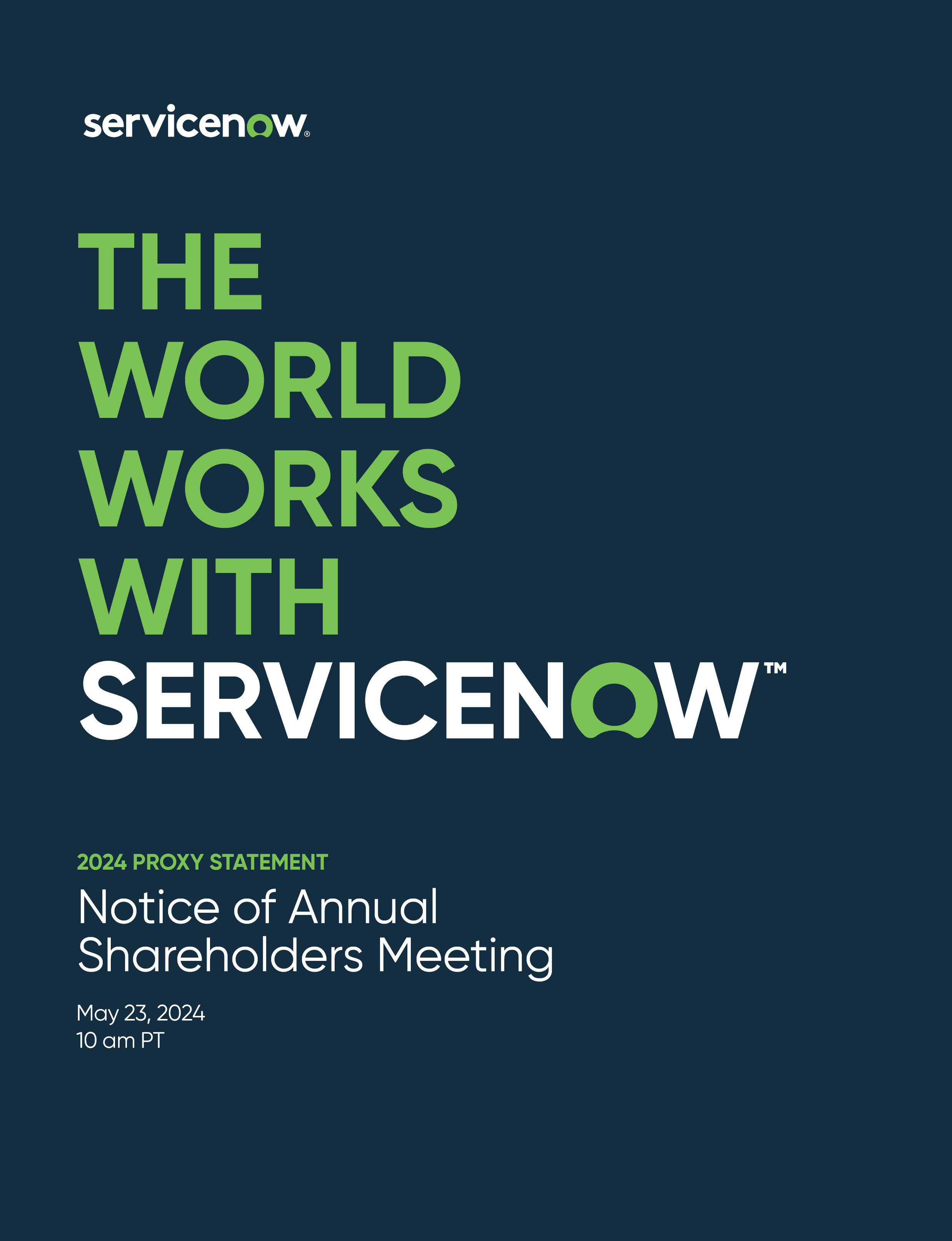





 See page 9
See page 9

 See page 50
See page 50 See page 101
See page 101













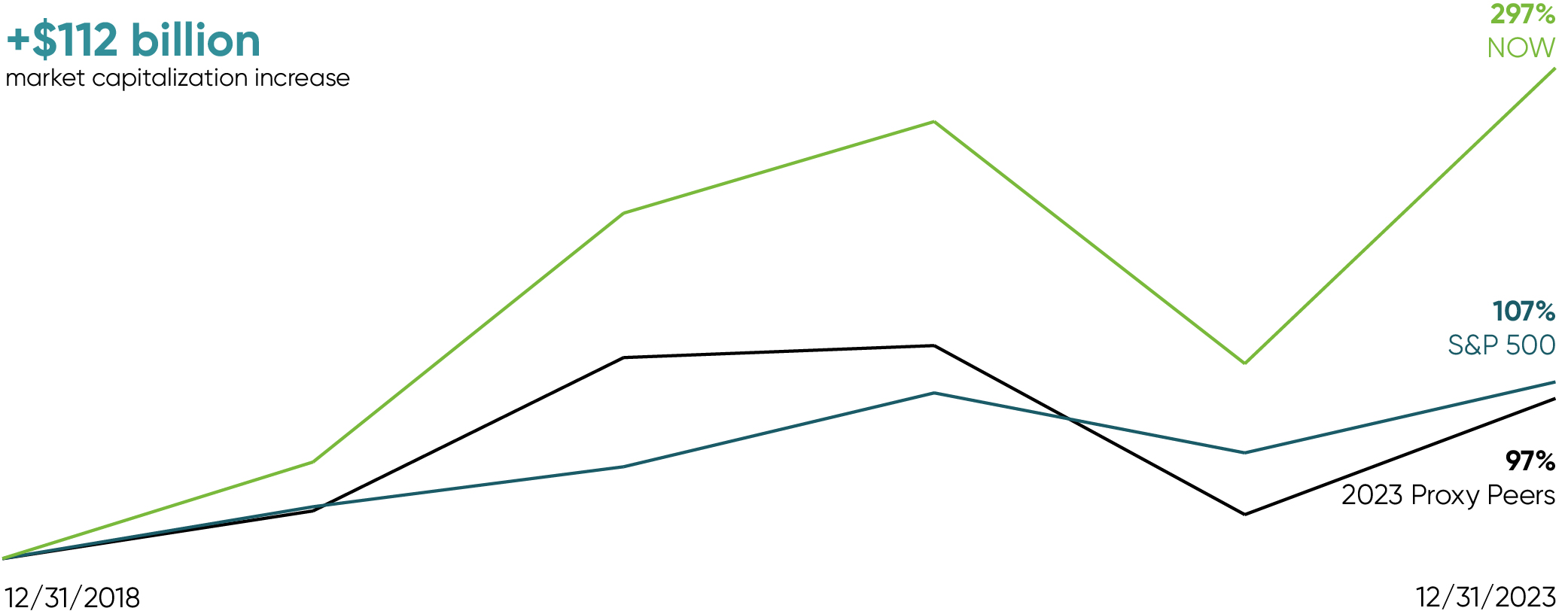





























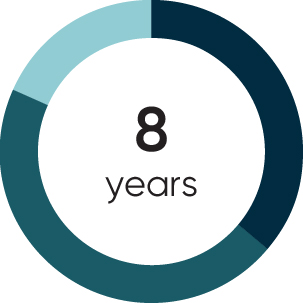

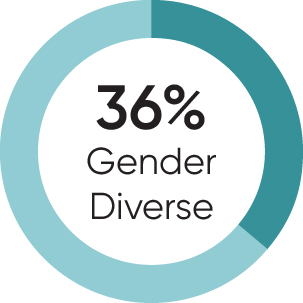

























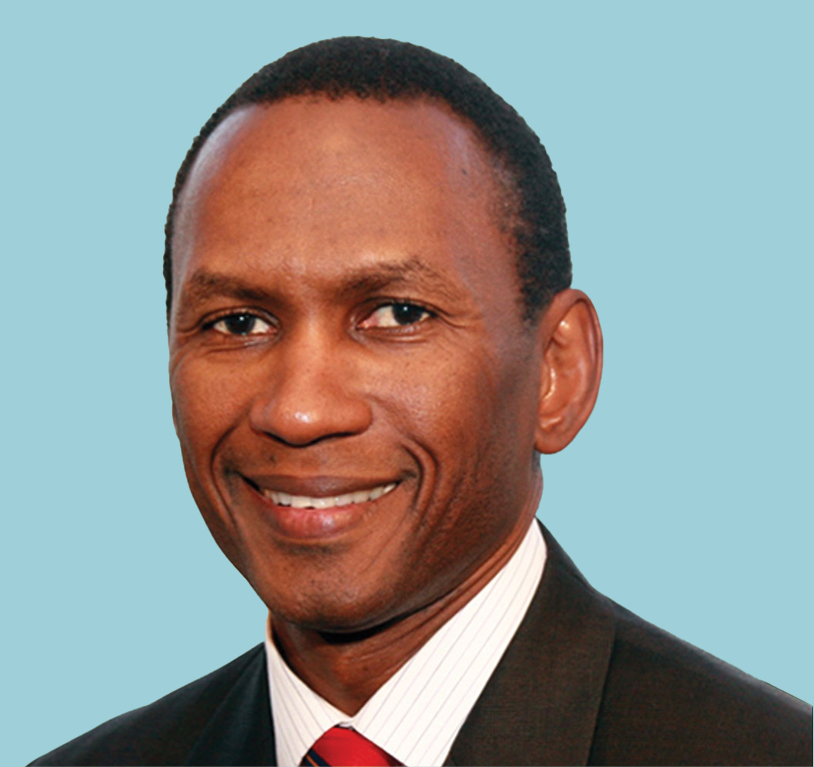















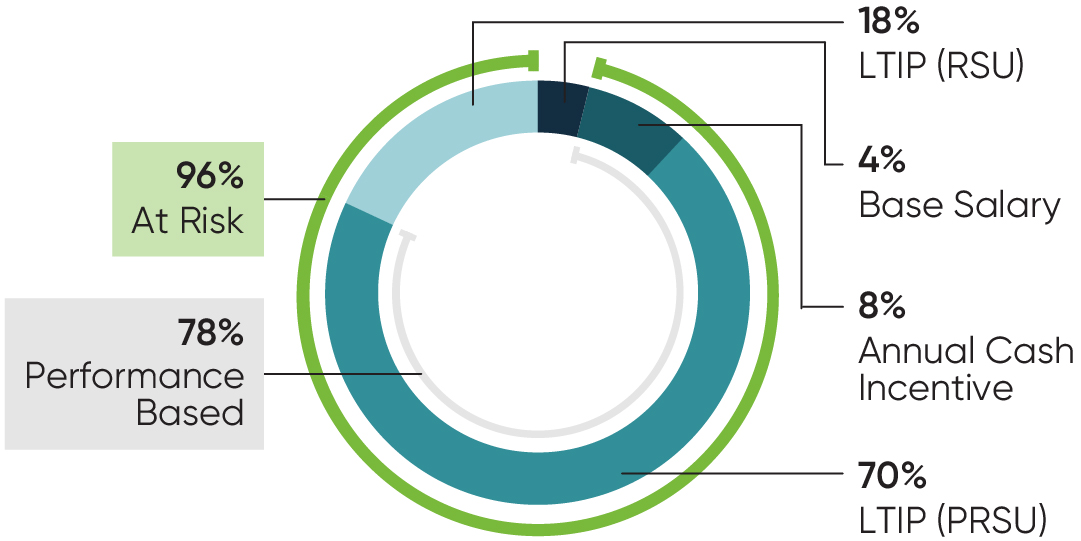
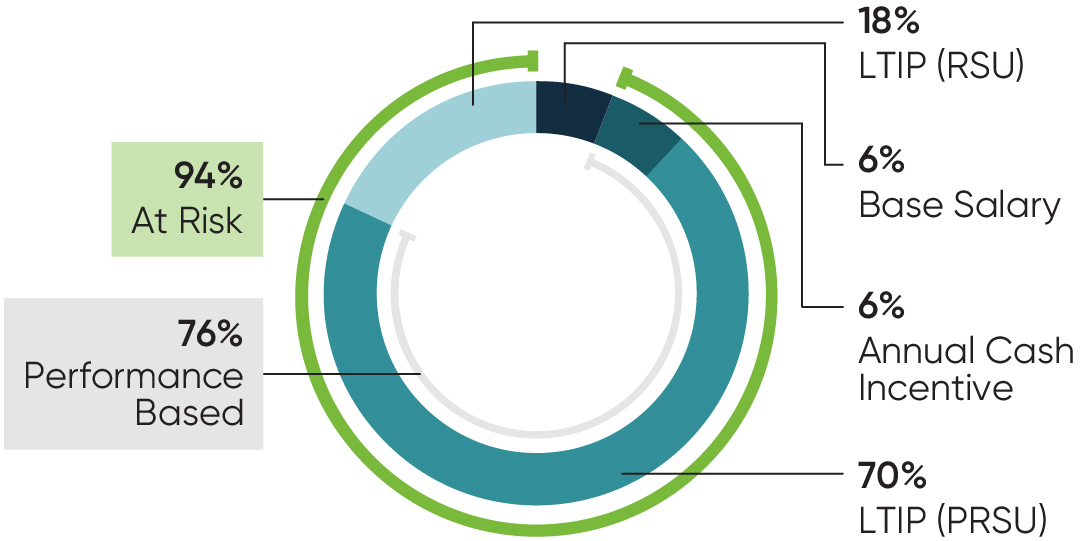

















































































































































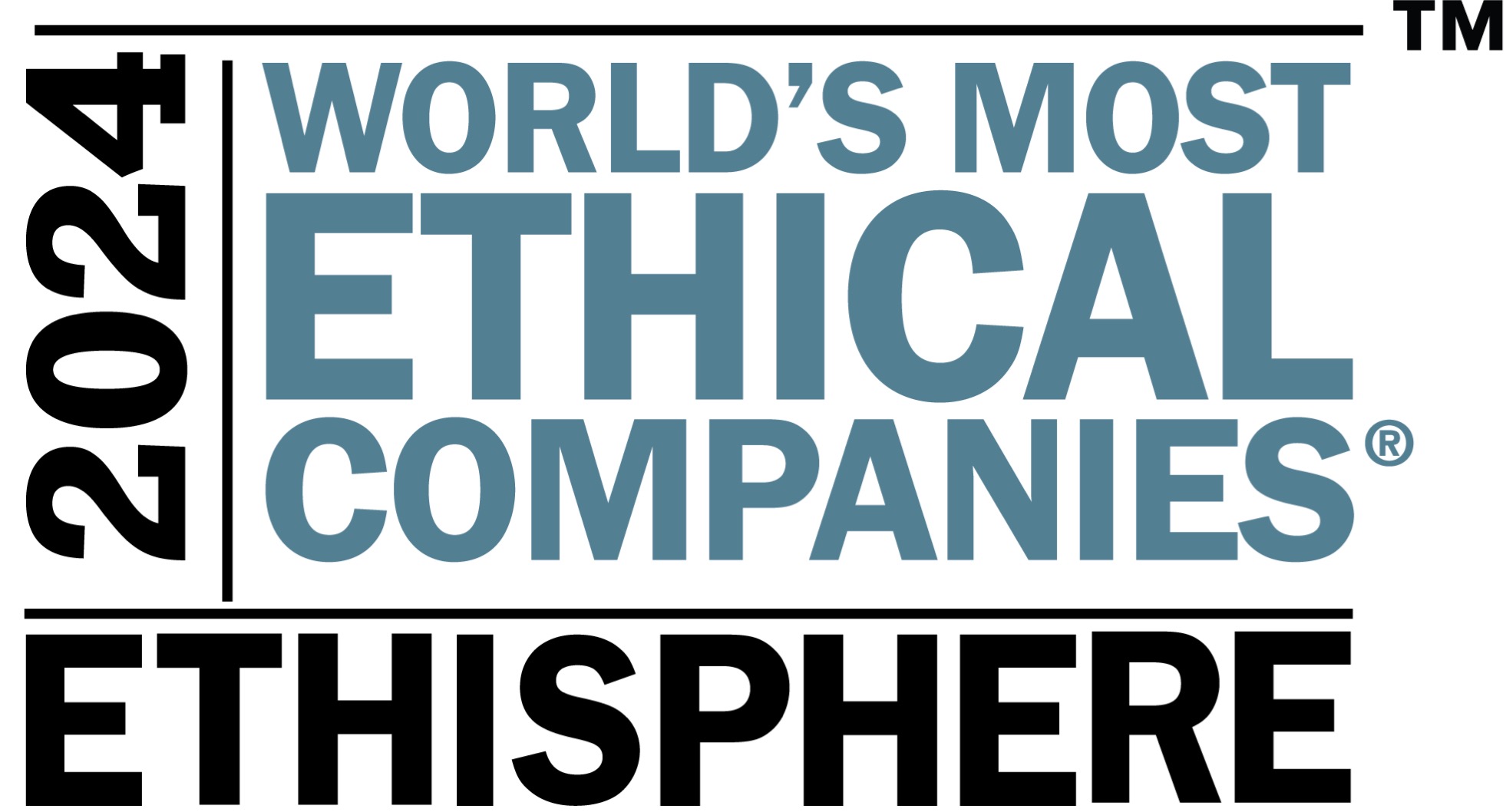

































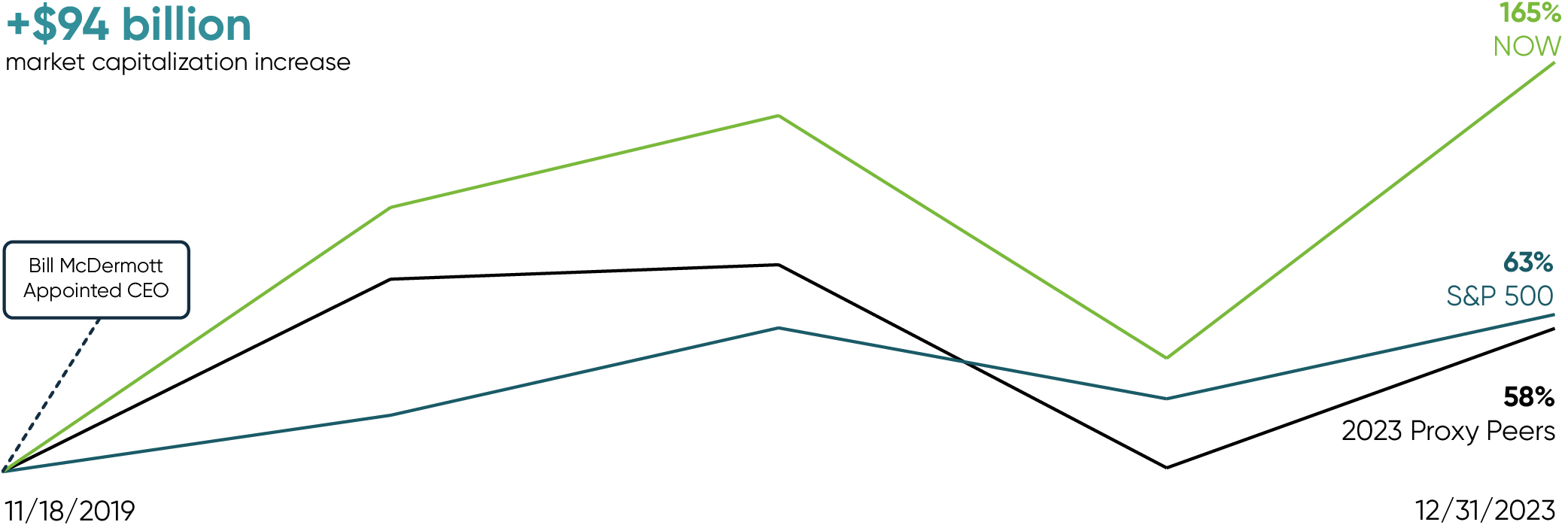



























 Pay for performance
Pay for performance Target a significant portion of total annual compensation at-risk
Target a significant portion of total annual compensation at-risk Use rigorous performance goals
Use rigorous performance goals Incorporate ESG considerations
Incorporate ESG considerations Engage shareholders at least twice a year
Engage shareholders at least twice a year Maintain stock ownership guidelines for executive officers and directors
Maintain stock ownership guidelines for executive officers and directors Require multi-year vesting for all equity awards
Require multi-year vesting for all equity awards Conduct annual compensation risk assessment
Conduct annual compensation risk assessment Review peer group annually
Review peer group annually Conduct annual say on pay vote
Conduct annual say on pay vote Offer pension or retirement plans other than standard 401(k) offered to all employees
Offer pension or retirement plans other than standard 401(k) offered to all employees Provide guaranteed annual cash incentives
Provide guaranteed annual cash incentives Offer excessive executive perquisites
Offer excessive executive perquisites Provide Section 280G tax gross-ups
Provide Section 280G tax gross-ups Approve single-year vesting on equity awards
Approve single-year vesting on equity awards Offer “single-trigger” CIC payments or acceleration of equity awards
Offer “single-trigger” CIC payments or acceleration of equity awards Discount stock options or reprice underwater options
Discount stock options or reprice underwater options Allow hedging or pledging
Allow hedging or pledging Maintain a “clawback” policy
Maintain a “clawback” policy Maintain an independent compensation advisor
Maintain an independent compensation advisor
 The fixed (base salary) component of our compensation program is designed to provide income independent of our stock price performance so that our employees will not focus exclusively on short-term stock price performance to the detriment of other key business metrics and creating long-term value for our stakeholders.
The fixed (base salary) component of our compensation program is designed to provide income independent of our stock price performance so that our employees will not focus exclusively on short-term stock price performance to the detriment of other key business metrics and creating long-term value for our stakeholders. The variable (annual cash incentive and equity) components of compensation are designed to reward both short- and long-term Company performance and individual performance, which we believe also discourages actions that focus only on short-term success. Performance-based elements of our compensation program are a sufficient percentage of overall compensation to motivate our executives and other employees to pursue superior short- and long-term corporate results, while the fixed element is also sufficient to discourage the taking of unnecessary or excessive risks in pursuing such results.
The variable (annual cash incentive and equity) components of compensation are designed to reward both short- and long-term Company performance and individual performance, which we believe also discourages actions that focus only on short-term success. Performance-based elements of our compensation program are a sufficient percentage of overall compensation to motivate our executives and other employees to pursue superior short- and long-term corporate results, while the fixed element is also sufficient to discourage the taking of unnecessary or excessive risks in pursuing such results. These controls are designed to minimize the risk of manipulation by any employee, including our executive officers. Our performance metrics combined with our internal controls are designed to limit the ability of our executive officers to be rewarded for taking excessive risks and deter our executive officers from pursuing any one measure to the detriment of our overall financial performance. In addition, all of our employees are required to comply with our Code of Ethics, which covers, among other things, accurate record keeping.
These controls are designed to minimize the risk of manipulation by any employee, including our executive officers. Our performance metrics combined with our internal controls are designed to limit the ability of our executive officers to be rewarded for taking excessive risks and deter our executive officers from pursuing any one measure to the detriment of our overall financial performance. In addition, all of our employees are required to comply with our Code of Ethics, which covers, among other things, accurate record keeping. Our equity award policy governs the process by which equity grants may be approved, including either directly by our Compensation Committee or through delegated authority by the Plan Grant Administrator, Mr. McDermott. Our Compensation Committee periodically reviews our equity award policy and the equity grants approved by Mr. McDermott. In addition, equity grants to Section 16 officers and certain equity grants to other employees reporting to Mr. McDermott must be approved by the Compensation Committee.
Our equity award policy governs the process by which equity grants may be approved, including either directly by our Compensation Committee or through delegated authority by the Plan Grant Administrator, Mr. McDermott. Our Compensation Committee periodically reviews our equity award policy and the equity grants approved by Mr. McDermott. In addition, equity grants to Section 16 officers and certain equity grants to other employees reporting to Mr. McDermott must be approved by the Compensation Committee. We maintain stock ownership guidelines for executive officers and non-employee directors to support these individuals acting as owners of the Company.
We maintain stock ownership guidelines for executive officers and non-employee directors to support these individuals acting as owners of the Company. Our insider trading policy prohibits our executive officers, non-employee directors and our employees from purchasing our securities on margin, borrowing against any account in which our securities are held, or pledging our securities as collateral for any purpose. Our insider trading policy also prohibits such individuals from engaging in any hedging or offsetting transaction designed to hedge or offset a decrease in the market value of our securities.
Our insider trading policy prohibits our executive officers, non-employee directors and our employees from purchasing our securities on margin, borrowing against any account in which our securities are held, or pledging our securities as collateral for any purpose. Our insider trading policy also prohibits such individuals from engaging in any hedging or offsetting transaction designed to hedge or offset a decrease in the market value of our securities.  In 2023, the Compensation Committee adopted a new clawback policy that complies with new SEC rules and NYSE Listing Standards. We also maintain a policy that grants the Board authority to demand the repayment of any performance-based cash or equity compensation paid to our executive officers where the payments were predicated upon the achievement of financial results that were subsequently found to be based on fraud or intentional misconduct and that lead to a restated financial statement.
In 2023, the Compensation Committee adopted a new clawback policy that complies with new SEC rules and NYSE Listing Standards. We also maintain a policy that grants the Board authority to demand the repayment of any performance-based cash or equity compensation paid to our executive officers where the payments were predicated upon the achievement of financial results that were subsequently found to be based on fraud or intentional misconduct and that lead to a restated financial statement. 









